6 Greece
John Tures
Dr. John A. Tures is a professor of political science at LaGrange College in LaGrange, Georgia, where he has been teaching since 2001. Born in Milwaukee, Wisconsin, his family moved to El Paso, Texas, where he became interested in politics beyond America’s borders. He earned his Bachelor’s Degree in both Communications and Political Science from Trinity University in San Antonio, Texas in 1992. After working for USAA, he went on to attend Marquette University in Milwaukee where he received his Master’s Degree in International Affairs in 1994. Tures enrolled in the doctoral program at Florida State University in Tallahassee, where he earned his Ph.D. in political science in 2000. After teaching a year at the University of Delaware and several years at Evidence-Based Research, Inc. in Washington DC, before coming to LaGrange College. In addition to publishing scholarly journals (https://scholar.google.com/citations?user=3y3BVcEAAAAJ&hl=en&oi=sra), he is also a regular newspaper columnist (https://muckrack.com/john-tures/articles).
In addition to growing up next to Mexico, Tures also had the opportunity to travel the British Isles, Western Europe, and East Europe as the Berlin Wall was crumbling. While at Marquette, he and professors and fellow graduate students led undergraduate students to Russia as the country transitioned to democracy in 1993-1994, and the United Nations in the Summer of 1994. At Florida State University, he was part of a team that participated in a multi-week conference in Ohrid, Macedonia in 1996, and taught comparative politics twice in FSU’s study abroad program in San Jose, Costa Rica. While at LaGrange College, he co-led a group of students throughout Greece, traveling from Thessaloniki to Philippi, Delphi, Monastery of the Holy Trinity, and Athens.
Chapter Outline
Section 2: Ethnic, Religious, and Cultural Identity
Section 3: Political Culture and Civil Society
Section 4: Political Participation
Section 5: Formal Political Institutions

The Importance of the Library, As Well As Getting Out Of It
In the movie “Indiana Jones at the Last Crusade,” the famed archaeologist tells his class “Seventy percent of all archaeology is done in the library…books, reading….” But in the next film “Indiana Jones at the Kingdom of the Crystal Skull,” shortly after racing through a library with his son, bumping into a student, Jones answers his question, and adds “If you want to be a good archaeologist, you gotta get out of the library!”
Jones isn’t simply being contradictory. To be a good archaeologist, you have to do both. That means in addition to reading, studying, and researching, it also helps to travel, visit the landmarks, speak with the people, and immerse yourself in the setting and plot of the place.
The field of comparative politics was created after World War II, in answer to questions of how free people could so willingly embrace totalitarianism. Since political science was such a new field, early comparativists had to rely upon the theories and research practices of established scholars, and one such field was anthropology, linked to archaeology, the study of different cultures.
In analyzing different political cultures, it helps to know their history, their ethnicity, race and religion, their political institutions, parties, groups, organization, rules of participation, civil society, and economy. Much of those lessons will be learned in this text, and further reading you’ll do as a student or even a professor, typically in a library.
But you also have to go beyond the library, the important other 30 percent.
You’ll notice there are a lot of pictures of Greece in this chapter. Many contain students as well, from LaGrange College, as well as one from Agnes Scott College. I could have taken static photos of buildings, monuments and ruins, like the types you see in postcards. But I feel it is important to have the reader see students putting themselves were history was made, and key political debates were decided. In addition to the other sites, I took a few students to a nationalist political rally in Athens, something you can’t experience either from reading a book or article, or even watching a news report about it on television or online.
There are plenty of sites that will tell you about how students today are not reading as much as their earlier counterparts, and are less willing to travel, especially since COVID-19. It is my hope that this chapter on Greece will not only stimulate students to read more and learn more about the subjects covered in this text, which is why I provided online links. I even want them headed to the library for more. But I also hope to encourage students to see ours in these photos, imagining themselves heading there on adventures in the quest to discover more of the truth.
Section 1: History of Greece
The story of historic Greece began with the migration of European peoples from north of contemporary Greece around 1900s B.C. They were ruled by the Minoans of the island of Crete until around 1400 B.C., when the peoples of Greece threw off their control (Encyclopedia Britannica 2024). This new Mycenaean culture, derived from the Minoans, was part of the Bronze Age, until these people were defeated by invaders from the sea around 1150. These new occupants of Greece began to replace the Bronze Age with an Iron Age, when other cultures learned to make steel and more powerful weapons (Encyclopedia Britannica 2024). Scholars are divided about whether the Bronze Age decline was due to natural disasters that destroyed cities and farmlands, or internal unrest from the disruption of trade routes and attacks from nomadic external tribes.

Though the time from late Bronze and early Iron Ages is called “The Dark Ages,” some scholars see this term as misleading. Such people developed alphabets, languages, governance systems, pottery, and industry. This “Continuity Theory” interprets the development of Greek Society as evolutionary, not a series of sharp revolutions from an uncivilized past. Scholar B. C. Dietrich (1970) finds common threads over time for the Greek people, especially on religion. “This century has fortunately abandoned the idea of the Greeks as a unique people who suddenly appeared on Earth, as if from another world, and magically at one stroke produced their singular culture,” he writes. “Nor was Greek religion born in a vacuum but represented the end result of a lengthy development in which the entire Aegean area had a share.” This “Early Iron Age Greece” (EIA) persisted until around 770 B.C. with the formation of the famous Olympic Games, considered a key defining moment of the “Classical” Greek Age (Morris 2008).

In an otherwise disparate confederation of Greek City-States, the Olympic Games cannot be understated as helping a common bond of culture. In addition to these athletic events at Olympia in 776 B.C., there were the “Pythian games at Delphi, the Isthmian games of Corinth and the Nemean games (Swaddling 1988).”

This “Classical” Greek Age, which some characterize this time as starting in 480 B.C. with victories against the Persian Empire, is defined by both tangible creations and intangible contributions. “It was during the Classical Age that the Greeks arrived at some of their great intellectual and cultural achievements,” writes Christopher Brooks (2020). This is defined not by the short-lived and abandoned “democracy” of Athens, but by more enduring contributions. “The fundamental concept of Greek thought, as reflected in drama, literature, and philosophy, was humanism. This was an overarching theme and phenomenon common to all of the most important Greek cultural achievements in literature, religion, drama, history-writing, and art. Humanism is the idea that, first and foremost, humankind is inherently beautiful, capable, and creative,” Brooks (2020) adds.
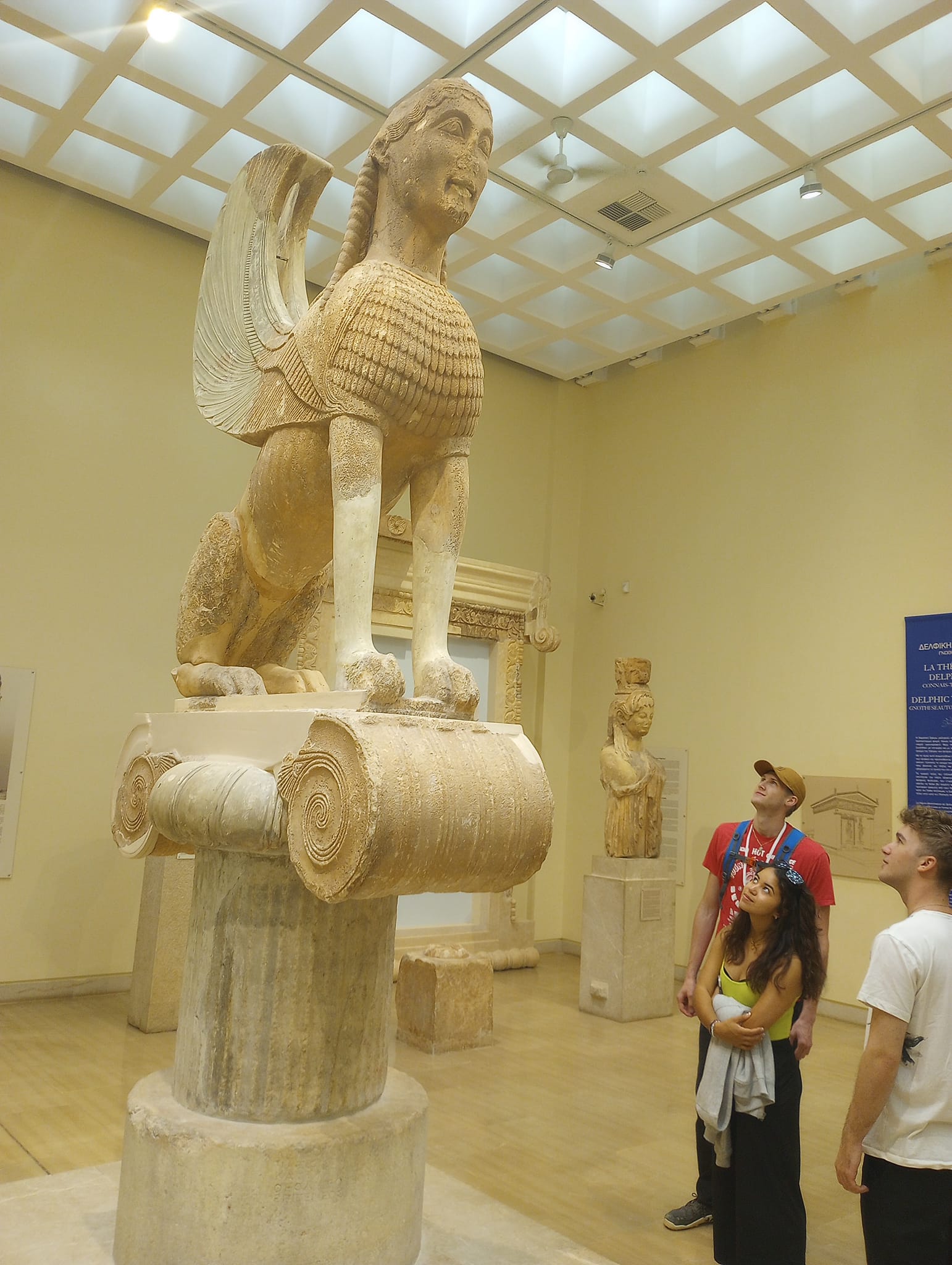
Many modern students of politics are aware of the association between Greece and democracy. But there were several key differences between these classical and contemporary forms of government. Stanford University Political Science Professor John Ober, also a Classicist, explains. “Unlike the American system of representative democracy, where citizens vote for elected officials to represent their concerns in government, rule in Ancient Greece was direct: Participation was not a choice but a civic duty,” cites Melissa DeWitte (2024). She adds “In a class seminar devoted to deliberation, Ober described how the citizen Assembly made decisions and how those decisions represented the will of the demos, the collective judgment of the people about the best available course of action. The class then discussed some of the tensions that arise when conceptualizing a large, diverse population as a monolithic entity.”
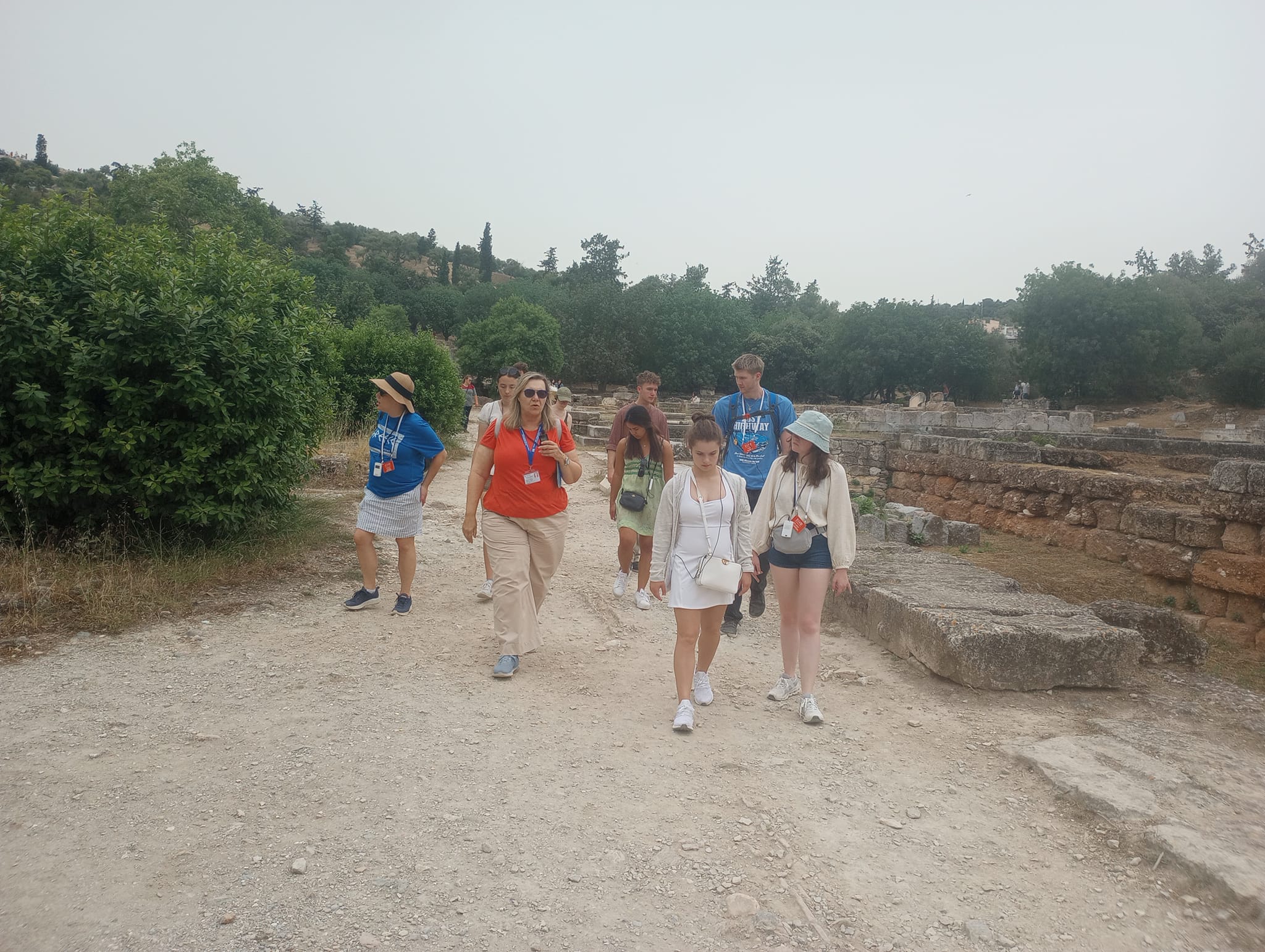
There is a desire to see that ancient form of “people rule” as a more perfect form of government. Yet this system was not without its significant flaws. “But not everyone in ancient Athens was able to participate in political life,” DeWitte (2024) documents. “Excluded from the franchise were women and slaves – not too dissimilar to the limitations America’s Founding Fathers set when they wrote the Declaration of Independence, Constitution, and the Bill of Rights in the late 18th century.” When you exclude someone from “people rule,” is that individual really considered a person in the system?
The classical period was also a scientific revolution. “The importance of Greek scientific work is not primarily in the conclusions that Greek scientists reached, which ended up being factually wrong most of the time,” Brooks (2020) writes. “Instead, its importance is in its spirit of rational inquiry, in the idea that the human mind can discover new things about the world through examination and consideration. The world, thought the Greek scientists, was not some sacred or impenetrable thing that could never be understood; they sought to explain it without recourse to supernatural forces.” An underrated contribution of the Classical Greek Era, influenced by humanism was the development of history. Rather than only chronicle the exploits of the gods, it covered the exploits of the people as key determinants of their destiny. “History as it was first written by the Greeks is not just about listing facts, it is about explaining the human motivations at work in historical events and phenomena,” Brooks (2020) explains. “Likewise, the Greeks were the first to systematically employ the essential historical method of using primary sources written or experienced at the time as the basis of historical research.
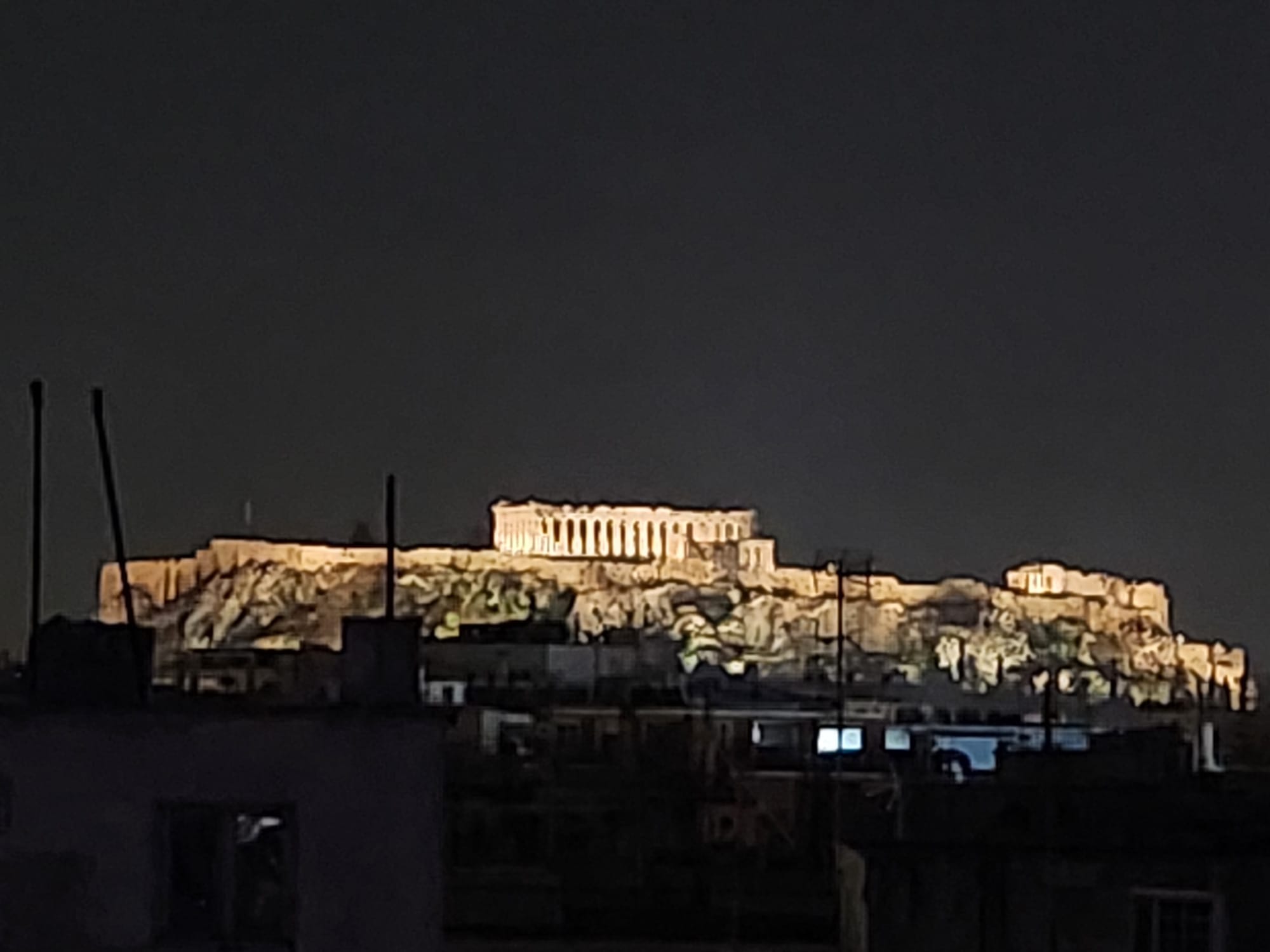
That history showed the development of a variety of city-states, from Athens and Sparta to Corinth and Thessaloniki, who would sometimes align themselves when faced with a common external foe, like the mighty Persian Empire (BBC 2023). Victories at Marathon, Salamis and Platea ended the Persian dreams of dominating the Greeks (BBC 2023). Even losses like the heroic struggle against overwhelming odds at Thermopylae only seemed to embolden the plucky Greeks in fighting the powerful Persians from the East.

On the heels of such triumphs, the members of this loose-knit confederation turned on each other, as Athens and its allies battled Sparta and their friends in the highly divisive Peloponnesian War. The surviving Greeks were no match for the Macedonians, an empire to the North. Macedonia conquered much of the Greek Peninsula under Philip II, thanks to innovative military tactics like the phalanx, a tightly-packed rectangular formation of spears and shields involving hundreds of soldiers.
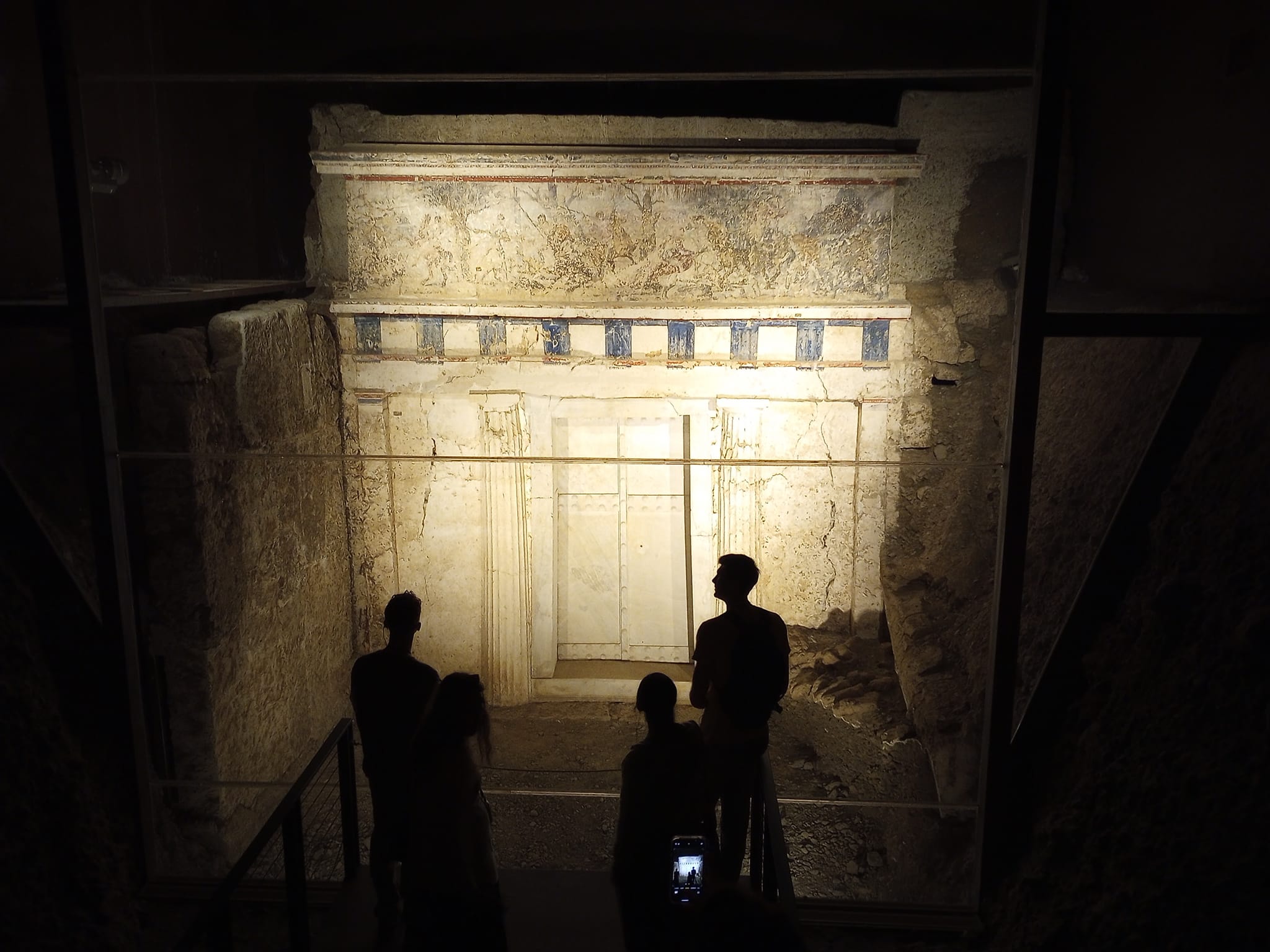
Upon Philip II’s assassination, Alexander the Great introduced “the Hellenistic Era,” which included the unification of Greek culture (he was tutored by the Greek philosopher Aristotle and incorporated scientists into his conquests) into the Macedonian Empire. This powerful force conquered the Persian Empire and the spread their rule throughout the Middle East and into Egypt. Macedonians ruled Greece until their defeat by the Roman Empire in a series of wars from 214 B.C. until about 146 B.C. (Davis 2001, Worthington 2020).
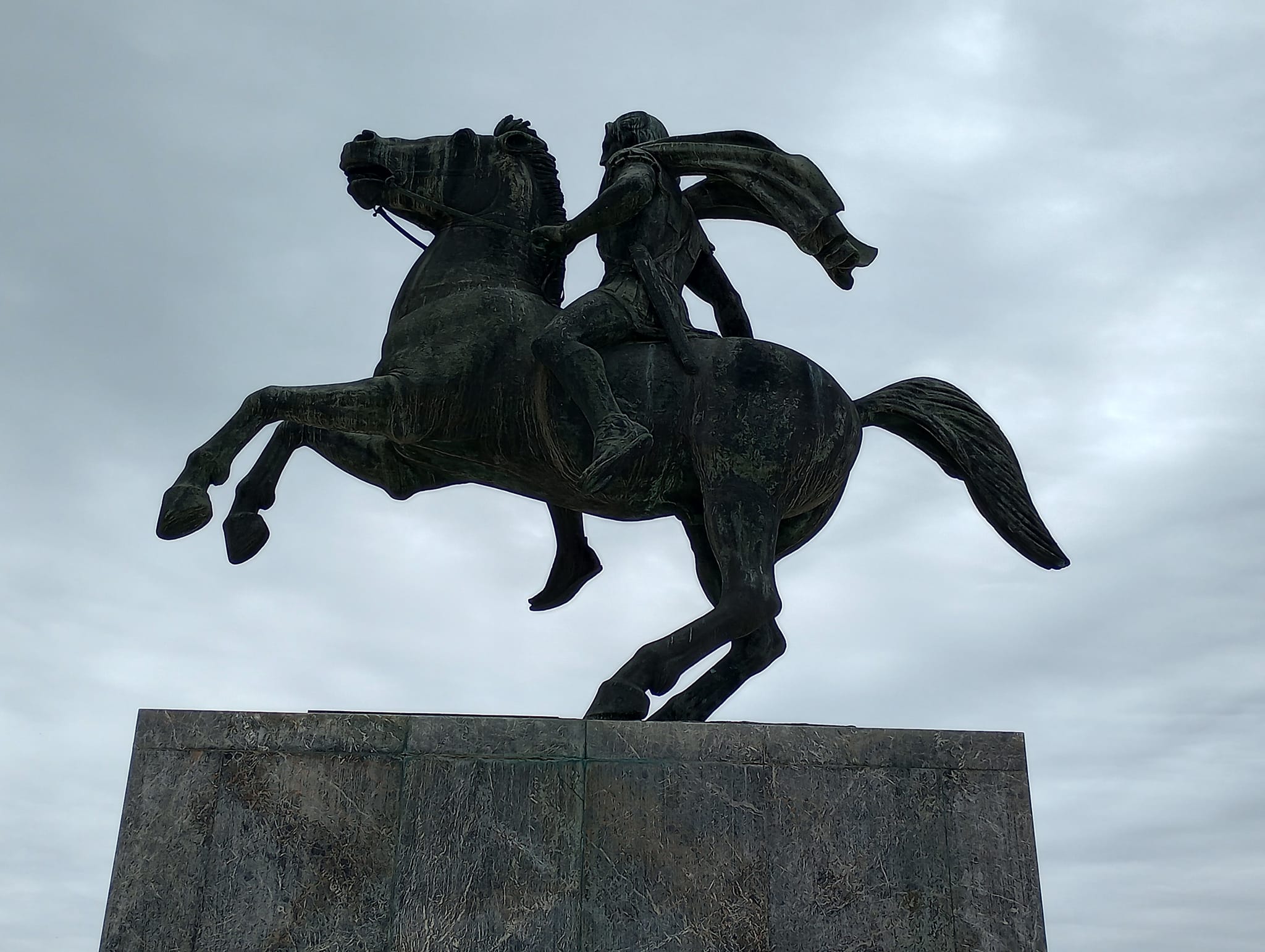
During the Second Macedonian War, Greeks actually joined Romans in fighting against the Macedonians after King Philip of Macedon aligned himself with Hannibal of Carthage. In these battles, the more flexible Roman legion style defeated the phalanx in battles such as Cynocephalia and Pydna (Davis 2001). Much is made of Roman General Flamininus declaring the Greeks were now “free” but they were simply shifted from one empire to another (Worthington 2020).
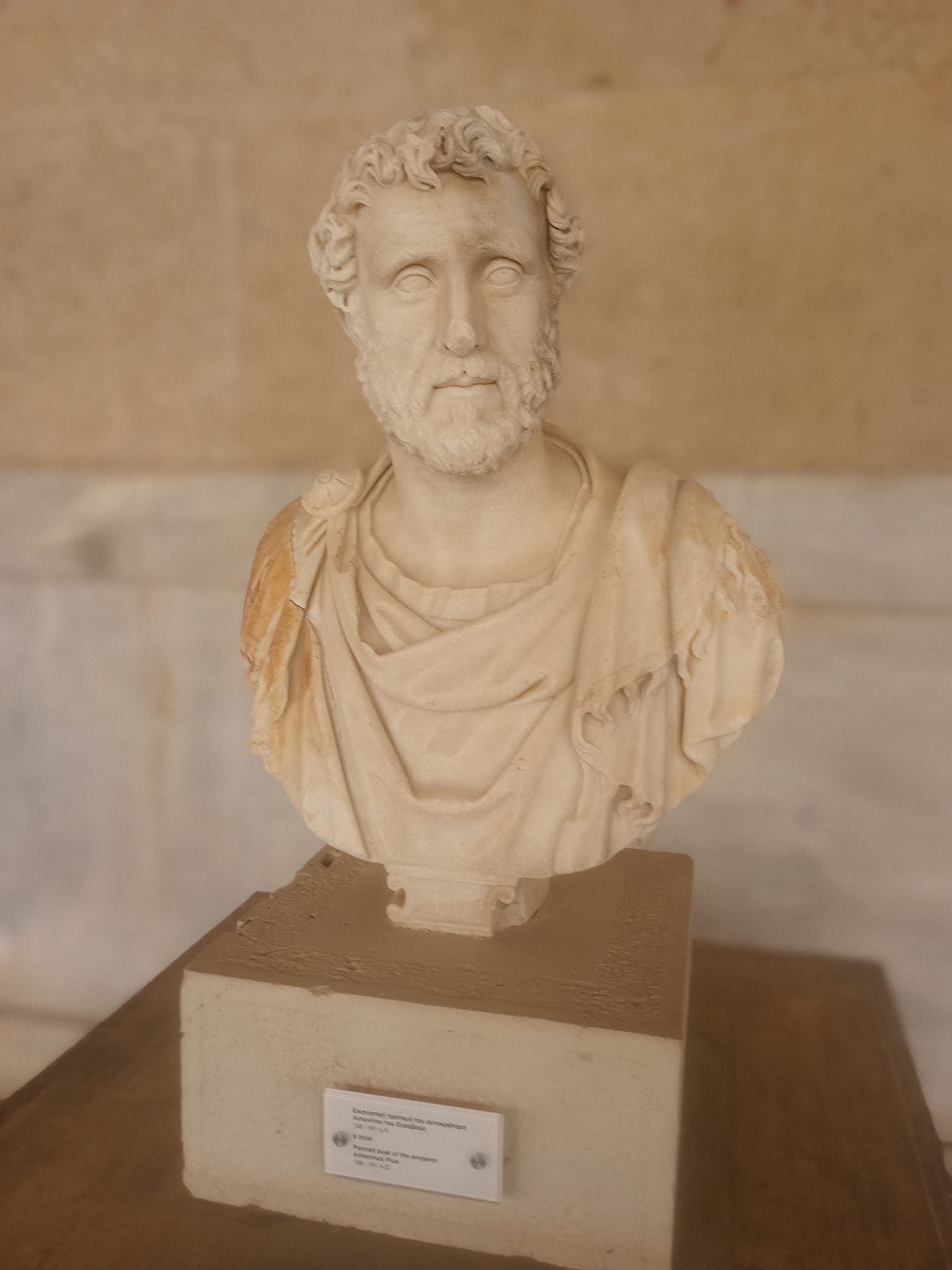
The Greeks became part of the Eastern Roman Empire, ruled from Constantinople, which is the old Greek city of Byzantium. This political entity ended in 1453, when the Byzantine Empire was toppled by the Ottoman Empire led by Sultan Mehmet II (Charanis 1963). It seemed the Greeks would be never free from being dominated by an external power.
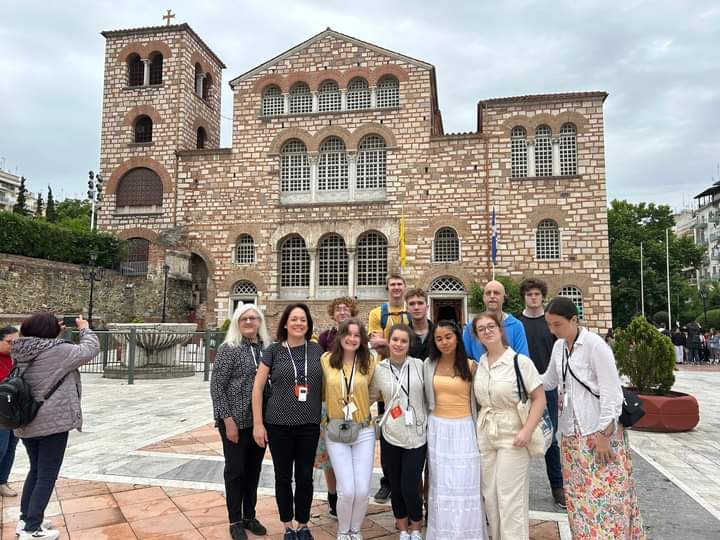
That changed in 1821 when General Alexander Ypsilantis led a revolt in the Danubian Provinces. Unlikely Greek successes continued against the Turks until the rebels formed separate factional governments, enabling the Ottoman Empire to recapture Athens in 1826. International sympathy for the Greeks, coupled with a renewed interest in a renewed interest in Greek culture, led to strong European support for the Greek independence insurgency. Eventually, the Turks conceded Greek autonomy, and eventual independence in the Treaty of Adrianople (Byington. McClelland and Quint 2021).
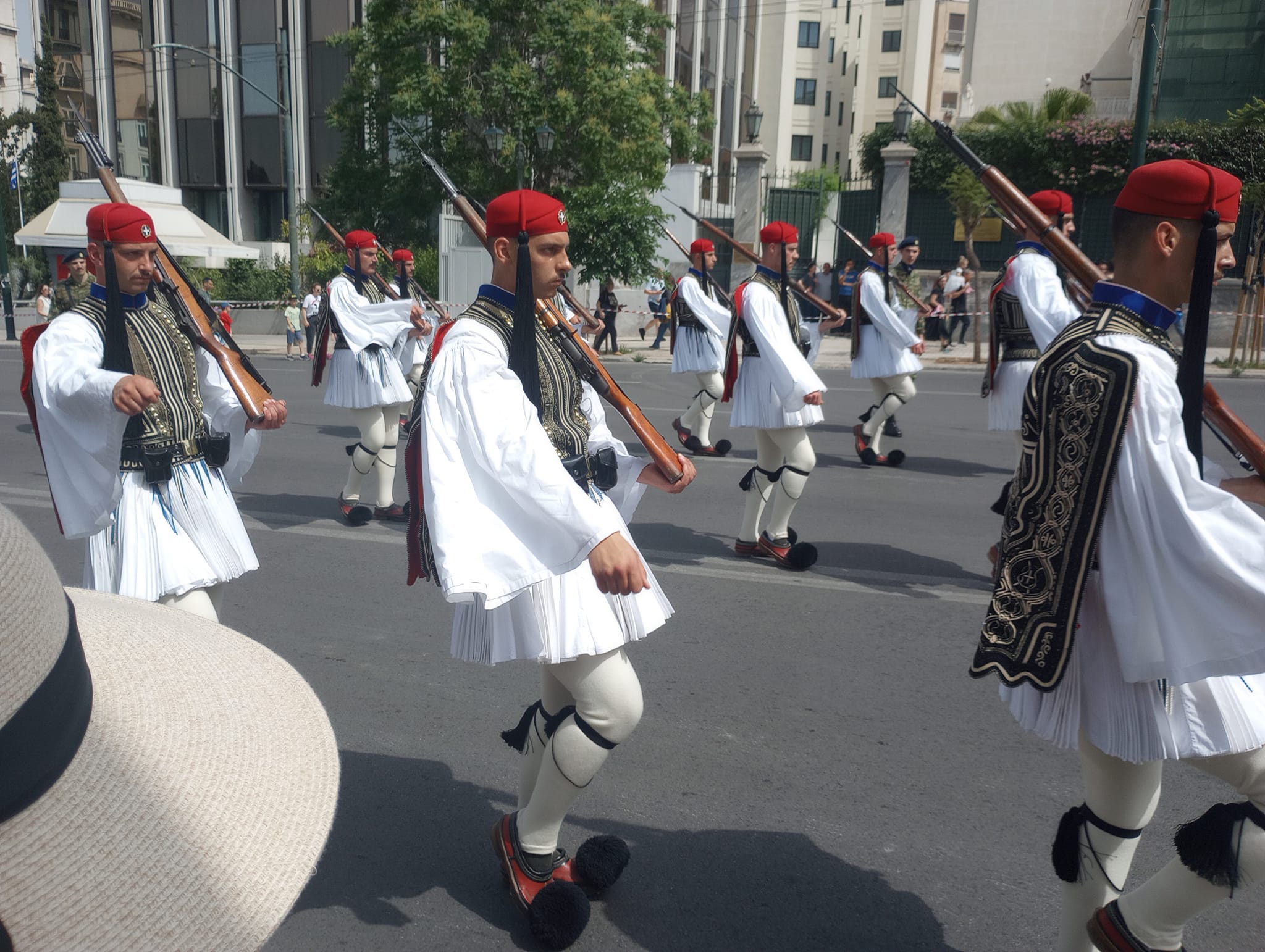
King Otto I of Bavaria began his rule in 1833 until he was deposed by the Greek National Assembly thirty years later, showing that it was more of a constitutional monarchy, with some checks and balances. That same assembly selected a Danish prince to be the new ruler. King George I served the country from 1863 to 1913, when he was tragically assassinated by an anarchist as he walked the streets of modern-day Thessaloniki in 1913 (New World Encyclopedia n.d.). During his reign, the popular potentate benefited from acquiring new territory at the expense of European wars against the Ottoman Empire, especially Epirus, Macedonia and Northern Aegean Islands in the First Balkan War of 1912 (New World Encyclopedia n.d.) and Western Thrace the Second Balkan War (BBC 2023).

For much of World War I, Greece remained neutral due to infighting, but the country did join the Allies in 1917, and was rewarded with a little territory along the Thracian Coast, land the country lost with the disastrous post-WWI war with Turkey (Petsalis-Diomidis 1978).
Greece recovered some of its military prowess during World War II, when Fascist Italy attacked the country from occupied Albania. In fact, the impressive Greek forces not only repelled Benito Mussolini’s invasion but also took some Albanian land in the counterattack (Blytas 2009). This led Nazi Germany to launch an all-out attack on Greece. Greek fighters eventually succumbed to the combined attack of Germany, Italy, and Bulgaria, and the country was partitioned among all three occupiers, effectively delaying the critical attack by the Nazis on the Soviet Union (Blytas 2009).
Greek partisans continued to wage an insurgency against their oppressors, often suffering terrible reprisals, reminiscent of the American movie “Red Dawn” about resistance to a fictional Soviet takeover of America during the Cold War. Thousands of villages suffered this fate, where the men were shot and the villages burned, costing the country roughly 13 percent of its population. Those who suffered the worst were the Salonika Jews, who were massacred when deported from Northern Greece to Auschwitz-Birkenau, as well as Treblinka, according to the Holocaust Encyclopedia (n.d.), killing 80 percent of the pre-WWII Jewish population.
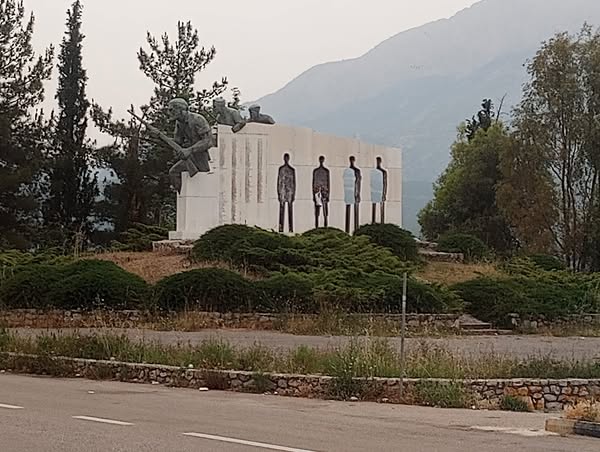
No sooner had World War II ended than a new conflict emerged in Greece. The country became an early Cold War battleground, as Greek Communists (with support coming over the Albanian, Yugoslav and Bulgarian border) fought the restored Greek Government, backed by the Western powers (Iatrides and Rizopoulos 2000). The communists were divided into two groups: one that supported Yugoslavia Josip Broz Tito and the other preferred Josef Stalin of the Soviet Union. This suffered when Tito and Stalin had a falling out. The Greek Communist murder of civilians, including actress Eleni Papdaki, and attacks upon the Greek Orthodox Church, turned much of the population against them (Lengel 2017). Prisoners of the Greek authorities were subject to brutal conditions and deaths (Lengel 2017). But thanks to American support, with a policy known as The Truman Doctrine, the Greek government was able to eliminate Communist forces, as the survivors fled to Albania (Iatrides and Rizopoulos 2000).
A constitutional monarchy with democracy emerged in Greece afterward the civil war; this system persisted until 1967. Fearful of an electoral victory by Centre Union’s candidate Georgios Papandreou, a former prime minister who was earlier dismissed by young King Constantine II, a group of Greek military colonels overthrew a caretaker government (Kassimeris 2006). They had been eager to prevent the United Democratic Left from joining an alliance with the Centre Union. Right-wing critics claimed the UDL was a front for the Greek Communists, banned since the Greek Civil War. The military junta, led by Colonel George Papadopoulos (appointed prime minister), conducted many arrests, jailings, tortures, and even deaths of those who disagreed with them (Kassimeris 2006). International condemnation led Greece to withdraw from the European Council. An ineffective counter-coup attempt organized by King Constantine II failed (Kassimeris 2006). After a time, Prime Minister Papadopoulos sought to liberalize the country somewhat. Papadopoulos was toppled by a hardliner, Brigadier General Dimitrios Ioannidis, in November of 1973; this new general opposed such reforms (Davison 2010). Ioannidis’ bellicose policies and support for ousting Greek Cypriot moderate Archbishop Makarios III in favor of a right-wing military coup on the island nation, in 1974. Turkey responded by invading Northern Cyprus, a military move that has divided the Cypriot country even today (Davison 2010).
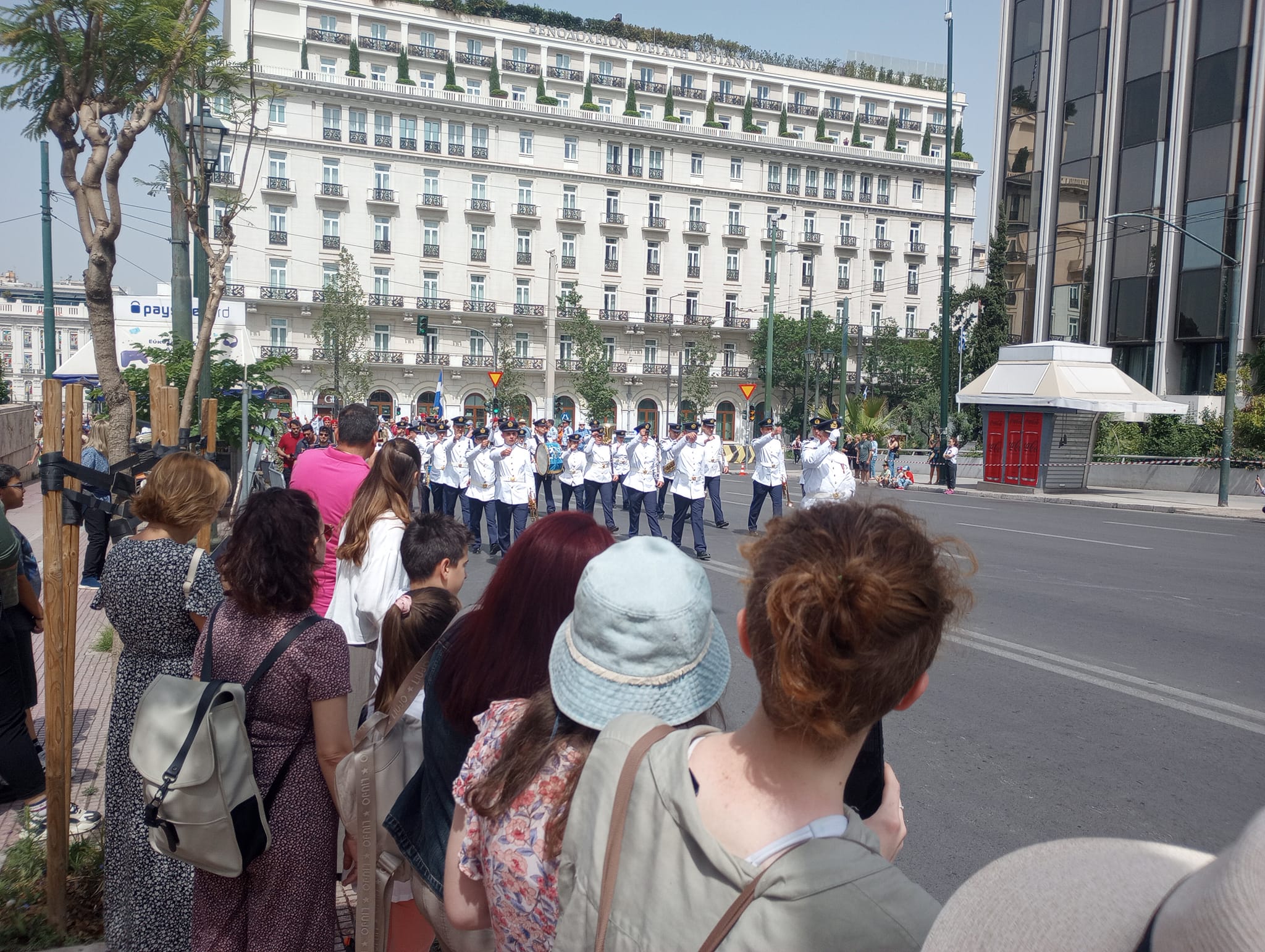
Ioannidis’ policies turned even members of the original junta against him and he was deposed. The old junta members invited a former Prime Minister back to lead a caretaker government until elections could be restored. Ioannidis, Papadopoulos and two other junta leaders were originally sentenced to death, but their penalties were commuted to lengthy prison terms. A referendum rejected the constitutional monarchy by a wide margin, and Greece became a parliamentary republic with some powers given to a president (BBC 2023). Socialist Andreas Papandreou even won the election in 1981, and Greece joined the European Union a decade later (BBC 2023).
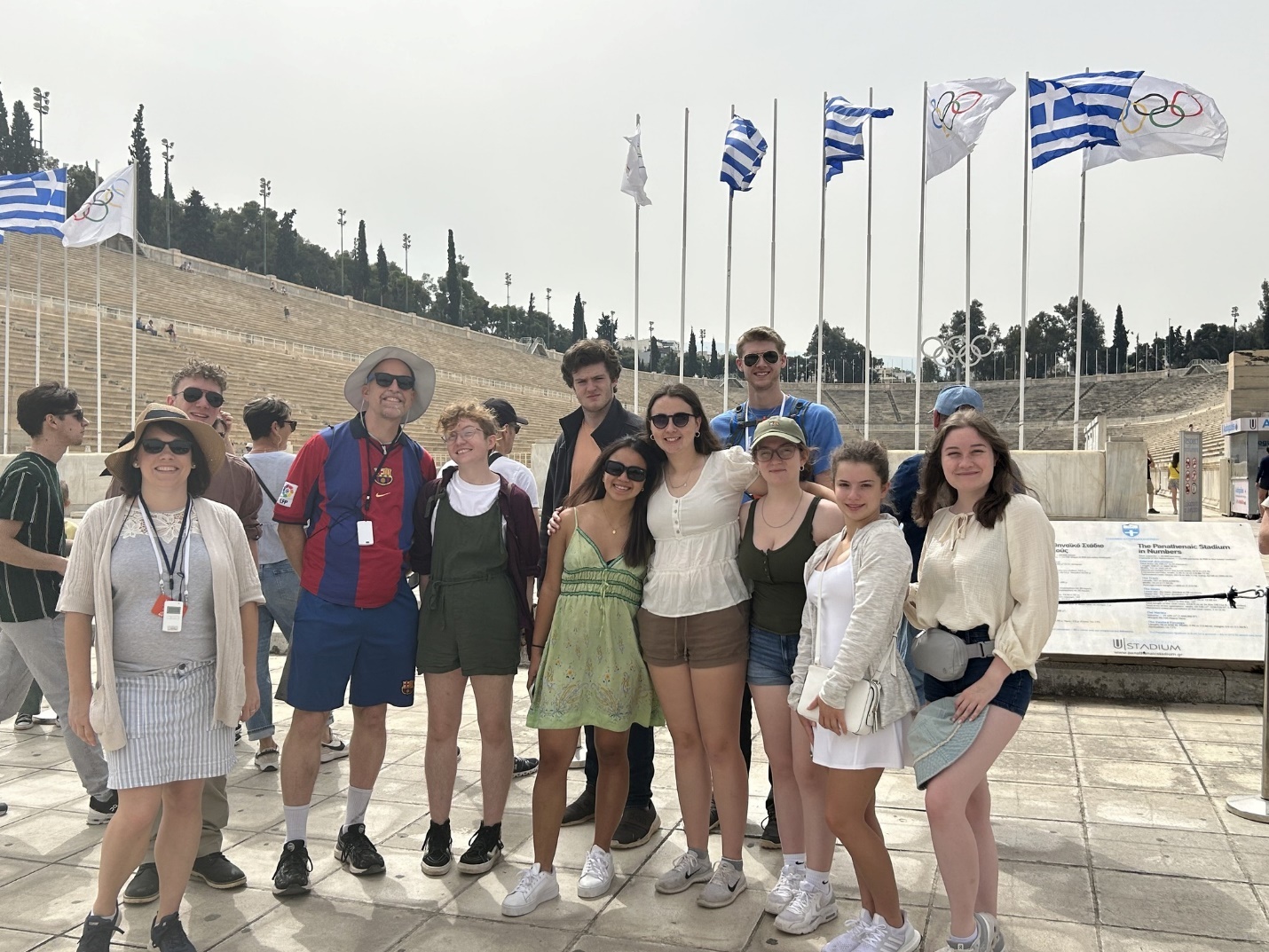
Athens, the original host of the reborn 1896 Olympics, won the right to host the games again in 2004. Though the athletic events put Greece in the international spotlight, spending on the Olympics and other deficit spending led to an economic crisis for Greece during the Great Recession (BBC 2023). International bailouts from the EU worked to avoid a Greek default that could spread to other countries, while the country was forced into economically painful austerity measures (BBC 2023). Though Greek leaders have claimed their country has emerged from the crisis, some see that Greece still has some economic and political vulnerabilities (Barber 2024).
Section 2: Ethnic, Religious and Cultural Identity
2.1 Greek Ethnic Origins
[I]t was as an influx of many different tribes, and probably by slow degrees, that the gifted people whom we call the Greeks came to settle in the lands that were to be their own (Burckhardt 1998).” He acknowledges the difficulty of tracking this ethnohistory due to conflicting stories and legends. “In traditional accounts, early Greek times appear as a succession of migrations; one tribe drives out and supplants another until driven out in turn by a third, and this process may have lasted many hundreds of years. Not until the so-called Dorian migration of the eleventh century did the location and distribution of the Greek people begin to take on its final form (Burckhardt 1998).”

These Dorian invasions from the Northwest territory of Epirus supplanted the Achaeans, original inhabitants of the Peloponnesus and islands such as Crete in the Mycenaean region, expelling them to an enclave on the giant peninsula (The Latin Library n.d.). Ionians made their way to the Attica region, near modern-day Athens. Some speculate that these many invasions were the inspiration for Homer’s Iliad and Odyssey. Greeks began a colonizing movement around the time of the first Olympics (776 B.C.), spreading their kin from the Italian Peninsula and Western Europe to Asia Minor (The Latin Library n.d.).
2.2 Significant Ethnic Minorities
While 98% of the population of 10.9 million residents known as the Hellenic Republic in modern Greece identify themselves as Greek, there are minorities within the country. Those include several who identify with a neighboring country, and most likely became minorities when borders changed (Chepkemoi 2019). These include the Albanians (445,000), Macedonians of Slavic descent who number about 150,000. There are also Aromanians who speak a Latin dialect, but consider themselves Greeks (who are roughly 200,000 at a recent count), as well as Arvanites, who were originally Albanian, but took pains to adopt the Greek culture; their number is close to 95,000 at last count (Chepkemoi 2019).
There are also Romani (often pejoratively referred to as “gypsies”) are nomadic people believed to have come originally from India. Their population, split between Roma Orthodox Christians and Roma Muslims, is a little over 200,000 people (Chepkemoi 2019). In Greece, one might find 90,000 people of Turkish ethnicity, but the Greek government considers them Islamic minorities, not Turks (Chepkemoi 2019). Finally, there are Pomaks, Bulgarian Slavs, often Muslim, who adhere to unique customs, and who consist of about 35,000 (Chepkemoi 2019).
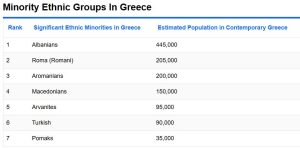
2.3 Official Language
As with most things Greek, the language has evolved over time from ancient traditions, but the extensive age makes the origins harder to trace. What is considered a Greek language has existed for almost 5,000 years, traced back to the 14th and 13th Centuries B.C. during the Mycenaean culture (Encyclopedia Britannica n.d.). This was succeeded by a form of the language which many call “Classical Greek” but is also known as Attic or Ionian. With the spread of Greek culture via Alexander the Great, a Hellenistic Greek variation known as Koine exploded (Kuiper n.d.).
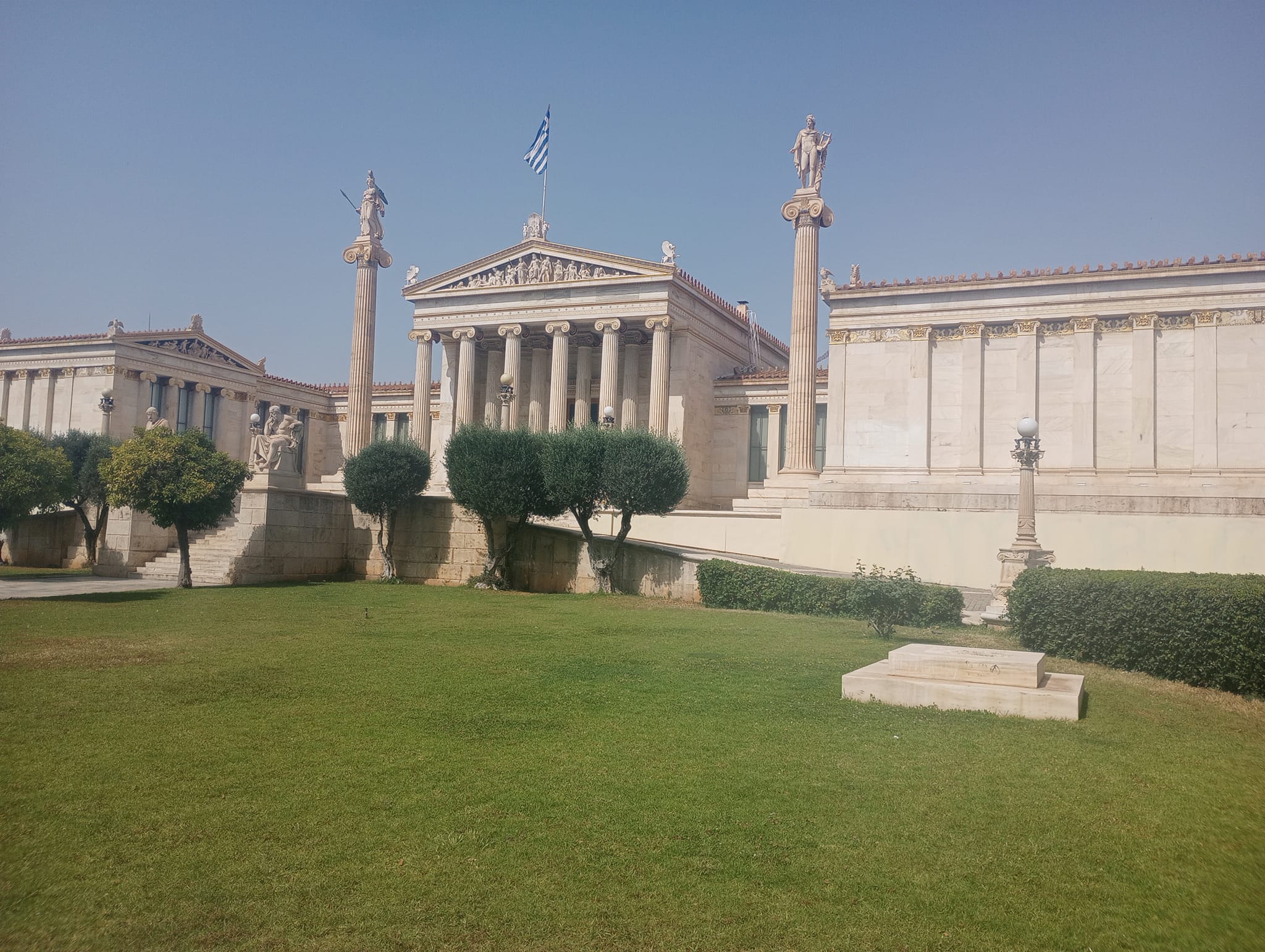
Purists rejected this variation and opted for the Attic language. During the Byzantine Empire, Koine returned as the Hellenization of the Eastern Roman Empire occurred. The Ottoman Empire sought to impose a different variation, but Greeks on the Island of Crete, who held out until the mid-1600s, spoke a variation similar to the one from the Byzantine Era (Kuiper n.d.). That version was adopted by Greeks upon independence in the 1820s, which has evolved into what’s now known as standard modern Greek (Kuiper n.d.).

2.4 Dominant Religious Denomination
The Greek Orthodox Church story is intertwined with the story of the Orthodox Christianity in general, given the role Constantine played in Christianizing the Eastern Roman Empire in the year 336 (Papadakis 1996). This religion originally spread from Jesus Christ to the Apostles beginning with the Pentecost when the disciples received the Holy Spirit (Papadakis 1996). Pentecost is therefore a key holiday in Orthodox Christianity, whose history is closely paralleled with the New Testament’s “Acts of the Apostles.” The missionary work of Paul and the other 12 disciples of Jesus throughout the Balkans and Middle East is where many early Orthodox Christian Churches were founded (Papadakis 1996). Its capital was Constantinople, the site of the impressive Hagia Sophia (Papadakis 1996).
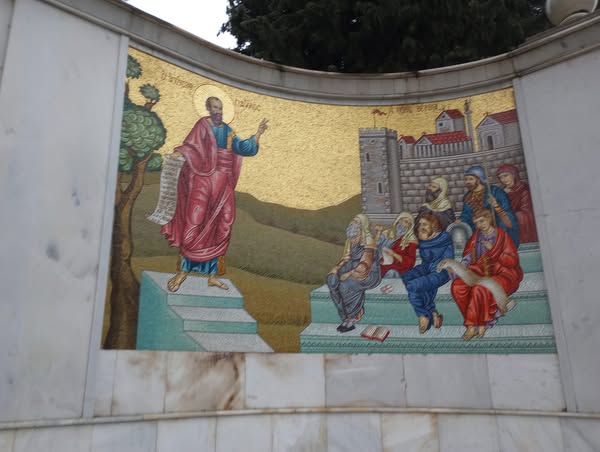
The destruction of Constantinople by the Ottoman Empire in 1453 did not destroy Orthodox Christianity. Though some key religious sites in Greece and Turkey were converted to Mosques, the faith was still tolerated throughout the region. The religion even spread to Russia and East Europe, as well as Western Europe and even to North America in 1768.
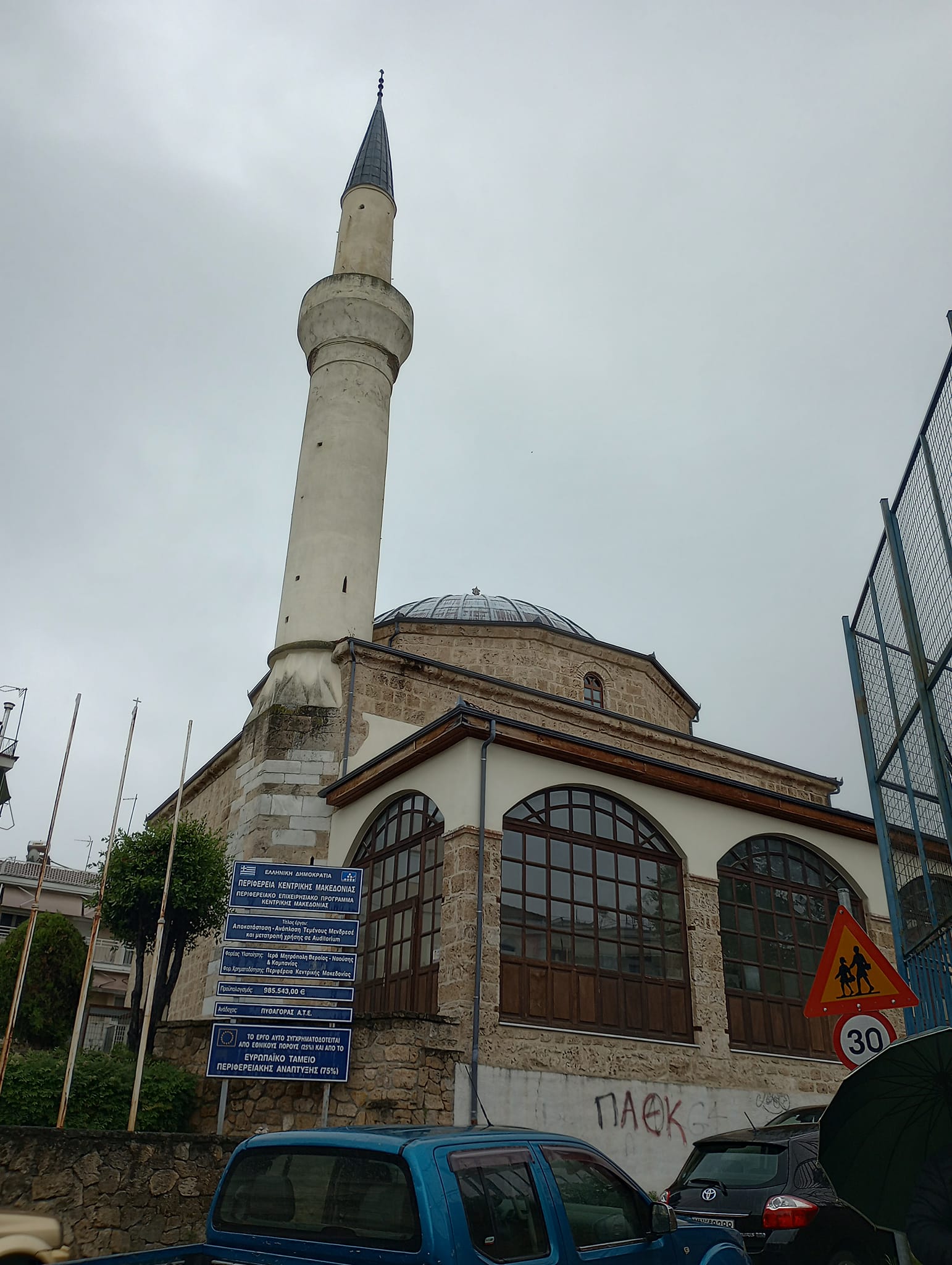
The Orthodox Church follows the Old and New Testaments and the oral traditions of Christianity (Greek Orthodox Archdiocese of America 2023). It emphasizes the importance of four obligatory sacraments: Baptism, Chrismation (Holy Oil), Confession, and Holy Communion, along with three optional ones: Matrimony, Holy Orders (Ordination), and Unction, or the Anointing of the Sick (Greek Orthodox Archdiocese of America 2023). Its religious holidays contain some from other Christian traditions, along with some unique ones, as well as the fundamental importance of the Orthodox Funeral (Greek Orthodox Archdiocese of America 2023).
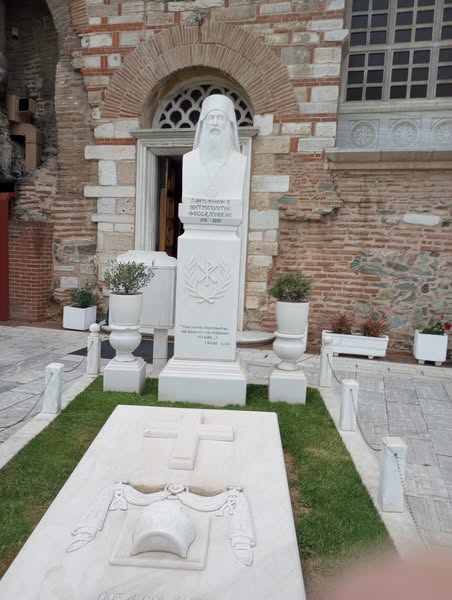
2.5 Significant Religious Minorities
According to a 2015 estimate by the CIA World Factbook, the Greek Orthodox Church membership can be as many as 90 percent, or at least 80% of the country, with Muslims making up 2 percent and other religions can be 3-4 percent. Those who identify with no religion may be as few as four percent, and as many as 15 percent of the population (CIA World Factbook 2015).

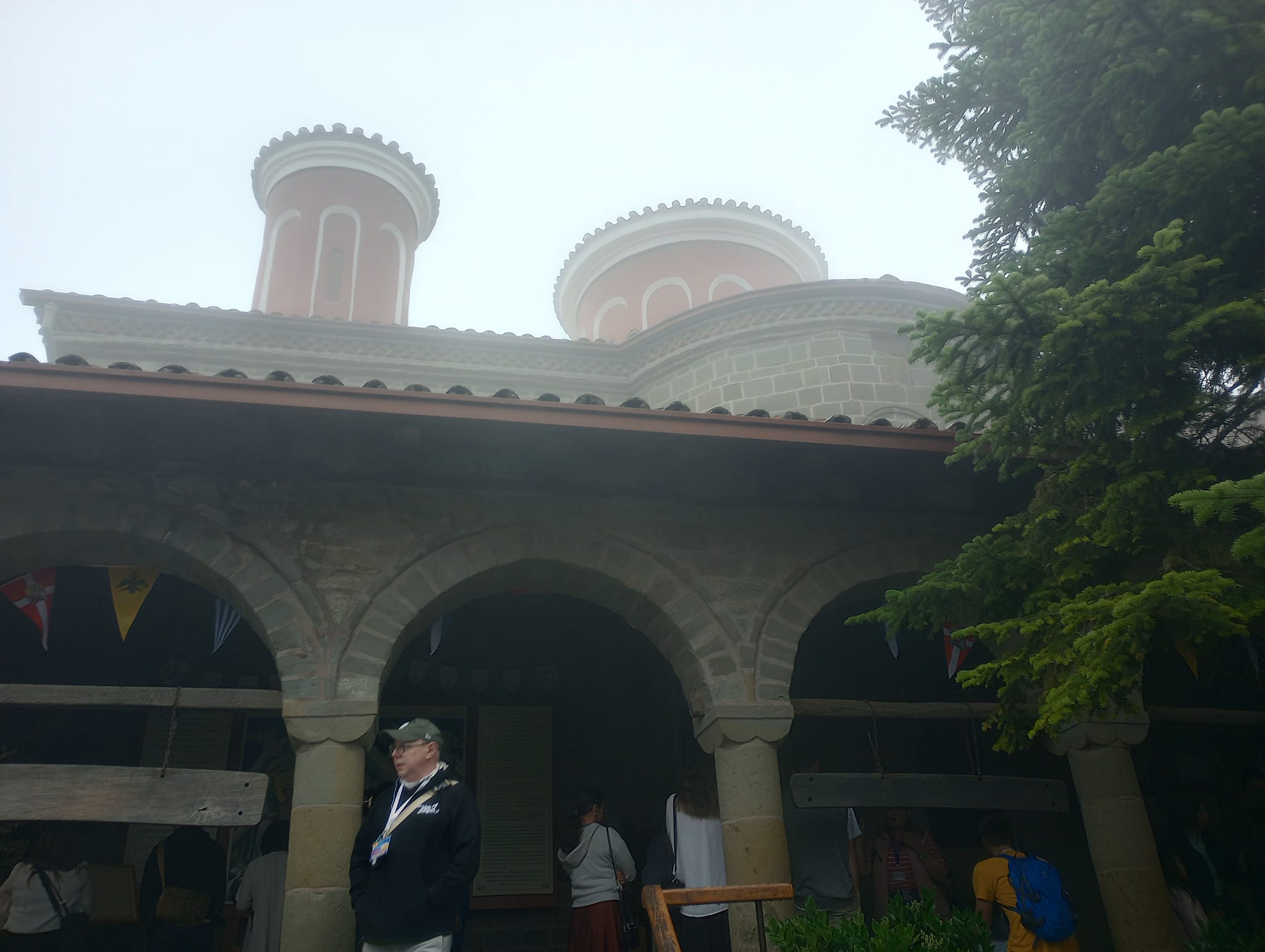
2.6 Historical Ethnic or Religious Conflict
“[T]he struggle for Greek independence begins in 1453 with the fall of Byzantine Constantinople, spans centuries of subjection and assimilation to Ottoman rule, and culminates in the late 18th century with a cultural Greek enlightenment that draws the attention and support of most of Europe,” writes David Jenkins (2024). Greece independence was later recognized after the decisive 1827 Naval Battle of Navarino, where a Turkish fleet three times larger than the Greek allies’ fleet from Britain, France and Russia lost 70 of 78 ships to superior ship size and cannon power (Abshire 1959).

The evolution from an autonomous Greece to an independent one in 1832 would not quell the country’s hostility toward their former oppressors, coupled with a desire to acquire nearby lands traditionally part of ancient Greece, from Epirus in the Northwest to Thrace in the Northeast. The differences in culture between the Greeks and Turks made this conflict an ethno-religious battle, and not merely one based on political differences or territorial disputes.
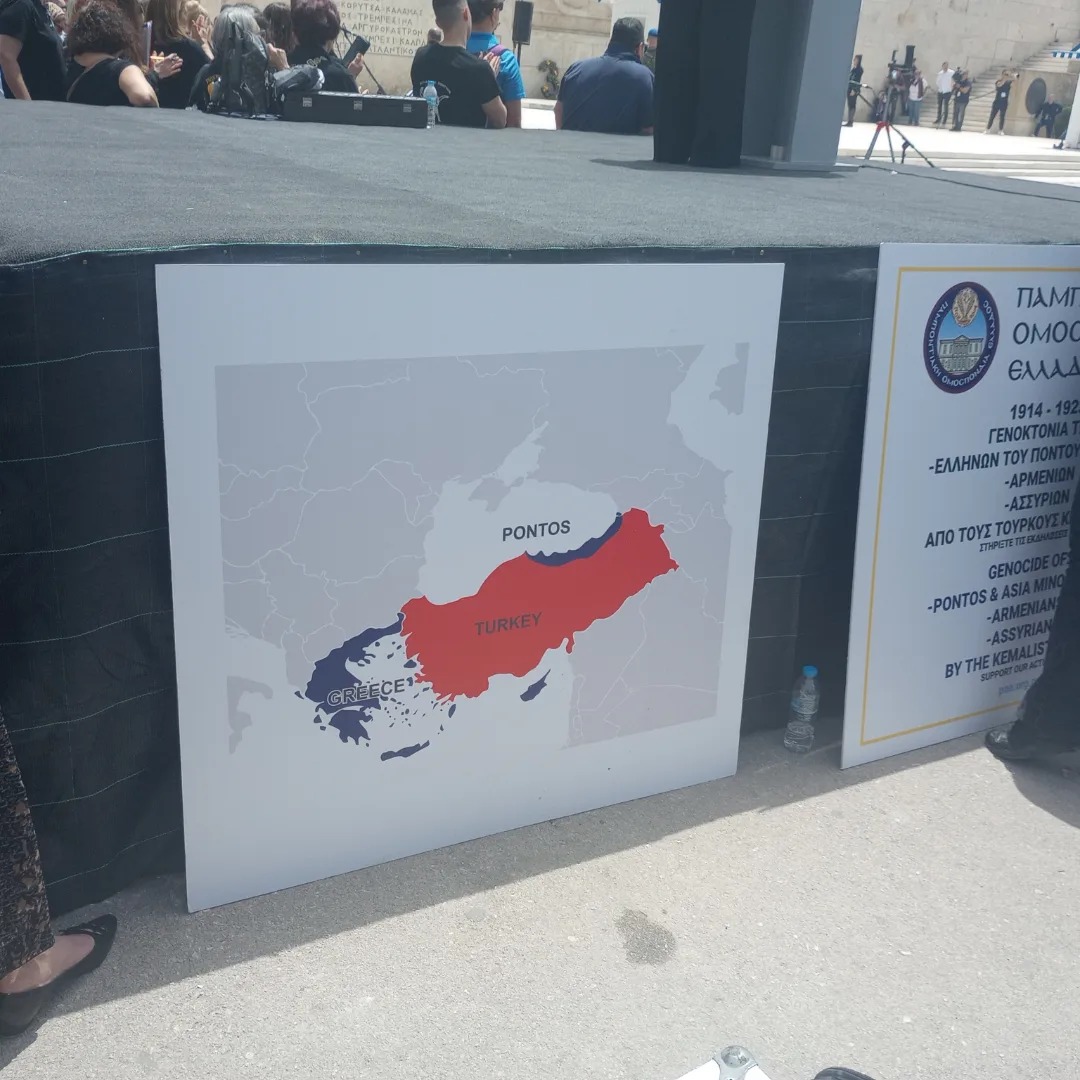
Greece won territory from the Ottoman Empire in the First Balkan and Second Balkan Wars, but the Greco-Turkish War from 1919 to 1922 in the wake of World War I was a disastrous setback. The postwar treaty was designed to partition the Ottoman Empire, and enabled Greece to claim the Western Turkish Coastal City of Smyrna (now Izmir) where many ethnic Greeks and Armenians lived. Many stories of Greek atrocities toward Muslims motivated the new Turkish military under Kemal at-a-Turk to repulse the Greek armies. The war delved into brutality by both sides.

After a series of cruel clashes, a new Treaty of Lausanne was signed, forcing up to 1.5 million Greeks to be expelled from Turkey to Greece, and half-a-million Turks to leave Greece for the new Turkish Republic. “The war resulted in the largest compulsory population exchange in history up to that time (2 million people) and helped define the concept of ethnic conflict,” Kinley (2019) wrote.
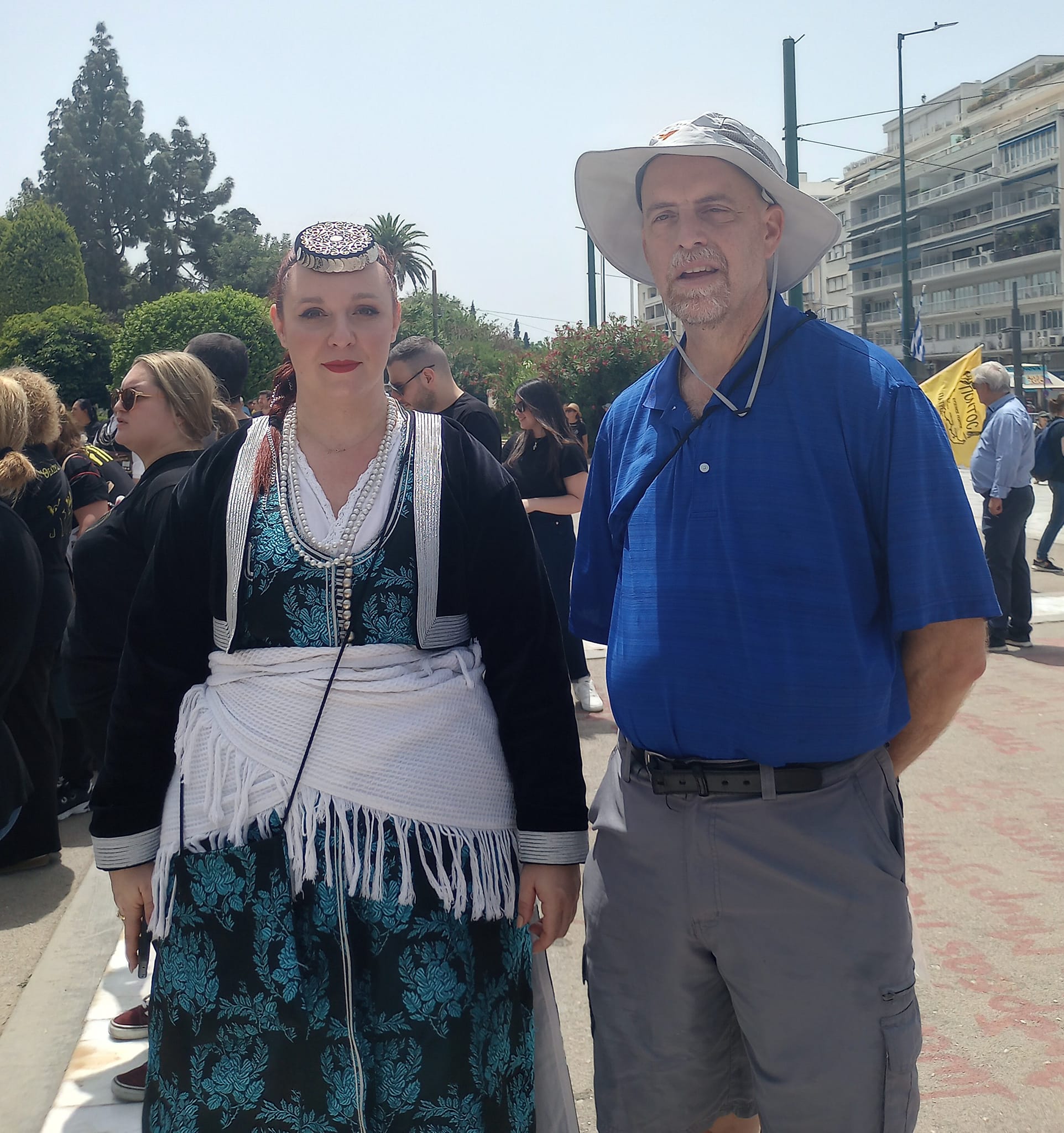
Not only did the country lose territory to the new country of Turkey, but ethnic Greeks in the Ponthic area of Anatolia were subjected to ethnic cleansing, with the massacred numbering over 350,000 (Lefteris 2020). Indeed, while in Athens, I witnessed an extensive political rally with attendees wearing the black costumes of those Greek people whose settlements could be found along the Black Sea.

“The exchange solidified the idea of both Greece and Turkey as homogenous nation-states,” Kinley (2019) adds. “Although there were still minority communities left out of the exchange, Greece essentially became an Orthodox Christian nation, whereas Turkey became a Muslim Republic. This war and the concept of religious homogeneity still causes tensions between the two countries today.”
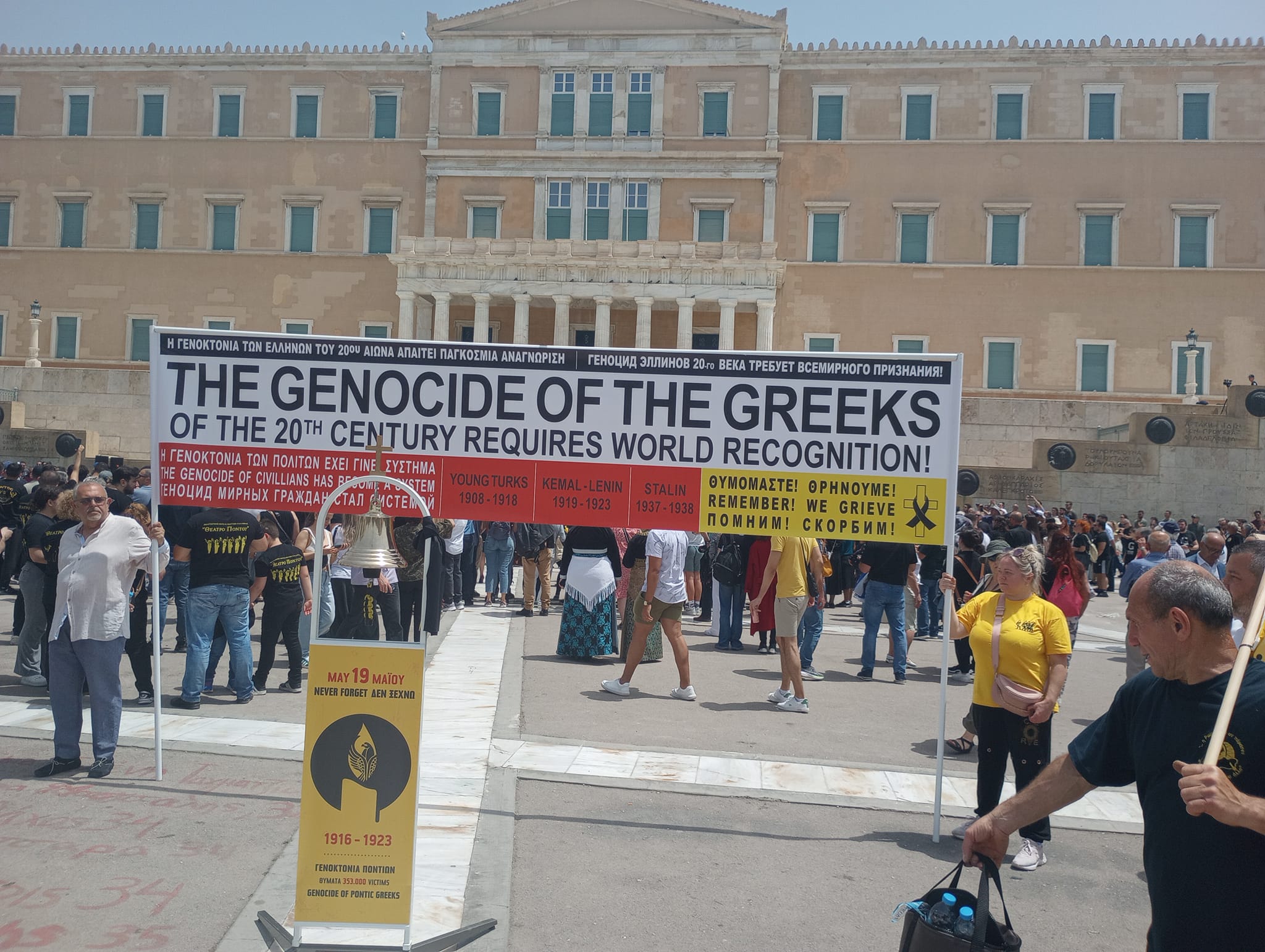
Additional clashes between Greek Cypriots and Turkish Cypriots, the latter backed by Turkish paratroopers in 1974, kept ethnic tensions high. In 1996, only some intense negotiations by the United States could keep the Greeks and Turks from fighting over the island of Imia in the Aegean Sea, known as Kardak by the Turks, off the coast of Turkey, despite the two nations being allies of the North Atlantic Treaty Organization (NATO).
In my travels to Turkey, on the anniversary of World War I, I heard more of their side of those on the other side of the Aegean Sea. They expressed their outrage at what they called anti-Turk propaganda from Greece, and emphasized actions done by those abroad to ethnic Turks. It is clear that the bitterness of the prior conflict will keep tensions in the region simmering, and could boil over until a full effort at addressing the killings of the past takes place. It was clear that this conflict is more rooted in hatred for past atrocities than the drawing of the borders or old territorial claims.

The attitude of many Greeks and Turks may well be similar to what I experienced at a University in Prilep, Macedonia. I saw an artwork depicting Macedonian men, women and children, hanging from trees. I was told it was a massacre perpetrated by the Turks during the rule by the Ottoman Empire. I pointed out that during that week, there was a large Macedonian cultural festival, with Turkish dancers featured prominently. “We forgive,” a university official responded. “But we never forget.”
Section 3: Political Culture and Civil Society
3.1: NGO & Civil Society Activity
Ingram (2020) from the Brookings Institute defines civil society as comprising “organizations that are not associated with the government—including schools and universities, advocacy groups, professional associations, churches and cultural institutions (business sometimes is covered by the term civil society and sometimes not).”
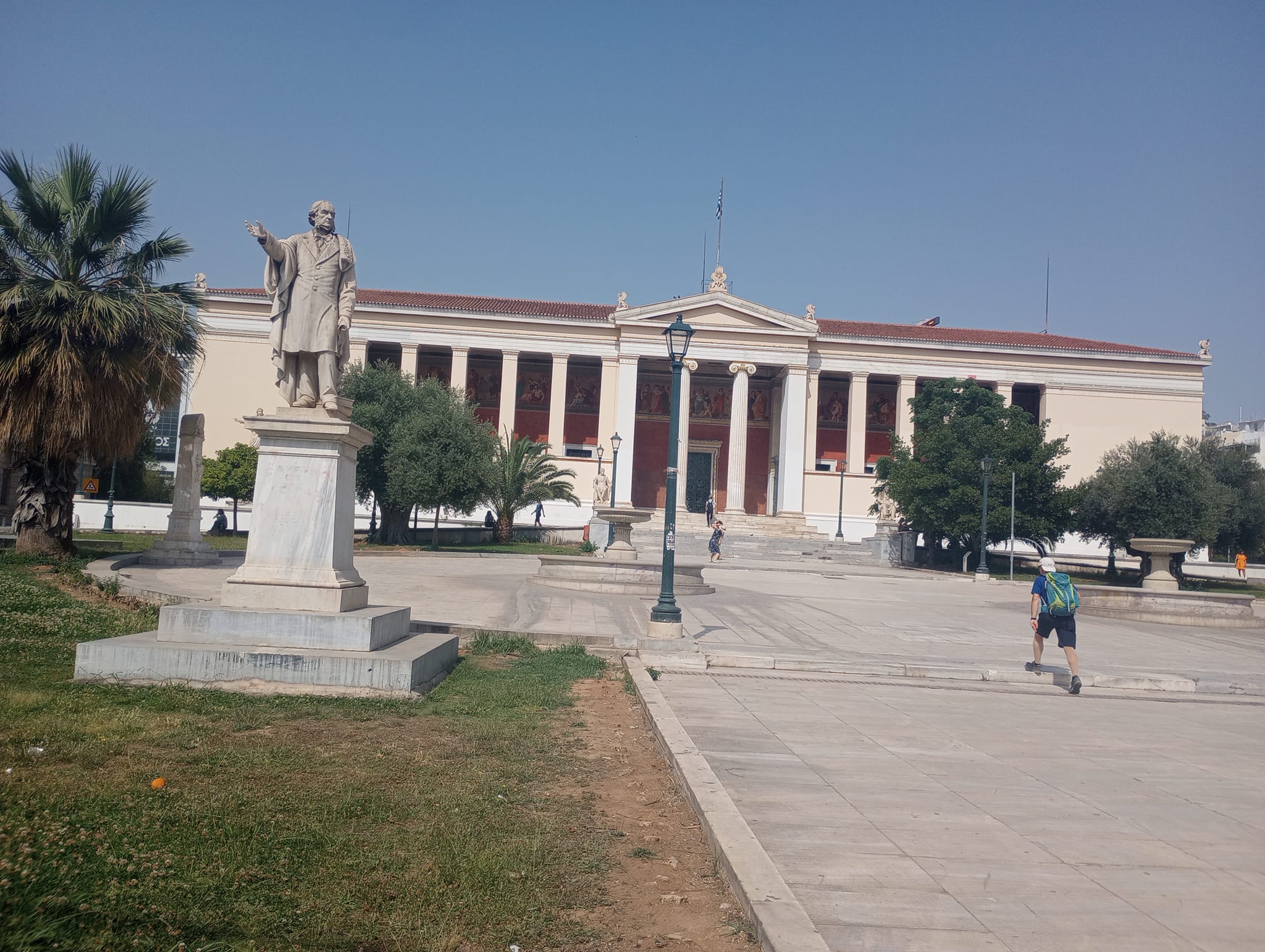
Many actors in civil society are nongovernmental organizations or NGOs. Harvard Law School (2022) defines NGOs as “Nongovernmental organizations (NGOs) are typically mission-driven advocacy or service organizations in the nonprofit sector….What began as consultancies with selected NGOs has evolved into a system of governmental and intergovernmental partnerships.”
Ingram (2020) sees civil society as the key ingredient for a country’s development. “Civil society organizations play multiple roles,” he writes. “They are an important source of information for both citizens and government. They monitor government policies and actions and hold government accountable. They engage in advocacy and offer alternative policies for government, the private sector, and other institutions. They deliver services, especially to the poor and underserved. They defend citizen rights and work to change and uphold social norms and behaviors.”
When the people mobilized, and united with disaffected elites to bring down the Greek military dictatorship in 1974, civil society and NGOs in the country were considered quite strong. That changed in the 1980s as cynicism and distrust of democratic politicians crept into the mindset of the people (Sotiropoulos 2004). But as Dimitri A. Sotiropoulos observes for The Hellenic Observatory of The European Institute, “First, some formal voluntary associations have been quite strong, and civil society in contemporary Greece is not as uniformly weak as it is generally thought to be. And second, in addition to formal civil society associations, of which there are comparatively fewer in Greece than in other EU countries, there is an informal civil society. This emanates from a flourishing, albeit informal and thus not officially registered, social mobilization which substitutes for the usual, formal civil society found in modern Western societies.”
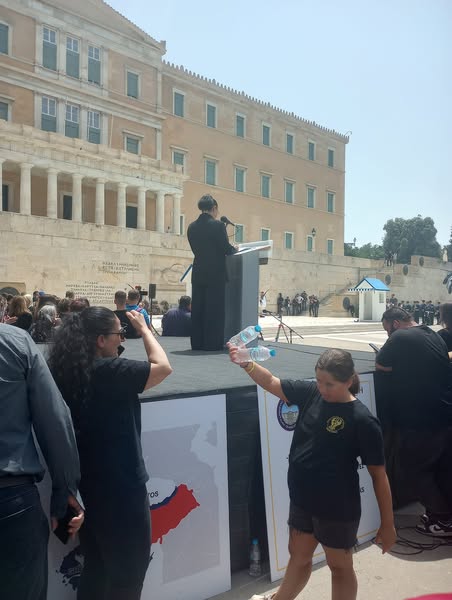
But just as formal Greek political institutions were challenged by cynicism 40 years ago, contemporary civil society and NGOs face pressure on three fronts: (1) the economy, (2) immigration, and (3) the environment.
The financial crisis in Greece not only assaulted the economy of Greece, but also assailed its formal political institutions. This gave the opportunity for the country’s non-governmental organizations to step in and fill the void.
Tzifakis, Petropoulos and Huliaras (2017) contend “A number of empirical studies have shown that a financial crisis can inflict a serious damage on the nonprofit sector—mainly through a sharp decline in revenues. However, the Greek case shows that a crisis can also have some positive effects on NGOs: many nonprofits introduced reforms that increased efficiency, the number of volunteers reached record levels, and there was a spectacular rise in funding by private philanthropic foundations.” The authors contend that this can create dependency issues, as such groups are less likely to be citizen-led, or citizen-directed.

In Greece, NGOs and civil society seeking economic reform need help from the European Union. The Global Call to Action Against Poverty (n.d.) reports “The Hellenic Platform for Development, an umbrella-organization that operates as a ‘national platform,’ leads a network of Greek Civil Society Organizations (CSOs) active in the fields of sustainable development education, humanitarian aid, global citizenship action and developmental social support. Its current members are supported by a large segment of the Greek society and offer their programs nationwide as well as in many developing countries.” But the E.U. often has its other issues to contend with, from challenges coming from member states, and external threats from Russia.
Just as the economic crises hit Greece suddenly, so too did the immigration crisis of 2015, as hundreds of desperate migrants from the Middle East began arriving on the Dodecanese Islands in the Aegean Sea, fleeing war and economic poverty. “In 2015, about 500,000 asylum seekers entered the EU through that island alone. This represents about half the overall sea arrivals in the EU,” report Skleparis and Armakolas (2016).
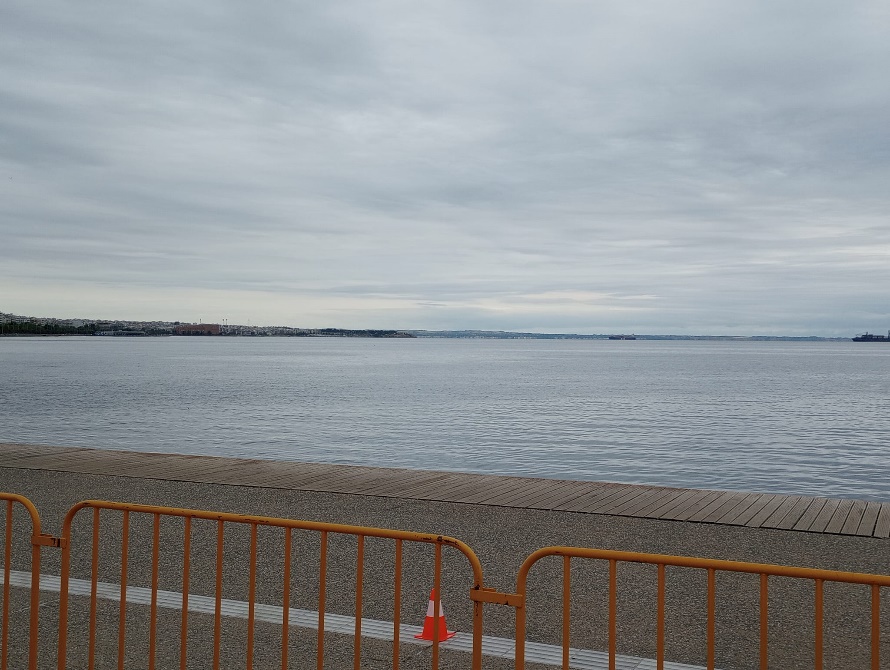
According to Skleparis and Armakolas (2016). “Greece was unprepared and unable to handle this massive wave of migrants. “The political and financial constraints after five years of austerity measures had severely limited the Greek state’s ability to react effectively and on time. Moreover, the new Greek government elected in January 2015 underestimated the severity of the humanitarian crisis and failed to prepare an adequate response despite the clear signs that 2015 would become a year of mass irregular movement of people into the EU. Furthermore, for a month prior to the September 20, 2015, national elections – a key period in terms of the developing situation on the islands – a caretaker government was in place, which was unable to initiate an emergency response.”
Moreover, international NGOs faced their own inability to solve the migration problem. Skleparis and Armakolas (2016) add “International NGOs were also slow to realize that Greece was in need of humanitarian assistance, mainly due to the location of the humanitarian crisis. They assumed that an EU Member State such as Greece would be able to respond on its own. Most international NGOs were not formally registered in Greece, which led to delays in their mobilization. When these organizations arrived on the ground, they faced severe bureaucratic obstacles, such as tight employment and visa regulations, which prevented them from deploying, experienced aid workers. Financial (capital) controls in Greece also hampered their ability initially to mobilize resources. Finally, major Greek NGOs were also slow to respond to the humanitarian crisis, mainly due to their commitments to ongoing aid programs in mainland Greece. Supporting Greek nationals affected by the economic crisis limited their capacity, both in terms of funding and staff, to scale up their operations on the islands.”
The environment represents another sector where NGOs have sought to solve problems, only to face challenges from the economic crisis of 2008. An early ENGO (environmental NGO), the Hellenic Society for the Protection of Nature began as early as the 1950s, while the movement joined the global awareness and desire for change in the 1970s, coinciding with the return of democracy. Botetzagias and Koutiva (2015) report that due to a slow drying up of funds from businesses, foundations, businesses and the state, such ENGOs are under greater pressure to seek funds from individual members. And in times of economic hardship, donations to environmental groups suffer.

Groups on the political left understood the role that could be played by a more mobilized civil society translating assistance into political action. Tsakatika and Elftheriou (2013) reveal that the Communist Party of Greece (KKE) and the SYRIZA Party (Coalition of the Radical Left) tried to connect to trade unions and the new social movements, with the latter being more successful in such efforts.

Crises like the ones Greece suffered at the end of the 2000s involve having an informal civil society pick up the slack for the decline of formal organizations, until the latter can be put back together again, just as church soup kitchens played a bigger role during the American Great Depression, until the New Deal could commence. It was the same in Greece, at first. “The developments that have taken place in Greek civil society during the crisis are bound by existing socioeconomic conditions,” writes Simiti (2015). “Indeed, the organisational forms and repertoires of collective action that have prevailed in Greek civil society during the crisis correspond to ones that usually emerge in periods of severe economic crises. A shift from formal to informal associational repertoires in Greek civil society has been recorded, while the density of civil society has increased. “
But Simiti (2015) is concerned that something is different, a problem which could threaten the entire Greek political system. When more join a group, that does not mean group effectiveness. “However, these developments do not signal the growing strength of civil society. During the crisis, the reduced capacity of the state to provide the basic rights of citizens has led to a rapid deterioration in the quality of citizenship. In turn, social inequality and exclusion have undermined the strength of civil society. As the Greek case illustrates, increased associationism is a necessary precondition for a strong civil society, although during periods of severe economic and political crises it may not be sufficient (Simiti 2015).”
3.2: Ethnic and Religious Identities
There is a group that does not seem to be struggling so much in Greek society: the far-right. Such an ideology hypes nationalism with what they consider traditional Greek ethnicity and religion, using patriotic appeals to garner support. This was exacerbated not just during the economic crisis, but also with waves of immigration, used by the right to accuse the government of diluting a “pure” Greece with foreigners.
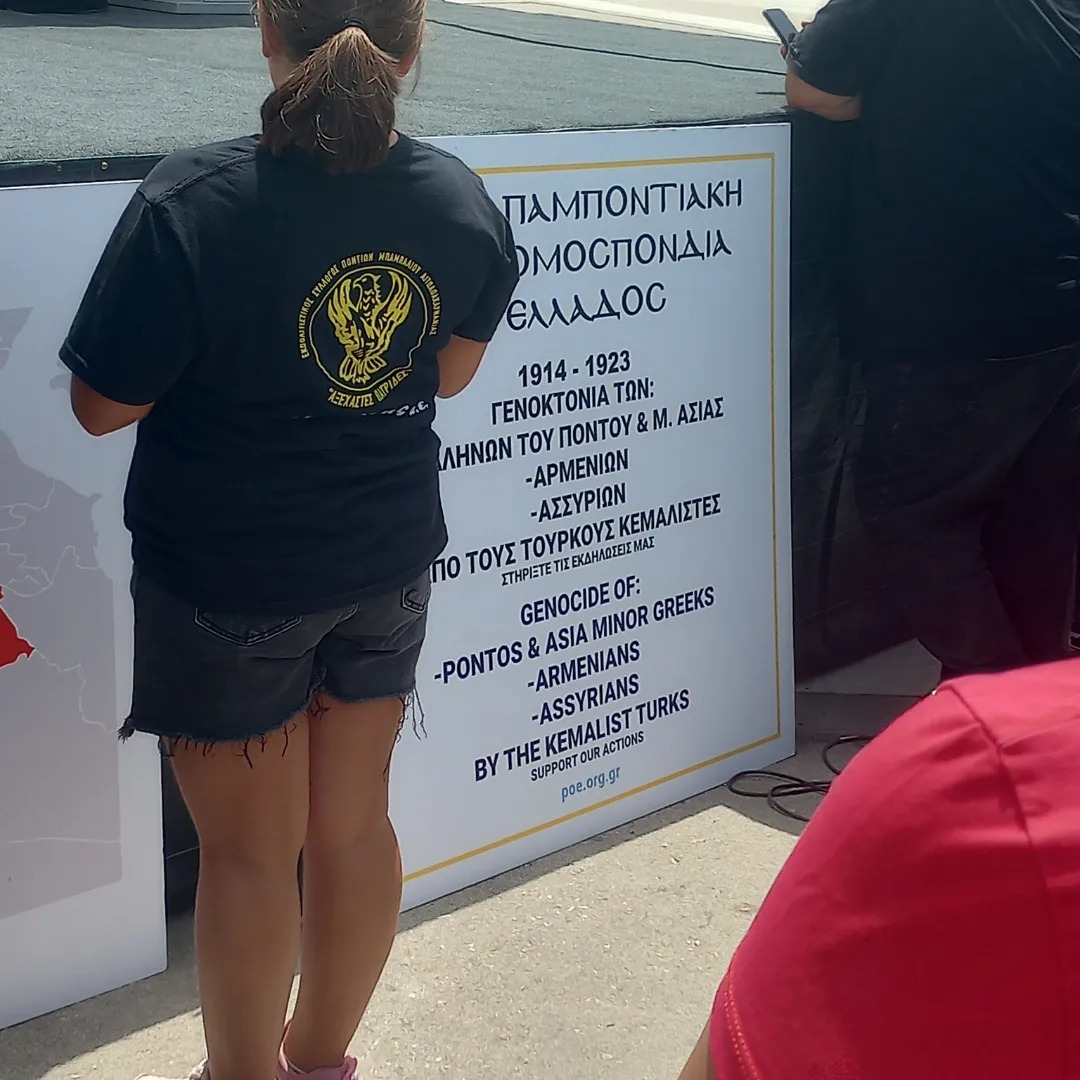
Many assumed that with the demise of the ultra-right “Golden Dawn” Party that those accused of being pro-Fascist would be in decline. Indeed, the organization is banned, and some of its members were jailed (Al-Jazeera 2023). Yet in the 2023 election, three far-right parties won seats, the only country in Europe where this happened, according to Al-Jazeera (2023). Perrier (2024) also reports that the right wing has gone “mainstream,” getting plenty of coverage by media sources with deep pockets. Perrier notes that there’s a strong anti-fascist element in cities like Athens, but Greeks may not realize how powerful those forces on the right really are.
3.3: Underrepresented Identities
Despite evidence of many emigrations to ancient Greece, the subject of those in Greece different from the dominant ethnic group is often an awkward one. This is partially from the debate over Greek origins, and also over the history of foreign occupation (Ottoman Empire) and clashes emanating from Greek neighbors in Balkan Wars (Turkey, Italy through Albania, Bulgaria, etc.).
“National and ethnic identities have for long been in the core of political tensions and even military conflicts within Greece and between Greece and its neighbours,” Myria Georgiou (2004) writes. “The concept of ethnic minority still remains a taboo and unacceptable concept for many policy makers, politicians and for the majority of the mainstream media; it is considered as a threatening political/propaganda concept that challenges, or even threatens the national interests and boundaries of Greece.” She notes that there are currently even using phrases like ethnic minorities is a touchy subjection “where the ideology of national homogeneity is still dominant.”
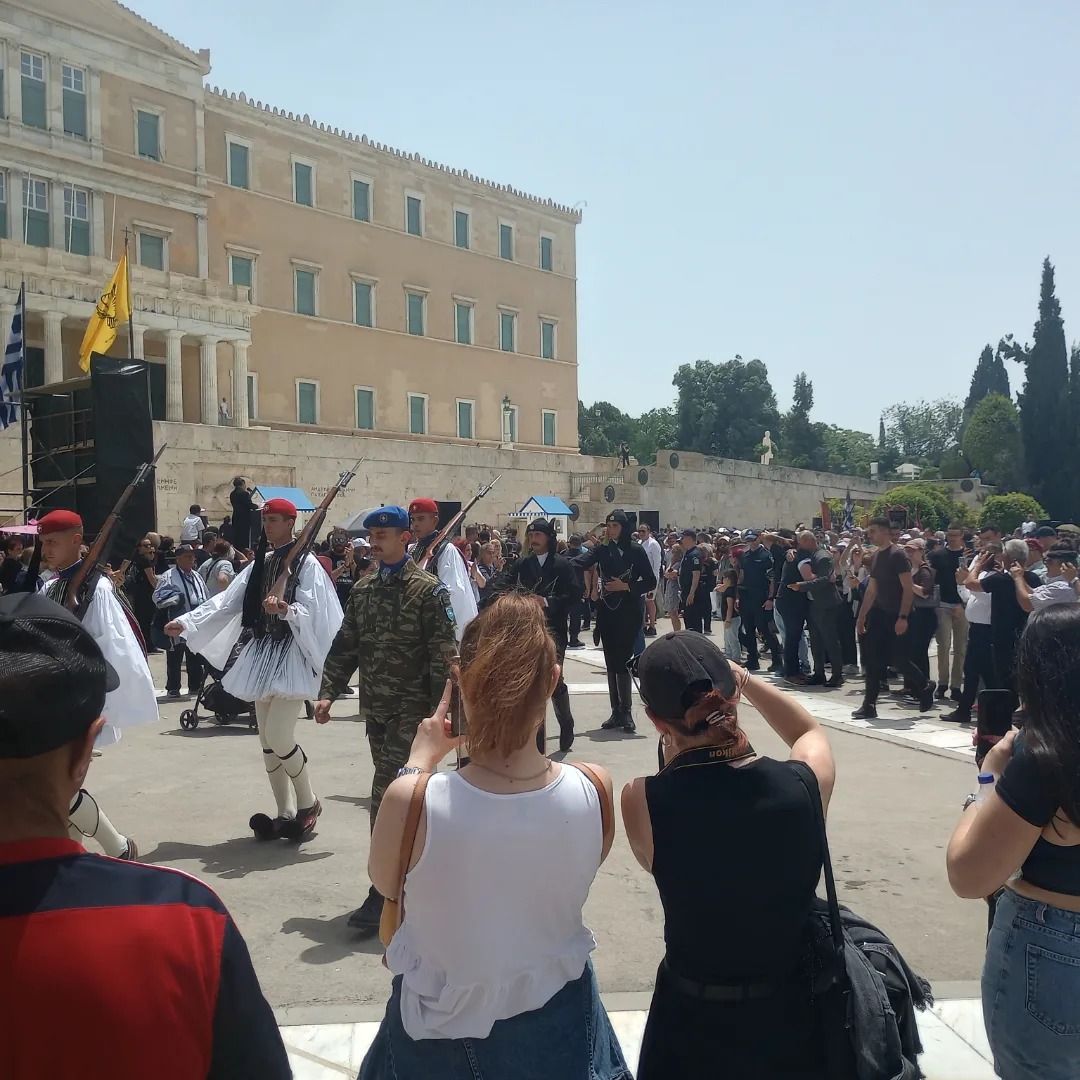
The Fulbright Foundation Greece (2024) reports “Foreigners are generally welcome, but the recent and sudden influx of immigrants has sometimes led to resentment. Due to the homogeneity of Greece, there are no big communities that represent diverse ethnic groups, except for immigrants and refugees. People from Africa, the Middle East, and South Asia are concentrated around Omonia and Patission, especially Plateia Victorias. There are numerous expatriate groups on Facebook and a growing Chinatown near Syntagma, as well as a Filipino community in Ambelokipi.”
This foundation also reports that in addition to ethnic and religious minorities, there is recognition of a growing LGBTQ+ population. “Greece is the birthplace of Eros and of the poet Sappho. Members of the Greek LGBT+ community frequently appear on mainstream television and several celebrities have self-identified as members. LGBT+ communities in the larger cities of Athens and Thessaloniki have become quite vocal and active (Fulbright Foundation Greece 2024).”
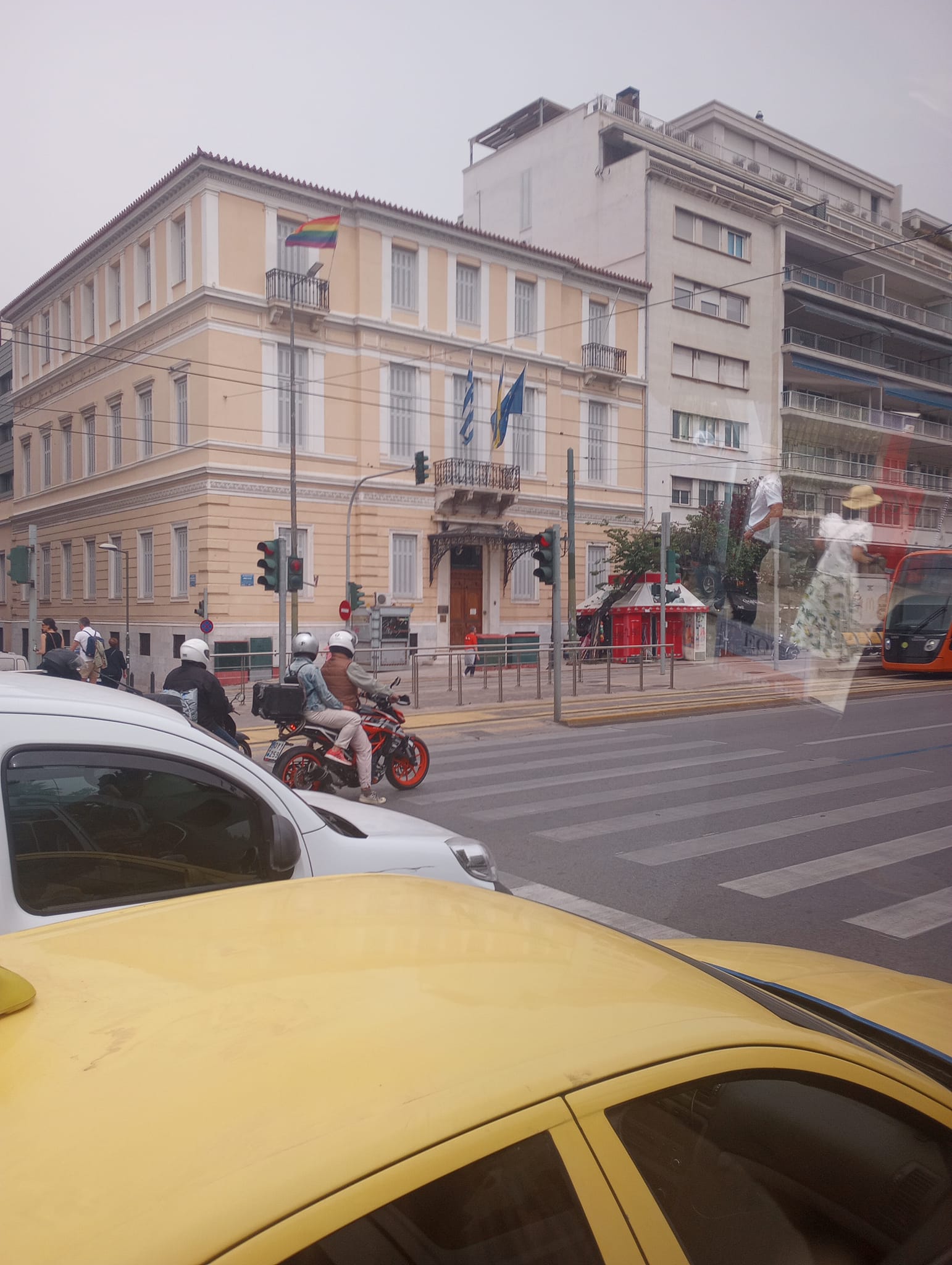
3.4: Political Polling
Like many European countries, Greece’s political system is extensively polled. The personal preferences of political parties are tracked over time, as Politico (2024) shows, in cases for more than 10 parties before and after the 2023 elections.

Greece also has the power of referendum, where the people can vote on some high-profile issues, like the 1974 decision of the Greeks to reject the monarchy in favor of a republic by a wide margin (Roberts, 1974) after the military regime fell. Traynor, Hooper and Smith (2015) report on the results of the 2015 referendum, and a big no vote on the country remaining in the Eurozone’s single currency, at the expense of tax increases and spending cuts.
3.5: Governance
Freedom House’s (2024) report on Greece can be summarized by this quote. “Greece’s parliamentary democracy features vigorous competition between political parties, and civil liberties are largely upheld. Ongoing concerns include corruption, government surveillance, discrimination against immigrants and religious and ethnic minority groups, and poor conditions for irregular migrants and asylum seekers.” The country’s Freedom House score of 85/100 makes it a solid democracy, with positive scores for political rights, 35/40 (the ability to run for office, form political parties, etc.) and civil liberties (freedom of speech, the press, religion, etc.). Their score is a tiny decline from 88/100 in 2020, which is something to note.

Amnesty International (2024) documents the situation for Greek refugees, including the closure of migrant camps, and challenges to protests by Greek citizens. According to their report for 2024, “Reports of unlawful use of force in the policing of demonstrations persisted. Survivors of a shipwreck in which more than 600 people died blamed the Greek authorities for causing the incident. Human rights defenders continued to face criminalization for their work with refugees and migrants. An investigation by Greece’s data protection authority identified 88 individuals as targets of Predator spyware. Violations of the rights of conscientious objectors to military service persisted. Destructive wildfires resulted in the loss of lives and natural habitat amid concerns at the failure of the firefighting system.”
Section 4: Political Participation
In 1981, the left-of-center PASOK (Panhellenic Socialist Movement) party won a landslide, one of the biggest elections since the end of the military dictatorship from 1967-1974 (Clogg 1982). The party boosted its fortunes by nearly doubling its prior election showing (from 25.34 percent to 48.0 percent) and boosting its share of parliament from just under 100 MPs to a strong majority of 172 (to the right-of-center New Democracy (ND) which fell 56 seats to 115 MPs). The Communist Party of Greece managed 10.94 percent, while no other party got more than two percent of the vote. PASOK succeeded by shedding its class-based rhetoric in favor of more moderate-sounding proposals (Clogg 1982).

This two-party system of the postwar dictatorship persisted for a number of subsequent elections until the Greek financial crisis during the Great Recession. Now new parties have emerged that threaten the two-party system of the 1970s, 1980s, 1990s, and 2000s (Politico 2024).
The fortunes of parties are not the only change since the end of military rule. Women won the right to vote in 1952 (Efthyvoulou, Kammas, and Sarantides 2020). Papageorge-Limberes (1988) found that after the military dictatorship ended, more opportunities opened up for Greek women. Issues pushed for include civil marriage, an abolition of the dowry system, making divorce easier.
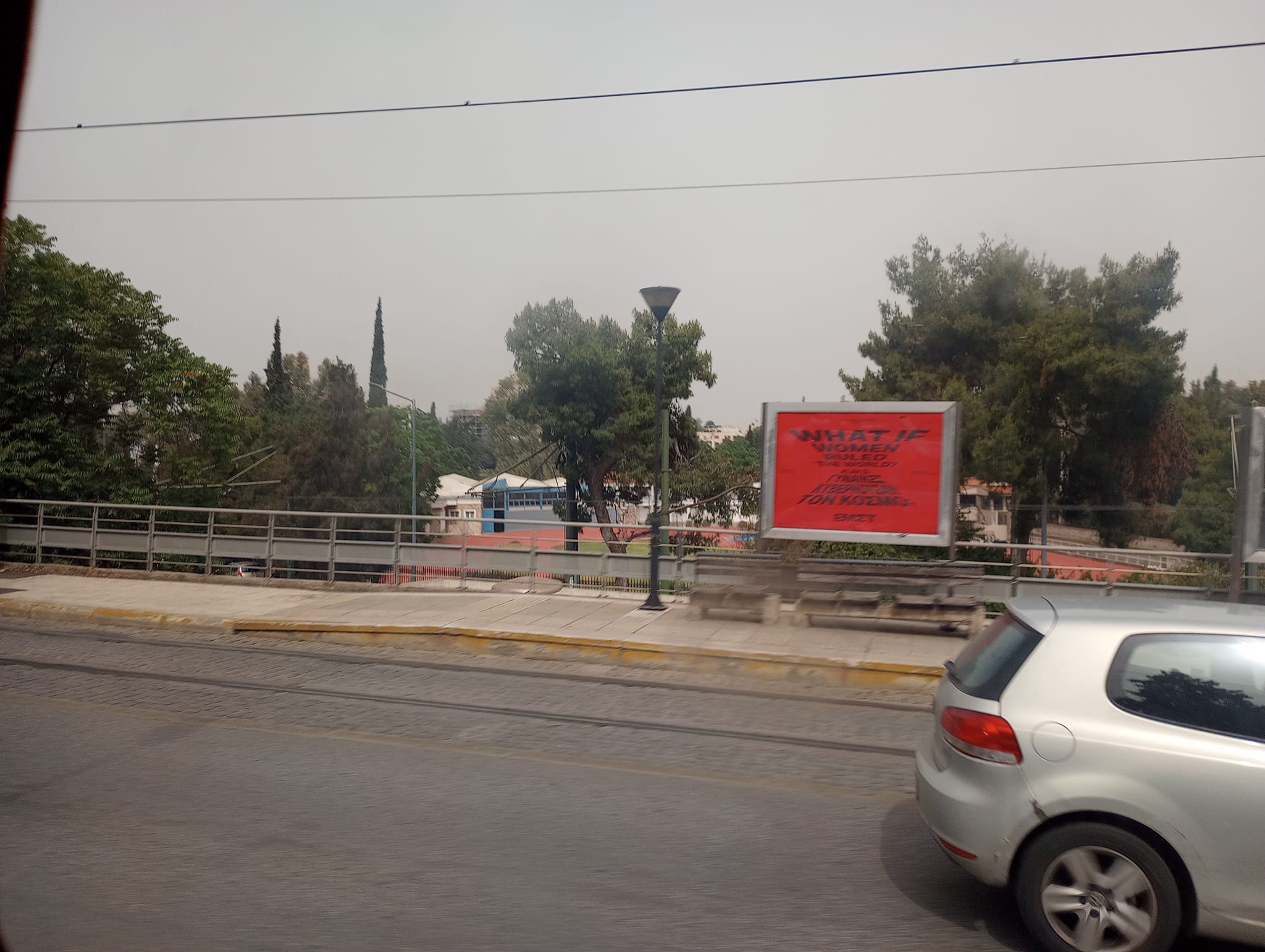
Women with more education adopted more modern approaches to politics, which include more political engagement, while women who are older or had more kids hew to a more traditional role for women, reminiscent of pre-democratic Greece (Papageorge-Limberes 1988). Efthyvoulou, Kammas, and Sarantides (2020) find that if there is a gender voting gap, it is only seen in Thessaloniki, and only related to whether women are in the labor force or not; those not working are more likely to vote conservative.
Sophocleous, Anastasiadou, Masouras, and Apostolopoulos (2023) claim that “poll results may tell us that the motives of the Greek voters are mainly result of their personal perceptions, rather than exogenous factors. In this respect, the political parties, could explode the particular fact, by giving emphasis to element such as the Integrity and the political background of their candidates, which appear to be more influential upon voters’ perceptions.”
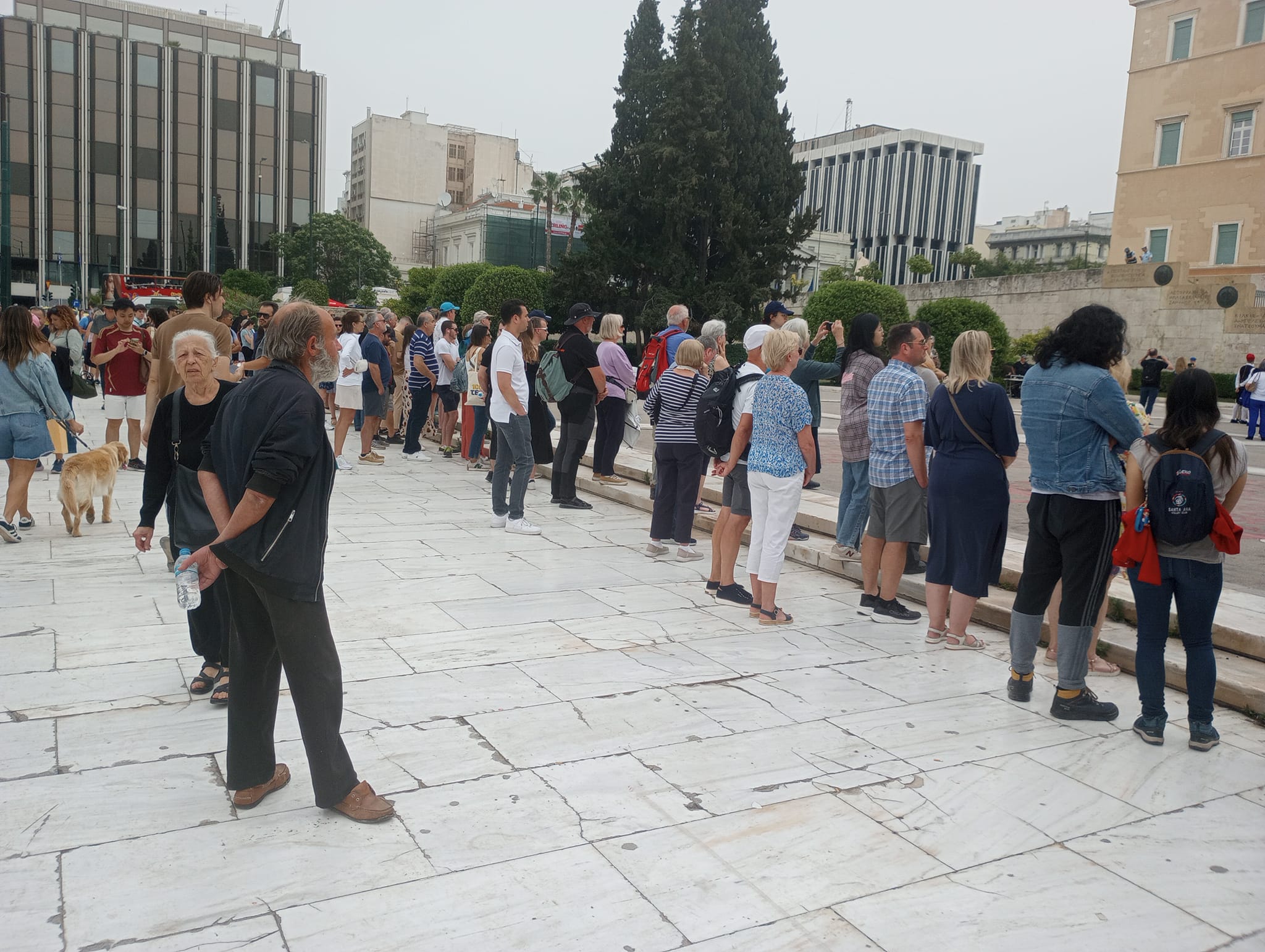
In fact, dismay with Greek politics has also taken its toll on voter turnout. From those heady days of 1981 with an electoral turnout of more than 80 percent declined to barely above 50 percent in 2024 for the European elections (Efstathiou 2024). Some blamed the heat wave of 2024, but others pointed to electoral fatigue and disaffection with existing political parties (Efstathiou 2024).

4.1: Political Parties
New Democracy on the right and PASOK on the left have been the two dominant parties since the mid-1970s when the Greek military exited power. The New Democracy Party is a Christian Democratic-style right-of-center party that supports more nationalism, a greater role for the church doctrine in politics, and a private sector with less interference from government regulations.
“In the parliamentary elections of 2023, the ruling New Democracy (ND) party of prime minister Kyriakos Mitsotakis was re-elected triumphantly,” Chryssogelos (2024) writes. “ND’s victory marks an unprecedented moment of centre-right dominance in Greece since 1974 and goes against the trend of the so-called ‘crisis of the centre-right’ elsewhere in Europe…. [The] ND’s strategy under Mitsotakis has been typical of the winning formula of other centre-right parties in Europe in previous decades. Yet, that this formula is now so successful in Greece owes much to the country’s post-crisis context, out of which the Mitsotakis leadership emerged.” The ND was also boosted by economic growth and effective management of the COVID-19 pandemic, while just as many being opposed by a left-wing fragmented among several parties. The party is now down to 30% support, a sizeable drop-off from their 2023 success.

PASOK or the Panhellenic Social Movement, is Greece’s center-left party, similar to the Social-Democratic Parties of Germany and Italy of the Socialist Party of France, or the Labour Party of Britain. Formed after the Greek military coup, the party, PASOK embraced a strong version of socialism which called for strong government regulations and a possible abandonment of Western military alliances like NATO (Britannica n.d.). But to win power as they did in the 1981 elections, and subsequent ballot contests, PASOK, like other European Socialist parties, had to moderate their views. PASOK won several elections until the Greek financial crisis, when they had to capitulate to European Union demands on the bailout package, agreeing to an economic austerity program that raised taxes and cut spending in 2010 (Britannica n.d.). PASOK now struggles to regain its former glory; it is now currently polling at 18% (Politico 2024) good enough for second place in Greece.
SYRIZA, originally wedged itself between PASOK on the Center-Left and the Communist Party of Greece on the extreme left-wing acting as though the Soviet Union and the Warsaw Pact never collapsed. A good analogy for this party is the American Progressive Party (Dimitrovski 2020), or France’s current Left parties, or the Party of Democratic Socialism in Germany. Emboldened by the drop in support for PASOK, SYRIZA prevailed in 2015, led by the bold Alexis Tsipras, who promised an end to austerity packages. Months later, Tsipras was forced to do an about-face, and accept another bailout package. The party was crushed in 2023 election, which led to Tsipras and in-fighting over the future direction of the party. Currently, the party has fallen into single digits for support (Politico 2024).
KKE is the Communist Party of Greece. The party’s legacy comes from its resistance to Nazi Germany, and its battles with the post-WWII regime supported by Britain and America. The party has hovered in support between 5% and 10%. When walking about Thessaloniki and Athens, it was the easiest to find their literature and stickers, calling for rallies. Currently the party support is at 8%, one percentage point better than SYRIZA.
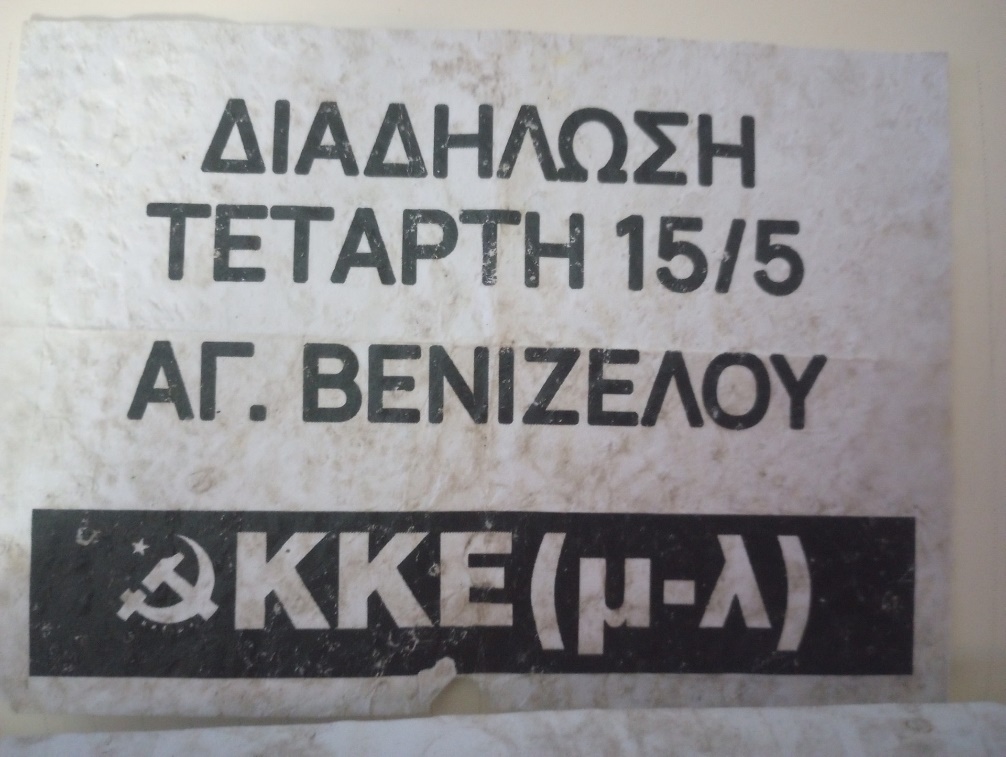
A slew of right-wing parties have emerged in Greece, the result of economic and migration crises, emanating from the Middle East. Parties on the extreme right won 12 percent of the vote, with the newly formed nationalist group “The Spartans,” which garnered 12 seats (Smith ). They were supported by former members of Golden Dawn, the neo-Nazi organization now banned in Greece. We saw evidence of this group at the Ponthos Rally in Athens, seeking to whip up nativist support. This group resembles the hard right parties emerging across Europe in Scandinavia, Germany, France, and Spain (Smith 2023). Other parties of the far right, like Greek Solution and the Patriotic Movement, which earned between 3.5 percent and 4.5 percent of the vote (Smith 2023).
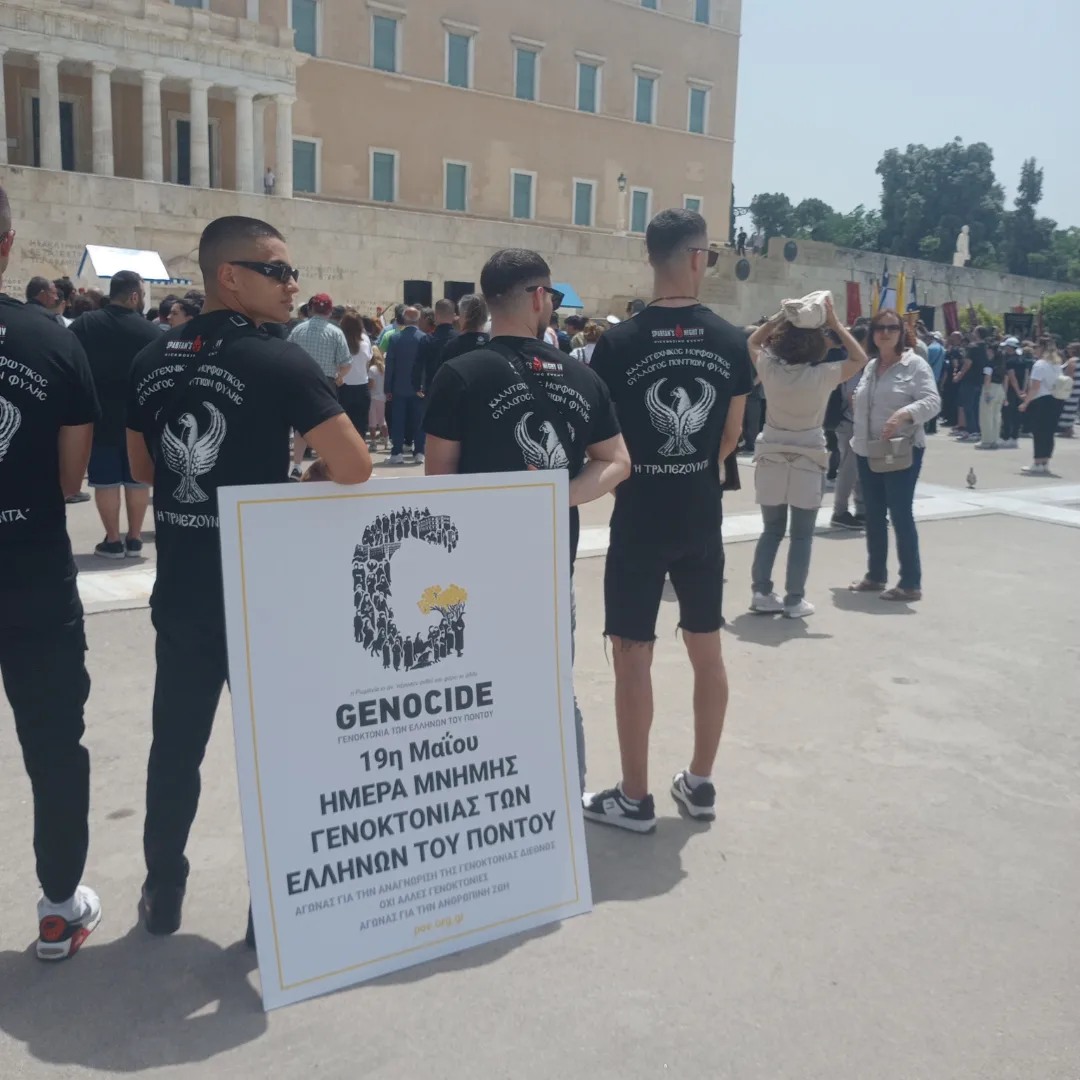
Other parties exist in Greece, now that the country has fragmented from a relatively stable post-1974 two-party system to a multiparty system. It remains to be seen whether such a system persists, or if these parties can form alliances and morph into stable coalitions.
4.2: Interest Groups
Interest groups, noted in the civil society section, are non-governmental groups that perform vital roles in the economic sector, but also lobby the political system on matters of policy. Of their function and importance, Rossetos Fakiolas (1987) writes “As in other Western European political systems, there are thousands of interest groups in Greece, performing different roles and having varying relationships with the institutional structures of the State. The groups inevitably cover a wide range of the interests, from strictly economic to cultural, educational, ethnic, religious, and conservationist. The negative effects of interest groups in creating rigidities in the economic and social system have been more than offset by their stabilising influence in a society characterised by a succession of the abnormal political, economic and social developments in the last 50 years.”
Greek interest groups, like the political parties, were once more centralized, but are becoming more spread across multiple groups. For the business sector, there is the SEV, or Hellenic Federation of Enterprises. SEV (n.d.) lists almost 50 different business associations under their umbrella organization. The Ministry of Foreign Affairs in the Hellenic Republic (2022) lists even more groups. The function of these groups is to advance their businesses, influence government to deregulate their industries, open foreign markets to their products, and provide economic advice to government.” The historic role of the SEV is not without controversy. While under the Greek military junta, the business groups did support liberalization, but it was more about repairing ties with the European Economic Community (EEC) and supporting an authoritarian transition to electoral politics, rather than a push for a strong democracy, according to Tsakas (2018).
As for workers’ organizations “Trade unions were officially inactive during the military dictatorship (1967–1974), although many unionists participated actively in the struggles for the restoration of democracy,” writes Giorgos Bythimitris (2021). He adds that power to unions did not return until the election of PASOK’s Andres Papandreou in 1981, a move that paid dividends for the unions when the Socialists prevailed. “The law on trade unions updated in 1982, which laid the groundwork for proportional representation, marked the beginning of a very active period – by Greek standards – for trade unions, who were involved in policy-making and social dialogue. However, close links between the (governing) parties and trade unions was already evident at that time, subsequently resulting in a system of ‘give and take’” Additionally “the enlargement of the Greek public sector was also an outcome of the new roles and responsibilities that the Greek state assumed within a more complex and interconnected international environment in the last quarter of the twentieth century. Suffice to say that, even at its peak, average employment in the Greek public sector was close to the EU15 average (Bythimitris 2021).”

The unions in Greece organized into a hierarchical structure. “In terms of trade union structure, Greek law makes provision for three different levels: a) First-level trade unions: these unions are legally autonomous and their activities are generally limited to a particular region or business. They may be part of a national sectoral trade union or regional trade union confederation (second-level). b) Second-level trade unions: these are either national industrial or occupational confederations (sectoral trade unions such as GENOP-DEI) or regional organisations, such as the Centre of Athens Labour Unions (EKA). c) Third-level trade unions: national trade union confederations, such as GSEE and ADEDY, made up of second-level trade unions (Bythimitris 2021).”
Further advances were made in collective bargaining and flexible employment contracts. But the power of the unions was buffeted by the Great Recession economic crisis, with a downturn that hurt workers, as well as budget cuts that affected public sector employment. Greek unemployment hovers around 15.6 percent, with women facing more problems (19 percent jobless) than even men in Greece (12 percent unemployment), according to Bythimitris (2021). This decline of the unions seems to go hand-in-hand with the troubles facing the parties of the Left.

Many farmers in Greek agriculture have joined Agricultural cooperatives (AC), created to offset some of the challenges from economic (large farm and agribusiness competition, reduced access to credit, downturns that dry up demand) and environmental problems (climate changes and disaster), covering business functions ranging from distribution, processing, and marketing, as well as manufacturing (Kalogiannidis, Karafolas, and Chatzitheodoridis 2024).
As Patronis and Mavreas (2004) report, the agricultural sector has been the beneficiary of “the large extension of agricultural credit, as well as the constantly increasing involvement of the government and banks in their internal affairs.” Like other farmers, there is a desire for protection from international competition; there are also concerns over being co-opted by political parties.
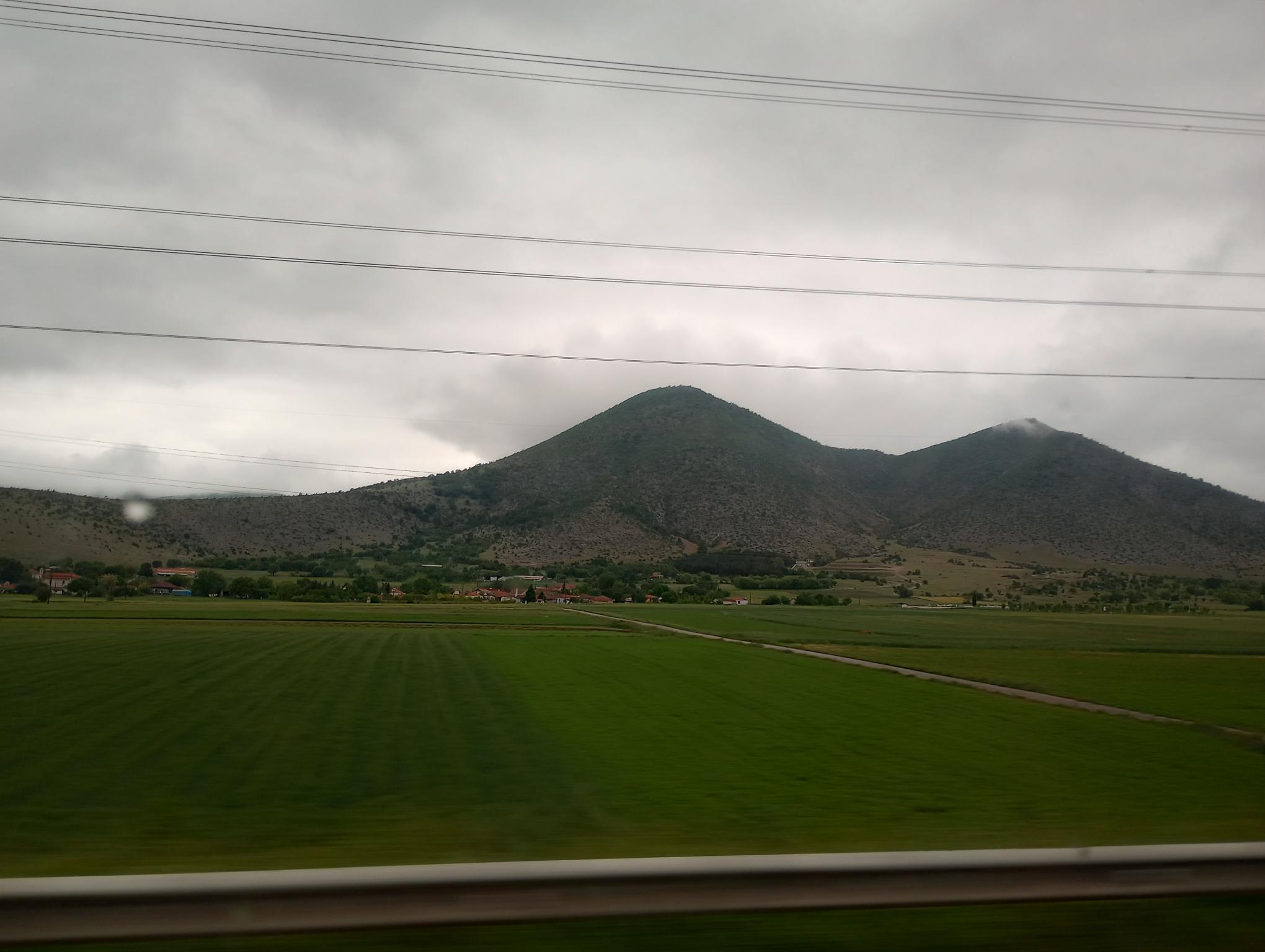
Currently, the country’s agricultural interest group system of cooperatives is struggling. “According to the latest update of the National Register of Agricultural Cooperatives in 2023, there are 1,056 collective entities listed – perhaps more than any other European Union member-state – but they are estimated to produce the lowest value per cooperative,” writes Dimitra Manifava (2024). “Not to mention their outstanding debts, which amounted to around 2.5 billion euros a few years ago. For example, according to the latest data available from Eurostat (referring to the year 2020), only 0.7% of farm owners in Greece had a full agricultural education – in the sense that after compulsory schooling they attended a training program of at least two years and studied a subject related to the primary sector at a higher level. This is the lowest percentage in the EU, with Greece coming at a par with Romania.”
Comparative politics professors identified “new social movements” to describe the era beyond World War II, for what they call modernism, based upon traditional economics and “kitchen table issues,” due to voter concerns of the time frame after The Great Depression and World War II, where shortages were of paramount concern. Such motiving issues persisted throughout the 1950s and into the early 1960s. But a new generation of voters born after the 1930s and 1940s, did not know such trying economic times. Raised in the era of post-WWII prosperity, such voters became more obsessed with non-economic issues, like environmentalism, feminism, religious concerns, etc. Most scholars identify this era of “post-modern” to emerge in the late 1960s, 1970s and beyond, the very time frame where the military regime was forced from power.
In writing about the new social movements of the post-modern era, Marilena Simitis (2002) contends “[T]he Greek case studies represent significant variations in regard to the ‘ideal type’ of new social movements as depicted in the literature. These differences originate to a certain degree from Greek new social movements’ different cultural and political environment. The Greek social movements had to face a strong statocratic and partocratic society, where there was lack of an autonomous social movement sector. This led to the formation of semi-autonomous, party-affiliated social movement organisations. Moreover, the Greek political culture has been rooted on two different geopolitical visions. The one has pointed to a more traditionally oriented, inward looking political orientation hostile to Western values and the institutional arrangements of modernity. The other has been a modernising, outward looking orientation, adopting Western institutions and values.”
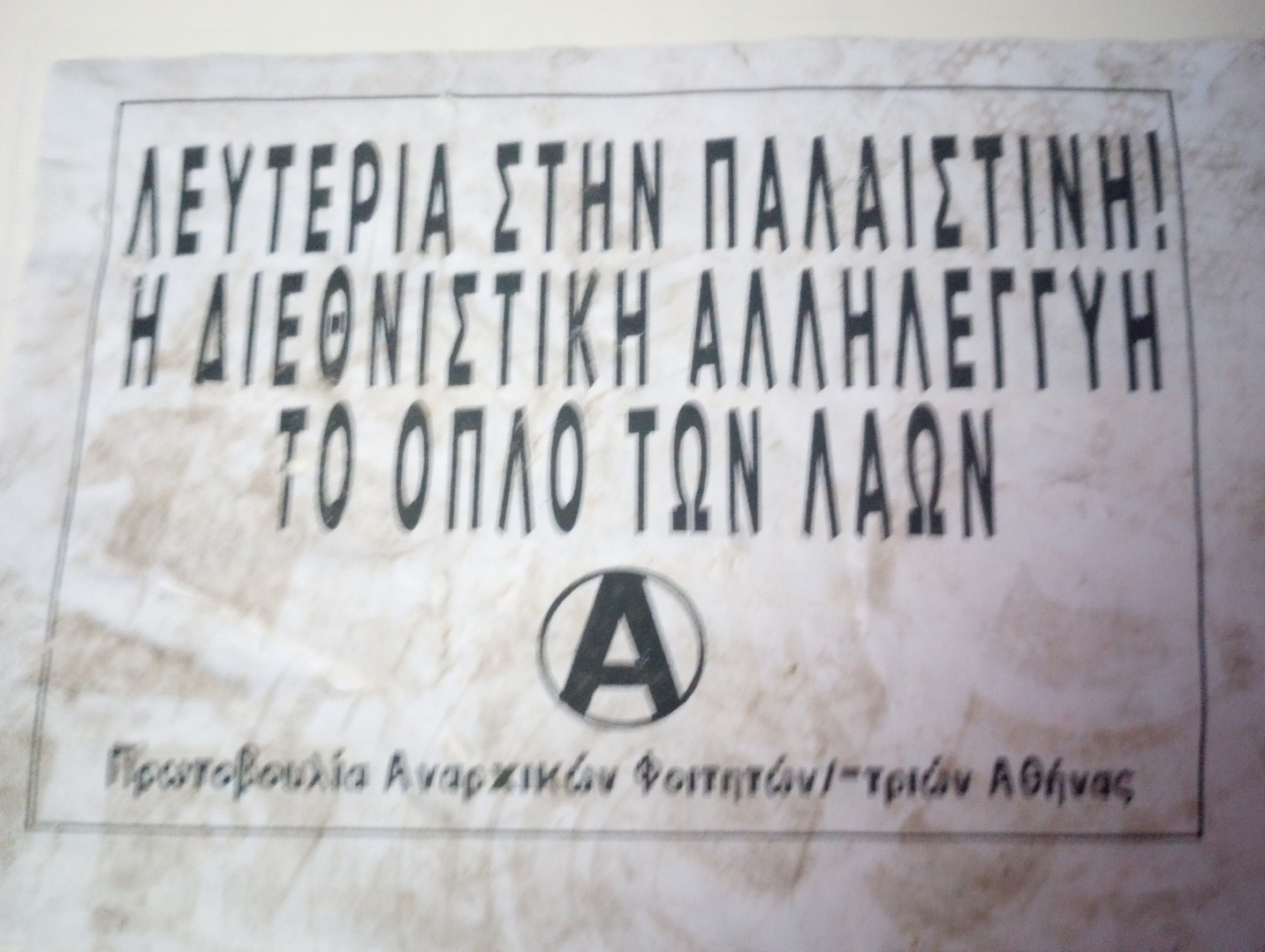
Indeed, with the economic collapse of the late 2000s, along with the bailout battles, it seems that modernism of old has returned to Greek politics. Of Greece and new social movements, Themelis (2015) penned this: “In any case, disappointment with politics, brutal austerity and a dysfunctional democracy do not mean lack of hope. By contrast the social movements that have been emerging and solidifying across Greece, the experimentation with new and old forms of politics, such as the squares movement and the rise of Syriza in national and international prominence, these are serious reasons to be optimistic.”
Battles over economics were now given an international dimension, as Greeks disagreed over whether to accept international bailouts. The spread of immigrants to the shores of Greece and its islands created a new social movement that added a new front: support of helping these refugees or oppose their entrance on nationalist grounds.
Themelis (2015) adds “The characteristics of the class struggle will be more accentuated the longer the crisis endures and the further it deepens. There are strong class forces that will eventually seek to reconcile the material with the symbolic fields….The plethora of social movements in this small part of Europe are signalling that, at least for now, a new form of politics, which is more imaginative, daring and democratic, is being created. If this politics is to lead to much-needed victories in the material and the symbolic fields, it will have to fight on the terrain of class struggle. This is where hope is to be found. But this kind of hope is part of the long process of liberation from an exploitative system that urgently needs replacing and not merely re-decorating.”
4.3: Electoral Systems
Who gets to vote? According to the Hellenic Parliament (n.d.), the rules show “The electorate consists of all Greek citizens who have the right to vote. This right is granted to individuals who are at least 18 years of age, or shall turn 18 on the year of the election, have the capacity for legal act and are not the subject of an irrevocable criminal conviction for felonies listed under article 51 par. 3 of the Constitution. Eligible electors must be registered in the electoral roll to exercise their voting right.” The rules also state that immigrants legally residing in Greece may vote in European Parliament elections (if a member of another EU state) and municipal elections, under certain circumstances.
The Greek Constitution also provides several measures to ensure a more direct form of democracy, according to the Hellenic Parliament (n.d.). This varies from the principle that protects voters from indiscriminate exclusion, a 1 citizen 1 vote principle, secrecy, and compulsory participation. At one point, there were sanctions for not voting, though many of these more severe punishments have been removed in the last two decades. Moreover, the rules for absentee ballots have also changed, allowing more flexibility. The Greek Constitution also rejects the principle of indirect voting, whereby some unelected “electors” cast the real ballot, or legislators at the local level picking the upper chamber of the national legislature, as you see in other countries.
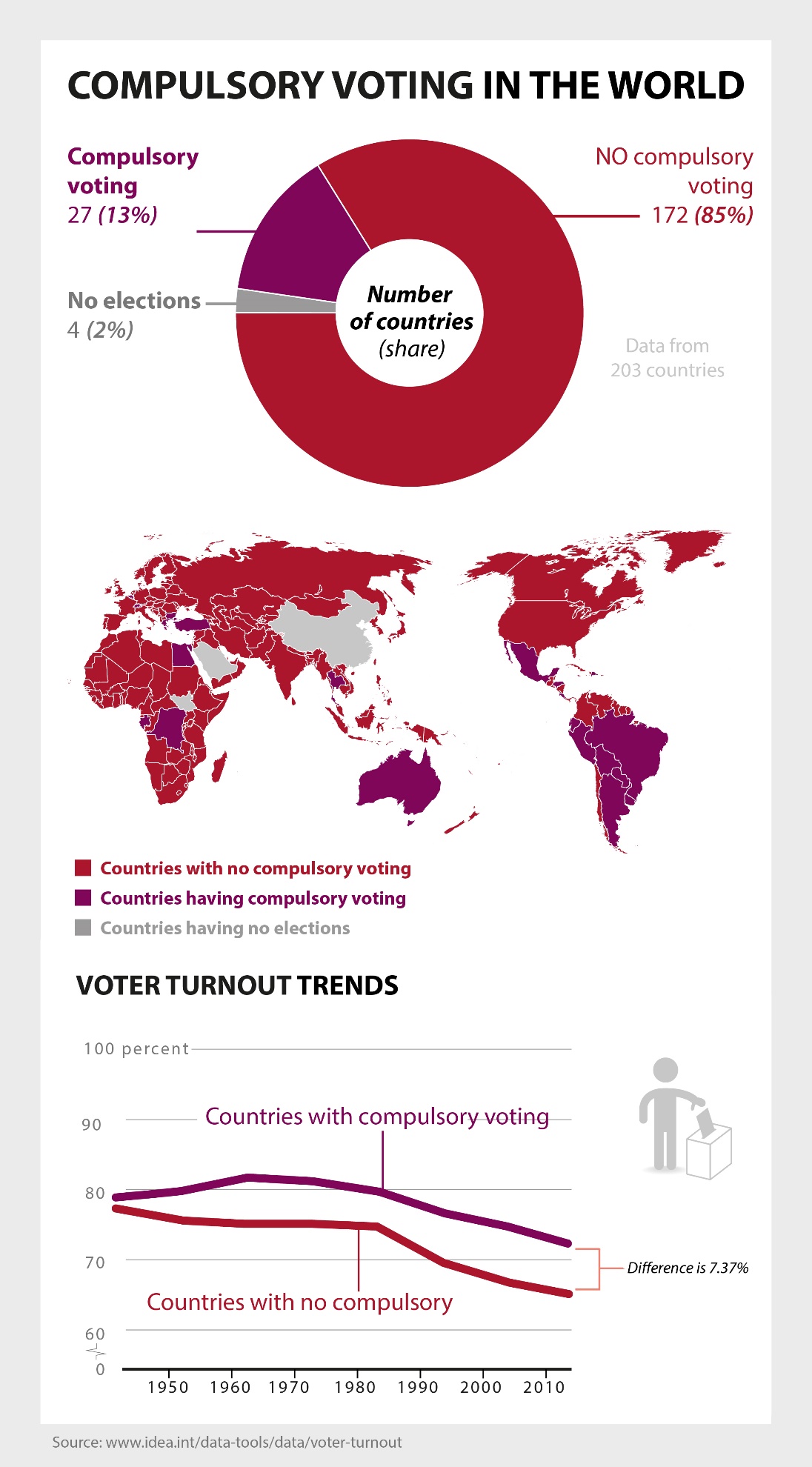
On the website for the Hellenic Parliament (n.d.), it outlines the power of political rights in Greece.
“Α) Universal ballot- according to this principle, only citizens that do not fulfill the minimum requirements provided by the Constitution may be excluded from the electorate. The ordinary lawmaker may not provide additional reasons to deprive an individual of the right to vote;
Β) Equal ballot- a principle of dual significance, i.e. i) one citizen -one vote and ii) all votes are legally equal;
C) Direct ballot- according to this principle, there should be nothing standing between the voter and the outcome of the electoral process. In other words, it is not possible for voters to choose electors to elect MPs;
D) Secret ballot- a principle to ensure that the intent of the voter shall not be made known to others;
Ε) Compulsory ballot- according to this principle the exercise of the voting right is compulsory. Let it be noted nonetheless that the Constitutional revision of 2001 removed a clause by virtue of which penal sanctions could possibly have been imposed by law on constituents who failed to take part in the electoral process;
F) Simultaneous conduct of elections throughout Greece- Revised article 51 par. 4 of the Constitution refers to possible exceptions to this rule in case constituents (voters) are abroad, as long as all votes are counted simultaneously and the outcome of the electoral process is publicized at the same time everywhere;
G) The principle of exercising one’s voting right in person, making the physical presence of a voter imperative, currently applies to voters who are on Greek territory. Revised article 51 par. 4 of the Constitution offers Greek voters abroad an option to exercise their right to vote in absentia ‘through postal and/or other appropriate means’.”
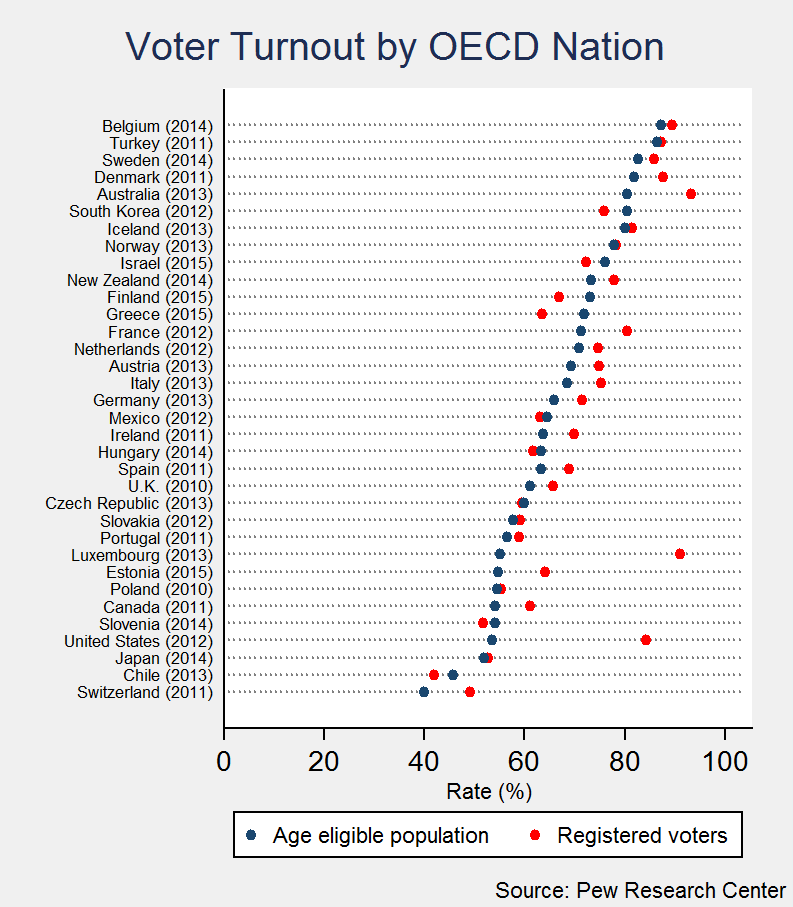
The Hellenic Parliament (n.d.) also documents the fascinating evolution of elections in Greece since the country’s independence from the Ottoman Empire in the 1830s. Over time, the country has adopted some of the classic electoral systems from comparative politics: the majoritarian system as well as the proportional representation system.
[T]here are basically two electoral systems: the majoritarian system (which designates the candidate or political group (i.e. the party) who got the majority of the votes cast in one constituency) and the proportional representation system (which allocates seats per constituency proportionally to the votes each candidate or party received),” the Hellenic Parliament (n.d.) illustrates. “Both electoral systems have actually been used in Greece. In the period between 1844 and 1923 general elections were held on a majority election system (there were actually no ballot papers or lists but rather ballot boxes divided in two sections, one black for ‘nays’ and one white for ‘yeahs’, and voters cast little marbles made of iron on either side.) Both systems were also used in rotation from 1926 through 1956 when the proportional representation system was opted for, in its various forms.”
500 BC – Pebble Voting
https://dataphys.org/list/visualizing-opinions-with-pebbles/
Sometimes, the system can seem a little complicated, not unlike some of the humorous complex electoral systems spoofed by characters in films from the comedic British group Monty Python. As the Hellenic Parliament (n.d.) posts on its site “Let it be noted that by virtue of art. 54 par. 1 of the revised Constitution, the electoral system is determined by law, i.e. a statute which applies only once the next elections have been held, unless provision is made for an immediate enforcement of the electoral law just as long as a 2/3 parliament majority adopts it.” But what it means is that it takes a supermajority of parliament to agree to a significant change in how elections are conducted in Greece. Recently, this came into being as Syriza sought to institute a more proportional representation change that they hoped would augment their numbers.
For the most recent elections in 2023, Reuters documents how the election system works. “The repeat election will be held under a semi-proportional representation, or reinforced proportionality, with a sliding scale seat bonus.” Reuters (2023) explains. “Parties need to secure at least 3% of the vote to enter parliament for a four-year term. Under the new system, the winning party is awarded a bonus of 20 to 50 seats. It receives 20 seats outright if it gets at least 25% of the vote, and can get up to 50 seats if it gets about 40% of the vote.”
Like many European countries, Greece has a minimum threshold for parties to acquire office, to weed out more extreme parties more intent on overthrowing the system. Without such a minimum, the once-small Nazi Party could cause havoc in Germany in its early stages. Also, like many EU countries, Greece also has a built-in system to reward winning parties, bonuses that make it easier to reach the threshold for a party to actually govern. When no majority is reached, coalitions must be formed, with the party receiving the largest plurality or share of the vote, getting the first opportunity to build such a coalition. If the 50%+1 threshold is not reached, a minority government typically made of the largest vote-getter runs a caretaker system until new elections can be called.
In conclusion, by studying both the history as well as the modern forms of Greek government, one can see that the country has adopted examples of authoritarianism as well as democracy, in addition to a myriad of forms of democracy. Despite declines in voting participation, the broad range of societal groups and parties reflects a dynamism that shows perhaps the only constancy in Greek politics is change.
Section 5: Greek Formal Political Institutions
For a country credited with inventing the term, and the practice, of democracy, Greece has a lot to celebrate. Emerging from the struggles of the economic collapse, Greece was ranked one of the most democratic countries in the world, earning the rare distinction of a “full democracy” by The Economist. But despite the strong ranking, the measure of “functioning of government” has the country ranked behind many full democracies from Western Europe. In this chapter, we’ll examine fully the country’s institutions, what works, and what could work better.
5.1 Democracy
In The Greek City Times, Bill Kouras (2024) writes In the category of ‘full democracy,’ Greece has been upgraded by the ‘Economist’ magazine in its annual report, ‘Democracy Index,’ for 2023. This marks the first time since 2008 that Greece has achieved this ranking, placing the country one category above the United States and member states of the European Union, such as Italy, Belgium, and Portugal, which are considered ‘flawed democracies.’”
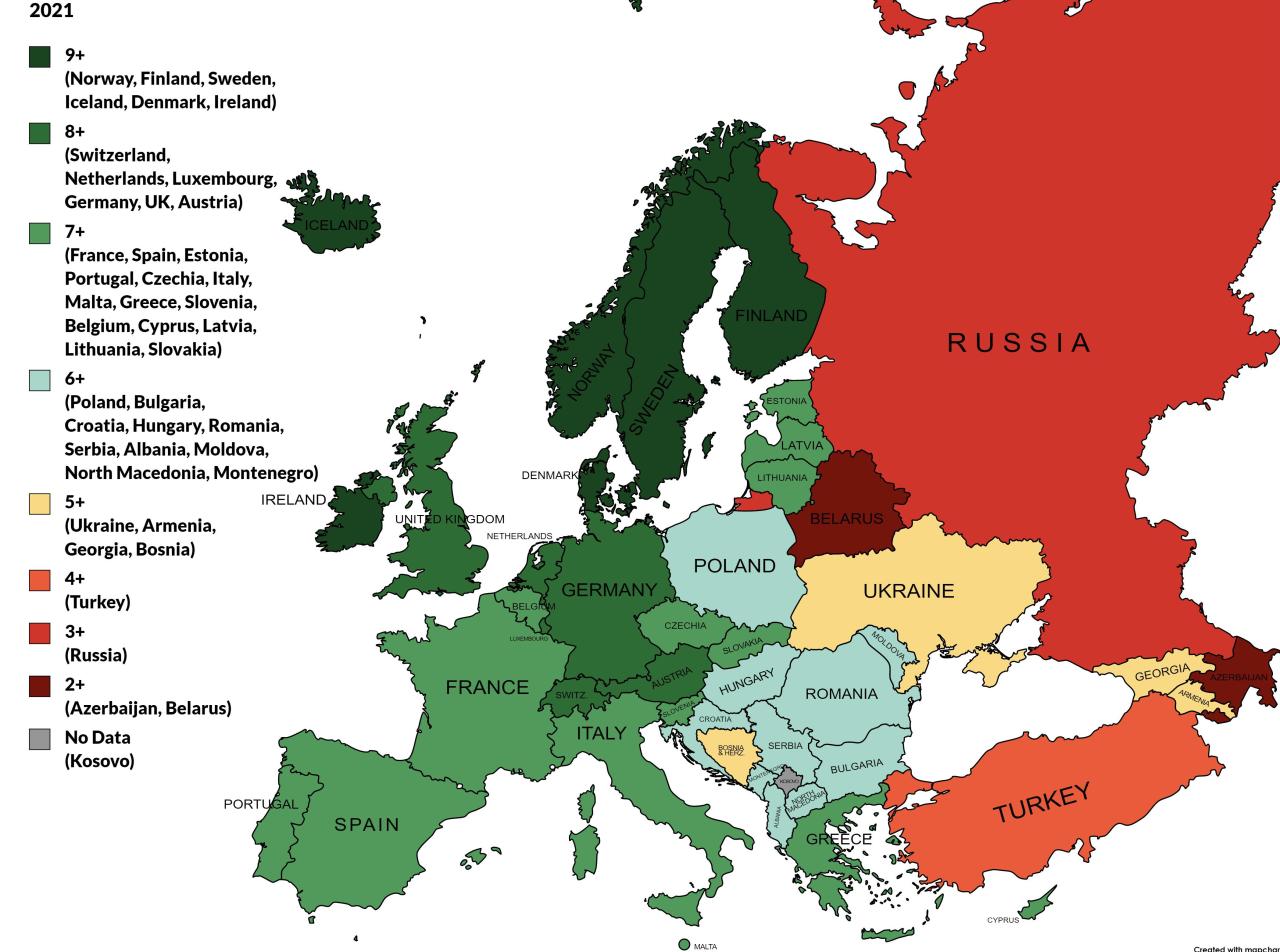
That is quite an accomplishment for Greece, one of 167 countries examined, one of the eight percent considered a “full democracy.” Additionally, nearly every continent experienced cases of setbacks when it came to institutions enabling people to rule. But The Economist lauded Greece making “postal voting” possible (Kouras 2024). This backs up what The Freedom House reports.
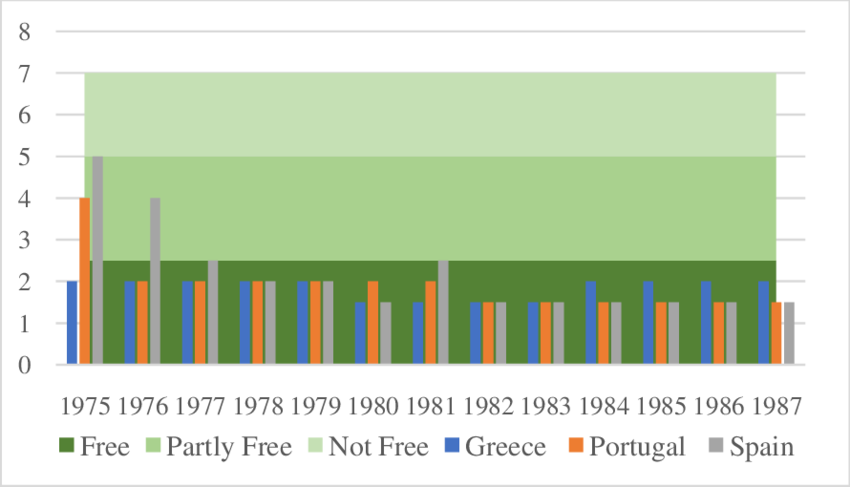
A closer look at that Economist ranking shows that Greece scored well on “electoral process and pluralism” as well as political culture and civil liberties. But when it came to “functioning of government,’’ Greece’s score left room for improvement, as the country ranked at or behind other European countries considered “flawed democracy” such as Belgium, Malta, Italy, and Portugal (Kouras 2024).
There’s a battle among scholars of Ancient Greece about democracy, not about the meaning of the word, but whether it was a positive force or a pejorative term to mean “mob rule,” by elites stung by being outvoted or having to deal with unruly subjects. Long before Aristotle wrote, there were already plenty of polities from Southern Europe to the modern Middle East, some with a form of democracy, and others of a more authoritarian character, not unlike the Greek military rule of the 1960s and 1970s.
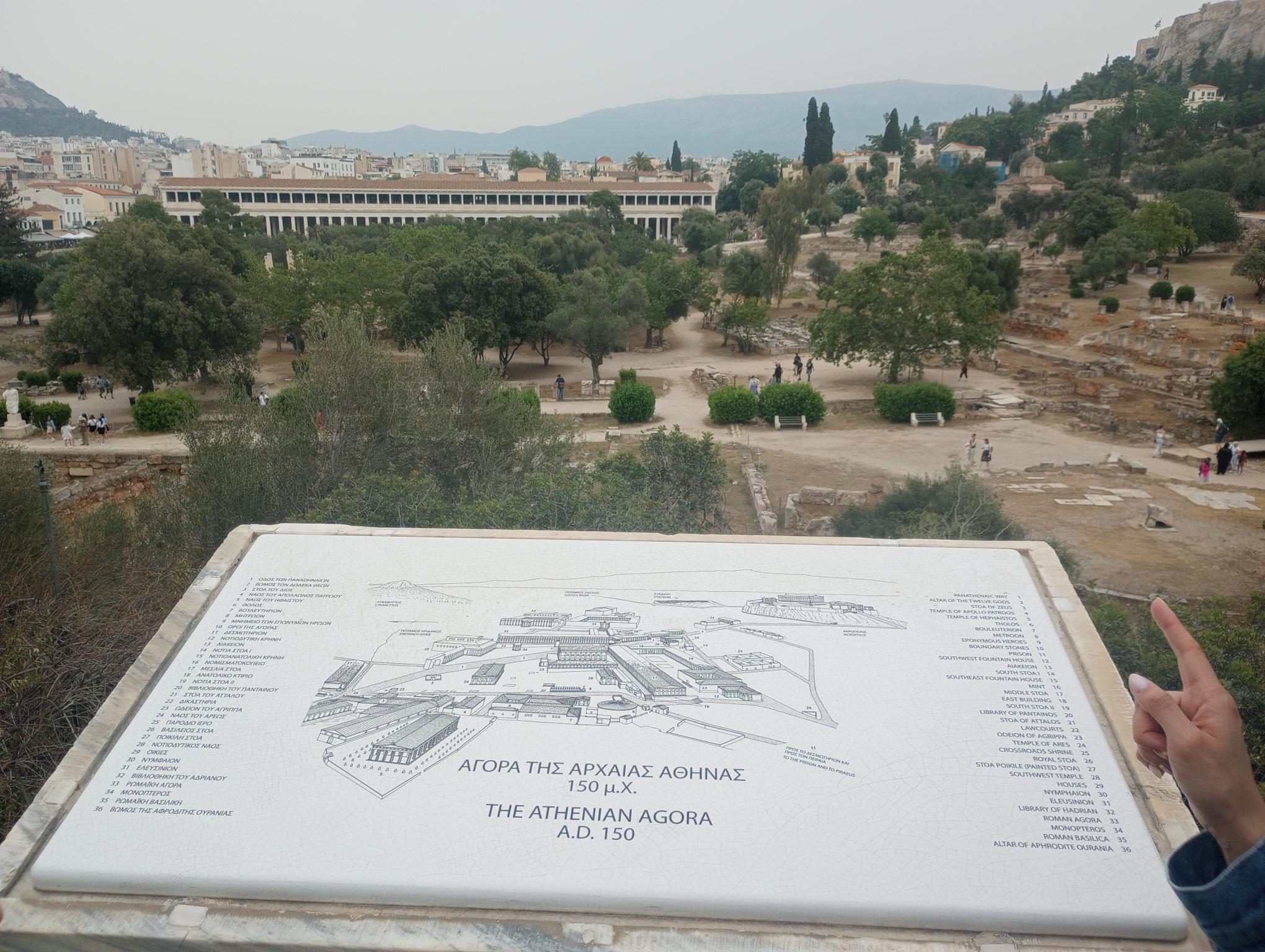
According to the BBC “The origin of the Athenian democracy of the fifth and fourth centuries can be traced back to Solon, who flourished in the years around 600 BC. Solon was a poet and a wise statesman but not – contrary to later myth – a democrat. He did not believe in people-power as such. But it was Solon’s constitutional reform package that laid the basis on which democracy could be pioneered almost 100 years later by a progressive aristocrat called Cleisthenes (Cartledge 2011).”
Professor Paul Cartledge (2011) adds “Cleisthenes was the son of an Athenian, but the grandson and namesake of a foreign Greek tyrant, the ruler of Sicyon in the Peloponnese. For a time he was also the brother-in-law of the Athenian tyrant, Peisistratus, who seized power three times before finally establishing a stable and apparently benevolent dictatorship. It was against the increasingly harsh rule of Peisistratus’s eldest son that Cleisthenes championed a radical political reform movement which in 508/7 ushered in the Athenian democratic constitution.”
“This demokratia, as it became known, was a direct democracy that gave political power to free male Athenian citizens rather than a ruling aristocratic class or dictator, which had largely been the norm in Athens for several hundred years before,” Becky Little (2024) with the History Channel posts. “Athens’ demokratia….lasted until 322 B.C.” She also notes some of the scholarly debate about whether it was the first of its kind.
As the BBC reports “Finally, in 322, the kingdom of Macedon which had risen under Philip and his son Alexander the Great to become the suzerain of all Aegean Greece terminated one of the most successful experiments ever in citizen self-government. Democracy continued elsewhere in the Greek world to a limited extent – until the Romans extinguished it for good (Cartledge 2011).”
The question is whether modern Greek democracy can survive. The Economist gives the current system high marks, but economic, immigration, and environmental challenges threaten the regime. Parties on the far left and hard right want to take the country in a different direction. Cynicism seems to be seeping in, given the lower political participation in recent years (a decline of at least ten percentage points (IFES 2024). Greece also had several cases where a dictatorship and a military takeover overthrew the cradle of democracy. The answer to the country’s survival comes from the institutional capacity of the Greek political system.

5.2 Legislative System
According to The Hellenic Parliament (2019), “The Parliament is the supreme democratic institution that represents the citizens through an elected body of Members of Parliament (MPs). In the current composition the Parliament consists of 300 MPs.”
IFES (2024) provides the results of the 2023 election. Currently, the right-of-center party New Democracy has 146 seats or 40.79% of the vote, while the leftist party Syriza has 20.07% of the vote, and 71 seats. PASOK (Movement for Change), the left-of-center party has 41 seats, because the party received 11.46% of the vote. The Communist Party of Greece (KKE) netted 26 seats by virtue of getting 7.23% of the vote. Finally, there’s the Greek Solution (LE) which has 16 seats, and a vote share of 4.45%. New Democracy expanded their lead into the second round, with enough for a majority in parliament.
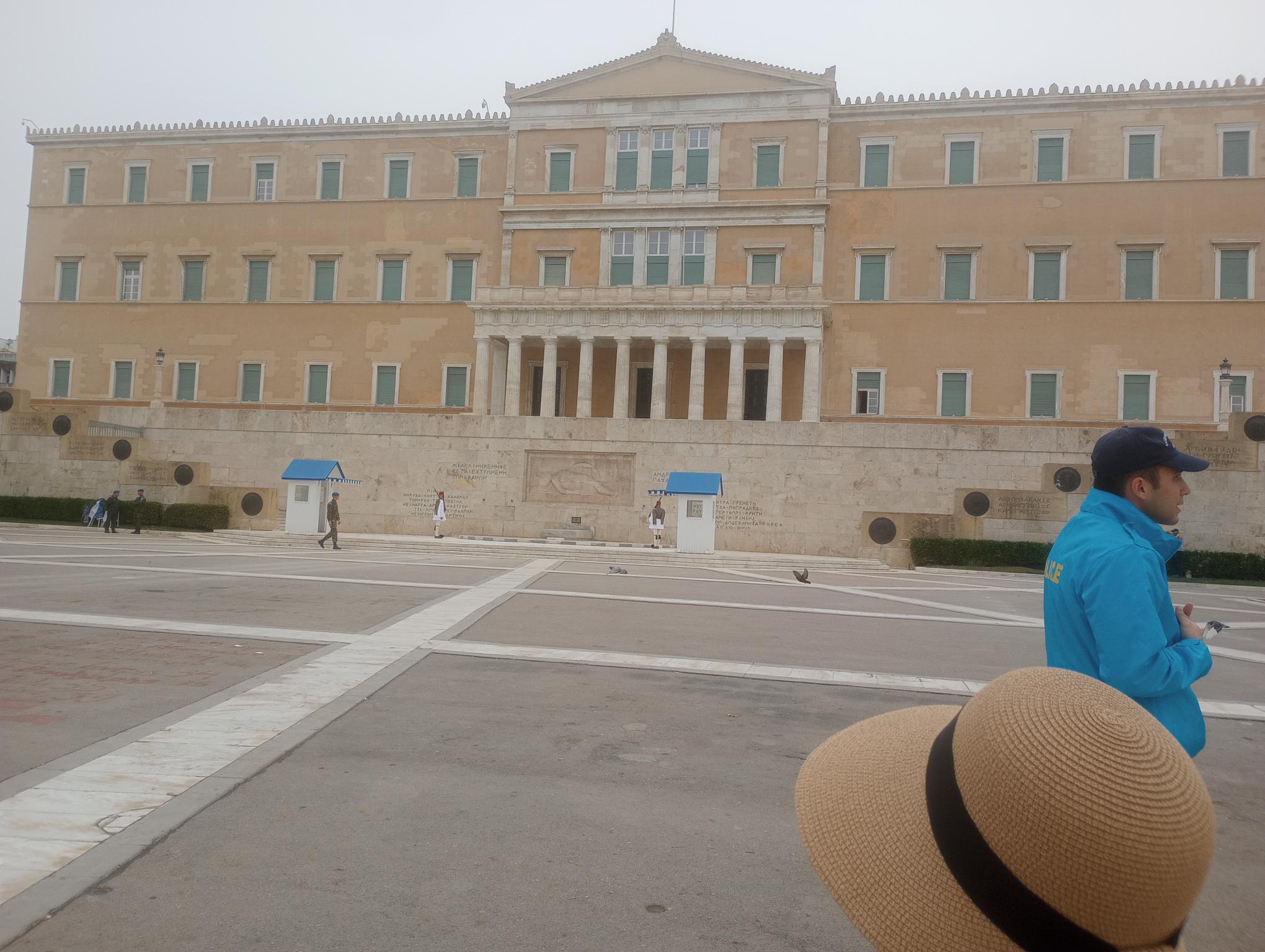
Sometimes, a measure with widespread popular vote is like to pass with very little opposition. For example, the Hellenic Parliament passed a budget that increased defense spending. This is not a surprise for the conservative New Democracy party, but for the parties of the left, it is a surprise. Yet surveys showed Greeks concerned about their security situation, especially in the Aegean Sea, perceiving a threat from a more bellicose Turkey (Michalopoulos 2024).
In other cases, parliaments face a contentious vote, requiring every vote just to pass. In March of 2024, the New Democracy party introduced a bill that would expand access by foreign private universities to enter the Greek education market, claiming that many Greek students leave the country to study abroad (Reuters 2024). Parties of the left strongly opposed the measure, claiming that such universities would drain the public colleges of students and revenue. But despite student protests, the measure passed on a vote along party lines, 159-141 (Reuters 2024).
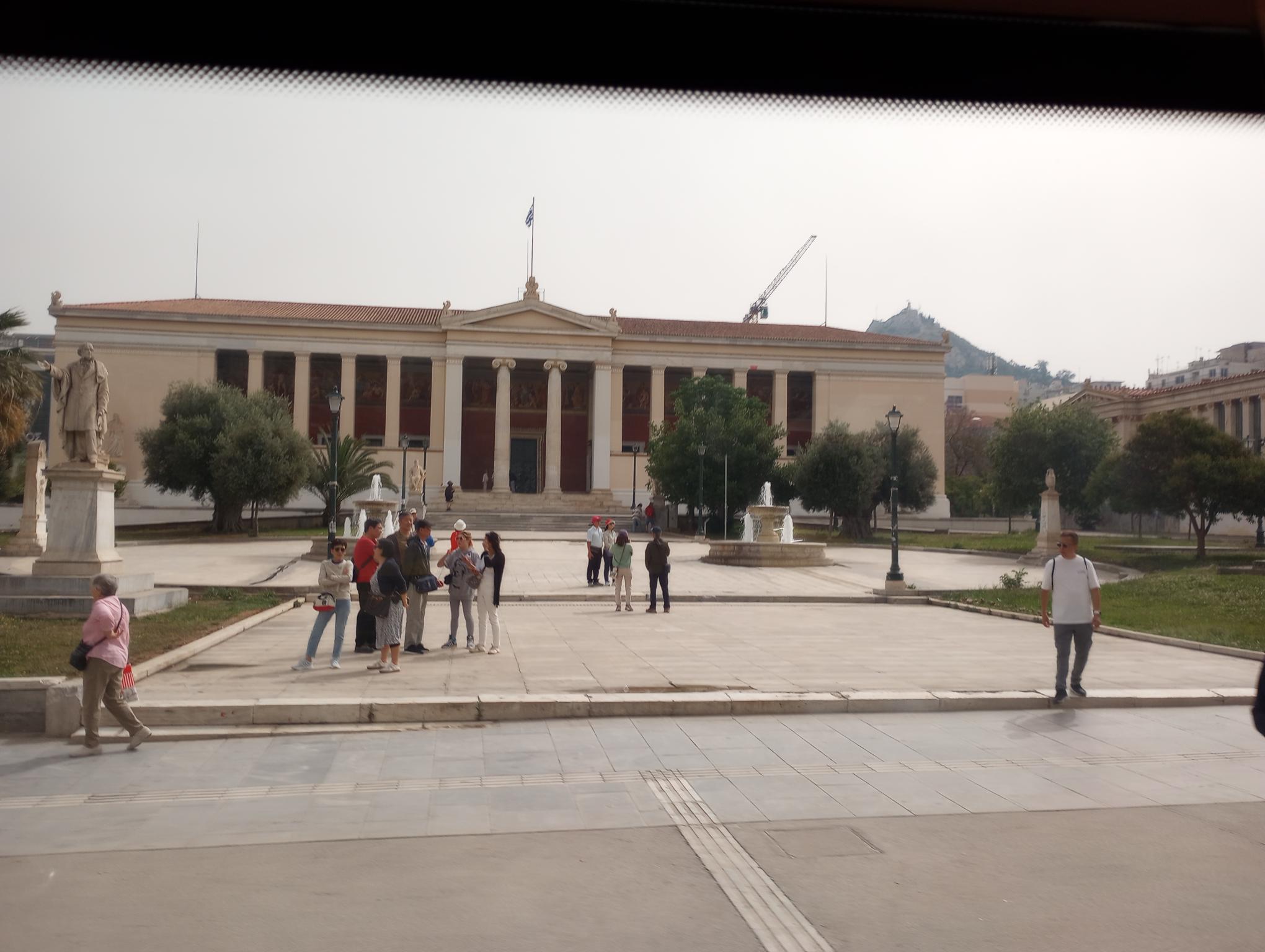
5.3 Executive System
When determining who is in charge of the executive branch, it is important to note that there are two offices. One is the President of Greece, currently Ekaterini Sakellaropoulou. She’s the Chief of State, indirectly voted upon by the Hellenic Parliament. Greek Presidents can serve two five-year terms, and Sakellaropoulou has held office since 2020. A chief of state represents the country on the international stage, and officially confers the head of government position, or prime minister. Having a relatively non-partisan person in this position keeps the job from conferring too many benefits on a single party figure, an advantage that American and French Presidents get, as well as Turkey’s new presidential system.
The Greek Prime Minister, the head of government, leads parliament on getting legislation passed. He or she is voted on by a majority of parliament. Currently, the Greek Prime Minister is Kyriakos Mitsotakis of the New Democracy party. Though the Greek President officially declares who the P.M. will be, that office is chosen by a majority of the Hellenic Parliament. If no party has a majority, a caretaker government is appointed until new elections can be called to see if the voters are ready to pick a new majority. As with other parliamentary systems, parties can also form coalitions to provide that majority. It usually involves a distribution of cabinet offices, the ones that run the agencies in the executive branch.
After the initial May 2023 election, no party received a majority (Liakos 2023). The three parties with the most votes (New Democracy, Syriza and PASOK) could not agree upon a coalition, so President Katerina Sakellaropoulou appointed a caretaker government to be led by Judge Ionnis Sarmas, which would last until new elections could be held to see if the voters would pick a party with a majority. Those elections were held in late June (Liakos 2023).
In Greece, like other parliamentary systems, the legislature can remove the prime minister with a vote of no confidence, if economic times are hard, or if a scandal emerges that would discredit the government. Certainly, the opposition has every incentive to see the government fall. Members of parliament who are part of the majority, or the majority party, have a tough decision to make: should they get rid of the prime minister and the cabinet members, knowing that they or their party could lose their majority, or their jobs, if they are in the ministry? On the other hand, without a change, the whole party could go down the drain in the next election, so some political calculations need to be made.

In March of 2024, a rare no-confidence vote was called for Prime Minister Mitsotakis regime, after a deadly February 2023 crash that killed nearly 60 Greeks, many of whom were students on Spring Break (Associated Press 2024). Their passenger train was accidentally put on the same track as a freight train, which caused the collision. Normally, a train crash wouldn’t be enough to topple a government, but there were rumors of a government coverup into the train investigation, one that a number of Greeks believe happened, and several parties of the left called for the motion (Associated Press 2024). However, the Hellenic Parliament voted 159-141 against removing the Prime Minister from the New Democracy party (Associated Press 2024).
Most parliamentary systems allow legislators to occupy the leadership of agencies in the executive branch bureaucracy. For the Greek governing system, there are 22 such agencies, a minister for each ministry. There are also three alternate ministers for three key agencies, and 36 deputy ministers (Newsroom 2024). In Greece, those are the Ministry of Economy and Finance, Ministry of Foreign Affairs, the Ministry of National Defense, Ministry of Interior, the Ministry of Education, Religious Affairs and Sports, the Ministry of Health, the Ministry of Infrastructure and Transportation, the Ministry of Environment and Energy, the Ministry Development, the Ministry of Labor and Social Affairs, the Ministry of Citizen Protection, Ministry of Justice, Ministry of Culture, the Ministry of Asylum and Migration, Ministry of Social Cohesion and Family, Ministry of Rural Development and Food, the Ministry of Maritime Affairs and Insular Policy, the Ministry of Tourism, the Ministry of Digital Governance, Ministry of Climate Crisis and Civil Protection, as well as positions like two Ministers of State, a pair of Deputy Ministers to the Prime Minister, and a government spokesperson (Newsroom 2024).
Each of these agencies is charged with administering the laws passed by parliament, as well as imposing regulations upon the private sector. The agencies must also answer to parliament if there are investigations into government performance.
5.4 Judiciary
Parliament, as well as the Ministry of Justice, conduct investigations. But most subjects of criminal acts and civil liability between private actors, or a private actor and the state), are handled by the judicial branch.
In Greece, the court system is structured this way: “The constitutionally established Judicial system of Greece consists of two jurisdictions, the administrative and the civil/criminal, which are in turn organized in three instances: the courts of first instance (lower courts), the courts of appeals (higher, appellate courts) and the Supreme Courts (Ministry of Foreign Affairs 2024).”
Greece’s Ministry of Foreign Affairs (2024) further explains how this system works. “The Council of State (Symvoulio tis Epikrateias), which is the Supreme Administrative Court of Greece, the Supreme Civil and Criminal Court (Areios Pagos), and the Court of Audit (Elegktiko Synedrio), which has jurisdiction on the audit of the expenditures of the State, local government agencies and other legal entities, are the country’s highest courts. Greek judges belong to one of these two jurisdictions; thus, an administrative judge is not entitled to judge a penal or civil case, while a civil judge is not entitled to judge an administrative case.”
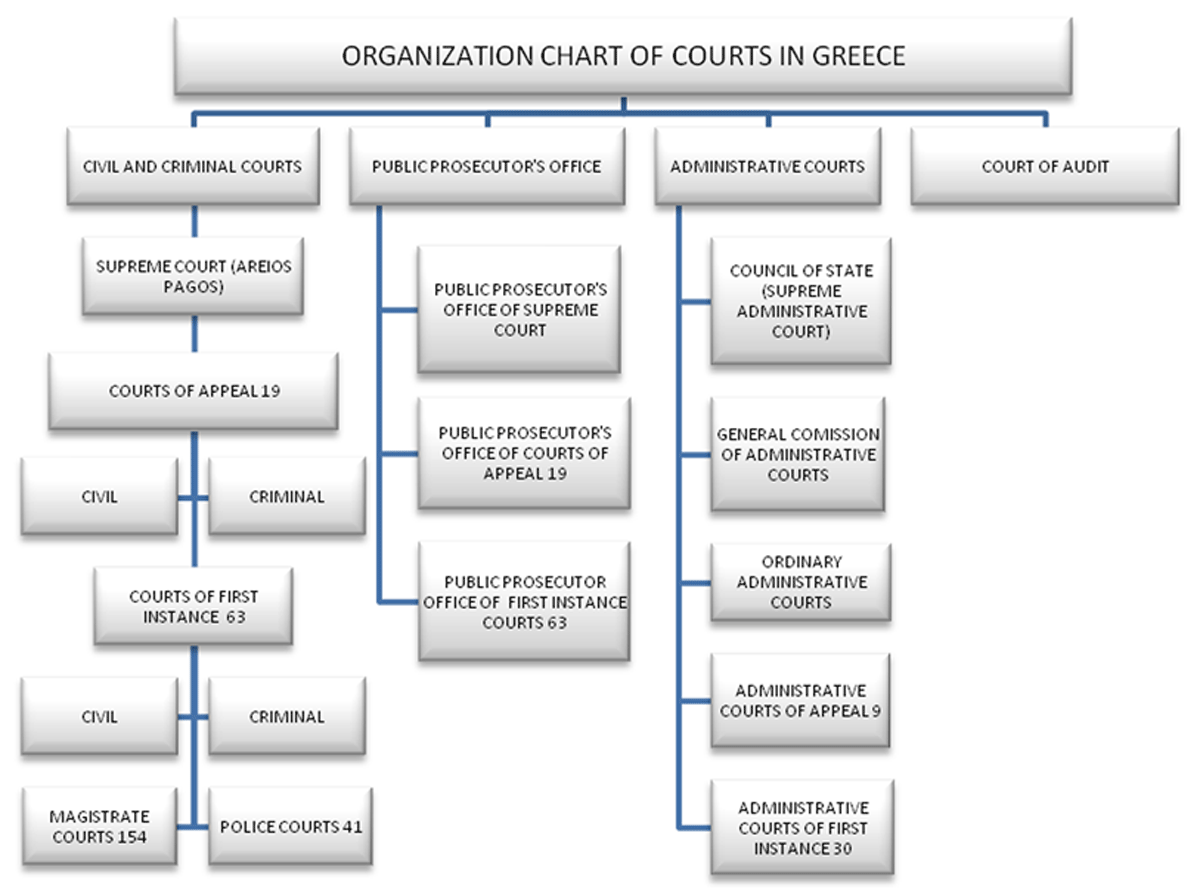
The Greek court system made international news during the trial of nine Egyptians when their fishing ship, loaded with hundreds of migrants, sank in the Mediterranean Sea (Beake and Kallergis 2024). The Egyptians were charged with human smuggling and could have spent the rest of their lives in prison (Beake and Kallergis 2024). Several survivors blamed the Greek Coast Guard for causing the accident, while the Coast Guard blamed the seaworthiness of the vessel, and evidence that the ship was overcrowded (Beake and Kallergis 2024). However, the Greek Court of the Port City of Kalamata ruled that because the ship sank in international waters, the judges lacked jurisdiction to hear the case (Beake and Kallergis 2024). Though the ruling was anticlimactic, it shows the power and limits of the Greek court system.
Section 6: Greece’s Political Economy
Imagine having layoffs at your company, making you worried that you’re going to lose your job. You look into your mailbox, only to find out you’ve maxed out your credit card limit. That’s what Greece experienced in 2009. The country spent a decade and a half trying to climb out of that hole, while juggling multiple crises from an explosion of migration and environmental struggles.
6.1 Greece’s Recent Political Economy
As democracy returned to Greece, so did the country’s commitment to Europeanization. The country joined the European Economic Community (EEC) in 1981, which facilitated international trade, as it is often referred to as “The Common Market” (Council on Foreign Relations 2024), The country entered the European Union in 1992 with other EEC members (PIIE 2020). As the single currency was adopted in 1999, Greece joined it two years later (Council on Foreign Relations 2024).
After the Great Recession of 2007-2008 with the negative growth and unemployment that struck the global economy, Greece’s new PASOK government of George Papandreou came into office, only to learn that the debt was so much higher than previously thought. It turns out that the Greek debt was nearly 12.5 percent of the country’s Gross Domestic Product (Sullivan 2018). That figure would be later revised even higher (PIIE 2020), a consequence of rampant spending and hosting the 2004 Olympic Games, one that some feel failed to provide a decent return on the country’s cost of putting on the event. There are also charges of rampant corruption in the Greek system, as seen in this graphic.
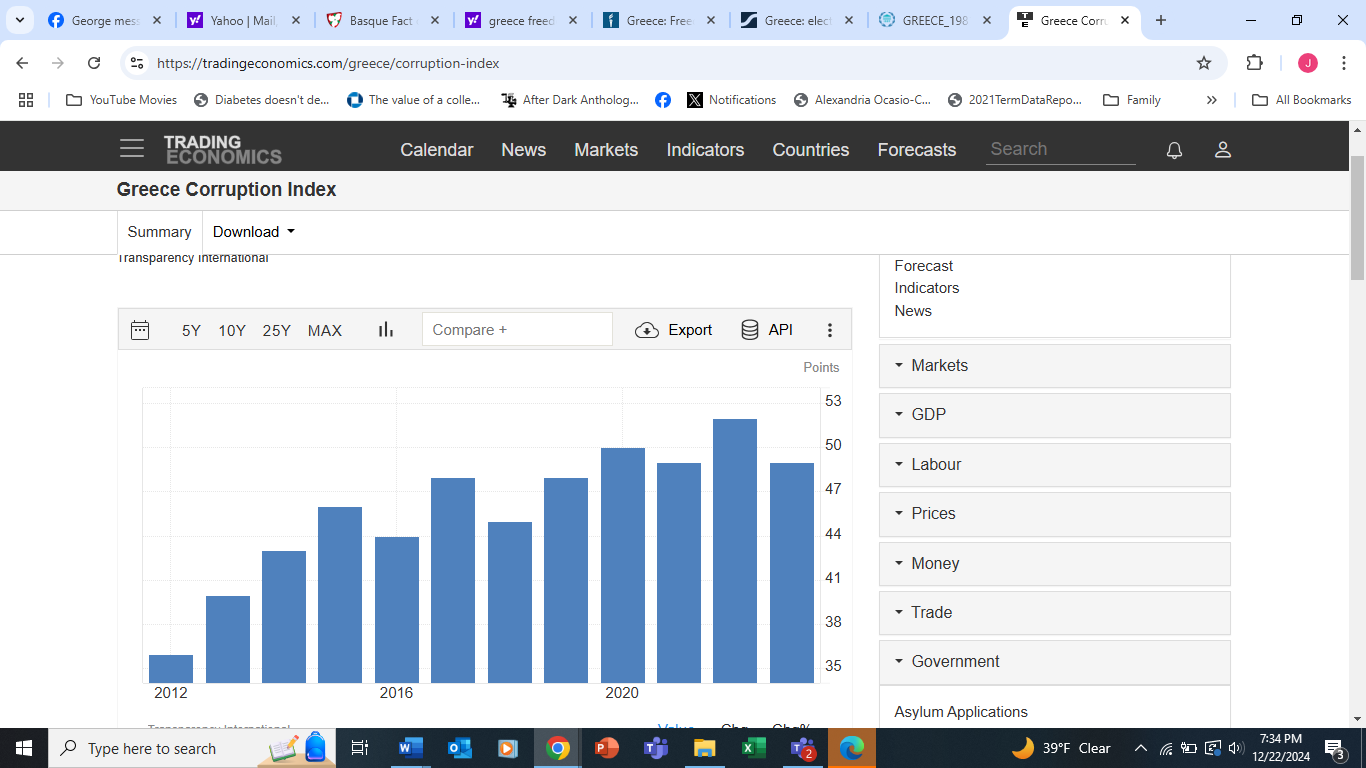
The economy collapsed and investors downgraded Greek bonds so badly that their value became an international joke (Council on Foreign Relations 2024). Prime Minister Papandreou had to seek help from the European Union (EU), the European Central Bank (ECB), and the International Monetary Fund (IMF). Aid came (126 billion) in 2010, but there was a price to pay for it. The Greek government had to submit to huge spending cuts, and increased taxes to pay back the creditors (Sullivan 2018).

Nor was it enough. The following year, Greece’s credit rating fell again, leading Papandreou to resign and a grand coalition (where parties of different ideologies come together in a crisis to form a unity government) accepted a new austerity package, which led to more belt-tightening in 2012 (Sullivan 2018). Two elections took place that year, and the party New Democracy prevailed, while protests across the country increased. A quarter of all Greeks were out of work, wage cuts were common, and there seemed to be no end in sight to the crisis (Sullivan 2018). Cutting Greek debt gave the country a little breathing room, but not much. Extremist parties like the Golden Dawn, a neo-Nazi, sought to capitalize on the chaos (Sullivan 2018). The response was to outlaw the party and arrest its leaders for their actions.
A new left party, Syriza, was chosen by the Greek voters on promises of not accepting more bailouts and austerity. But Greece continued to struggle with their economy and the country missed a key payment, leading banks to close. Though Prime Minister Tsipras called for a referendum to support his opposition to such bailouts, he was forced to accept a third bailout, rescuing the country’s economic situation, but increasing political cynicism in the country (Sullivan 2018). “Facing a run on deposits, the Greek government imposed capital controls and cash withdrawal restrictions. The government also missed a payment to the IMF of €1.5 billion. Had the stalemate continued, Greece would have been forced to introduce its own currency, effectively exiting the euro (PIIE 2020).”

The pandemic also led to a significant sharp slump in economic growth in 2020, but a return to pre-COVID-19 levels occurred by the middle of 2021 (OECD 2024). Though economic growth returned, even surpassing Eurozone averages (OECD 2024), unemployment and debt remained high, despite smaller increases in imbalances. Negative savings rates plague the people of Greece as well. As the OECD (2024) reports, while the inflation rate has climbed down from its post-pandemic height, overall inflation (called “Core Inflation” remains high. The continued presence of small but vocal political parties shows that the economic pain of the last 15 years has not completely abated in Greece.

6.2 Major Trading Partners
Most of Greece’s top trading partners are European, with only two (the United States and Turkey) outside of the European continent. A more diverse array of trading partners from the Middle East and North Africa appear in the 11th-25th ranking range for Greece (Workman 2024).
“Below is a list showcasing 25 of Greece’s top trading partners, countries that imported the most Greek shipments by dollar value during 2023. Shown within parenthesis is each import country’s percentage of total Greek exports.
- Italy: US$6.4 billion (11.6% of total Greek exports)
- Bulgaria: $3.8 billion (6.9%)
- Germany: $3.7 billion (6.7%)
- Cyprus: $3.6 billion (6.5%)
- Spain: $2.24 billion (4.1%)
- United States of America: $2.17 billion (3.9%)
- United Kingdom: $2.09 billion (3.8%)
- Romania: $1.97 billion (3.6%)
- France: $1.94 billion (3.5%)
- Türkiye: $1.94 billion (3.5%)
- Libya: $1.7 billion (3.1%)
- Lebanon: $1.54 billion (2.8%)
- North Macedonia: $1.49 billion (2.7%)
- Netherlands: $1.4 billion (2.5%)
- Gibraltar: $1.2 billion (2.3%)
- Poland: $1 billion (1.8%)
- Ukraine: $897.8 million (1.6%)
- Belgium: $799.1 million (1.5%
- Albania: $771.7 million (1.4%))
- Israel: $708.1 million (1.3%)
- South Korea: $645.3 million (1.2%)
- Serbia: $564.8 million (1%)
- Austria: $555.8 million (1%)
- Egypt: $547.5 million (1%)
- Hungary: $516.4 million (0.9%)
These results are backed by O’Neill (2024), who adds Statista data to his numbers.
6.3 Monetary Issues.
From their independence in the 1830s until 2001, Greece used the drachma. That also happened to be the name for the coin of the Greek civilization in B.C. days. But in 2001, as a European Union member, Greece adopted the euro (Hayes 2024).
But that’s also been a challenge for Greece. In order to be part of the European Union, the country needs to keep its fiscal house in order. When there are multiple currencies in an economic zone, countries like those in Southern European, actually benefitted from having a cheaper currently due to some degree of fiscal instability. On a European trip with my family, we bought a lot more in Italy than Germany because the lira was cheaper to the dollar than the Deutsche mark. But with the euro, there’s no comparative advantage to having a less expensive currency.
6.4 Imports and Exports
Workman (2024) points out that Greece exported more than $55 billion in product value in 2023, a nearly 50 percent increase compared to pre-pandemic numbers. But it’s still a relatively small country in the world economy, according to Workman (2024). But in bad news for Greece, exports fell by nearly 10 percent, as EU countries and third-world countries were buying fewer of the country’s products (Trading Economics 2024).
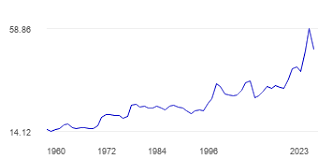
The Observatory of Economic Complexity, or OEC (2024) provides plenty of information about what products Greece exports, and imports. Like many developed countries, Greece imports ($94.5 billion) more than they export ($55.7 billion) because they can afford to purchase more. The country ranks between 50th-60th on most trade indices.
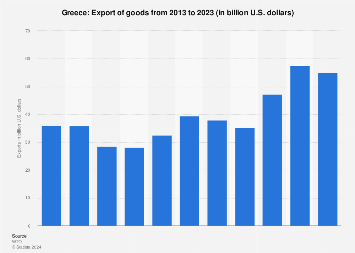
“The top imports of Greece are Crude Petroleum ($13.1B), Petroleum Gas ($8.38B), Refined Petroleum ($6.69B), Packaged Medicaments ($2.57B), and Cars ($2.16B),” The OEC (2024) reports. “The top exports of Greece are Refined Petroleum ($16.4B), Packaged Medicaments ($2.74B), Petroleum Gas ($1.85B), Aluminum Plating ($1.17B), and Pure Olive Oil ($863M).”
Most trade reports focus on products, overlooking services. Here, Greece, like other first world countries, has a net surplus in this category. “The top services exported by Greece in 2020 were Sea transport ($14.3B), Personal travel ($4.57B), Miscellaneous business, professional, and technical services ($1.92B), Air transport ($887M), and Other transport ($561M),” the OEC (2024) reports. “The top services imported by Greece in 2020 were Sea transport ($7.85B), Other transport ($2.7B), Miscellaneous business, professional, and technical services ($1.45B), Freight insurance ($608M), and Air transport ($596M).” OEC (2024) gathers its data from the United Nations International Trade Statistics Database.
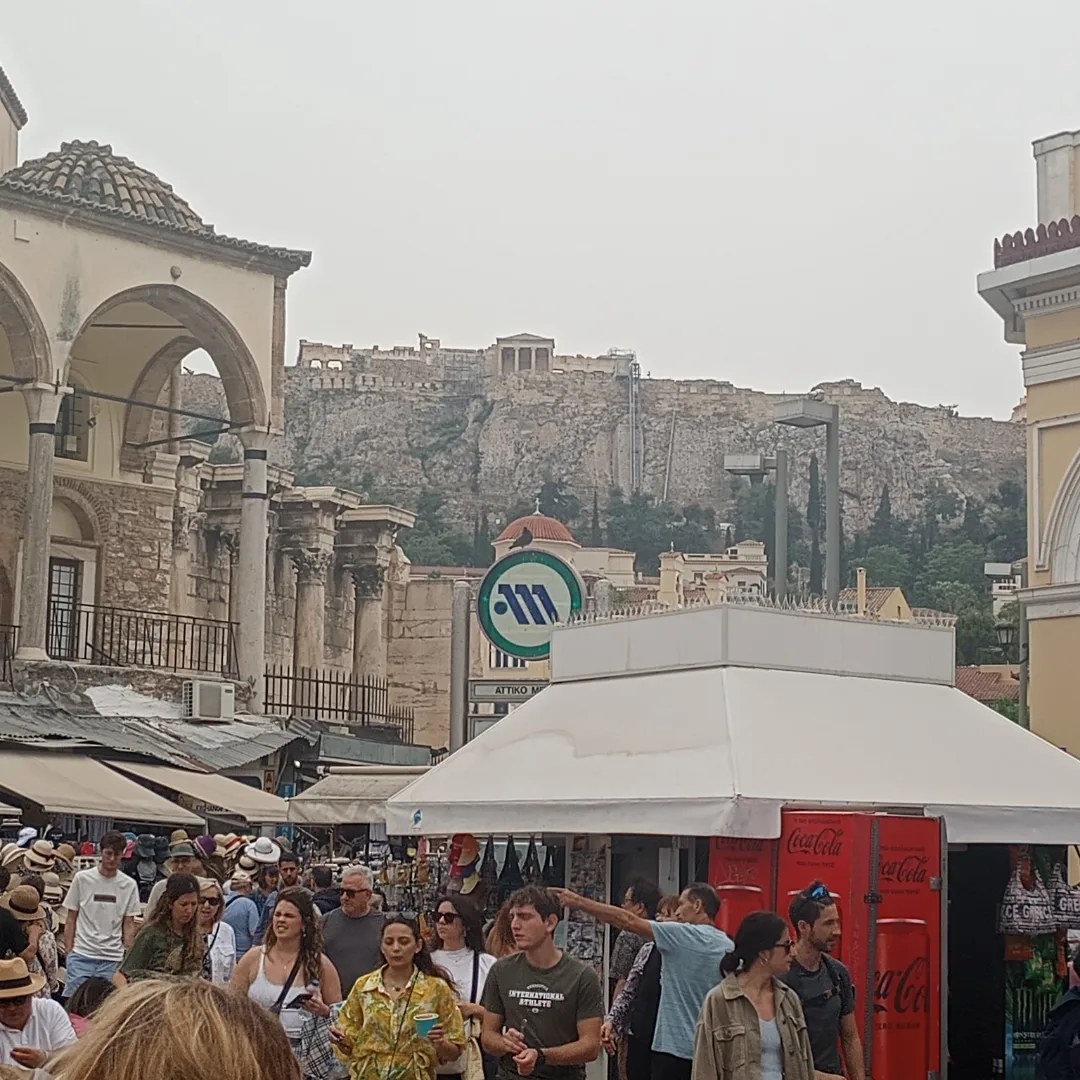
6.5 Banks and Institutional Projects.
Within a decade of Greek independence, the National Bank of Greece was created, the country’s first financial institution (NBG 2024).
The Bank of Greece (2024), which began operations on May 14, 1928, documents the story of Greek currency, and some of its more unusual history. “During the Axis occupation, banknotes were issued both in occupied Greece and abroad. Between 1941 and 1944, many banknotes of huge denominations were printed by various lithographers in Greece, due to galloping inflation; the last one, that of 100 billion drachmas, was printed on 5 November 1944. Law 18/10 November 1944 introduced the first monetary reform, stipulating that one post-war drachma would equal 50 billion occupation drachmas.” This shows evidence that punctures the myth of authoritarian rule as having an advantage in economic stability.
An interview with Christina Papaconstantinou, a member of the Supervisory Board of the ECB, and Deputy Governor of the Bank of Greece, as reported by the ECB, documents the challenges Greek banks faced during the financial crisis (2008-2015), as well as the solutions they developed (European Central Bank 2024).
“The great financial crisis, the euro area sovereign debt crisis and the deep economic recession that ensued in Greece resulted in major challenges for the Greek banking sector. These included a sharp increase in non-performing loans, a bank run and loss of market access, and the eventual imposition of a bank holiday and temporary capital controls.”
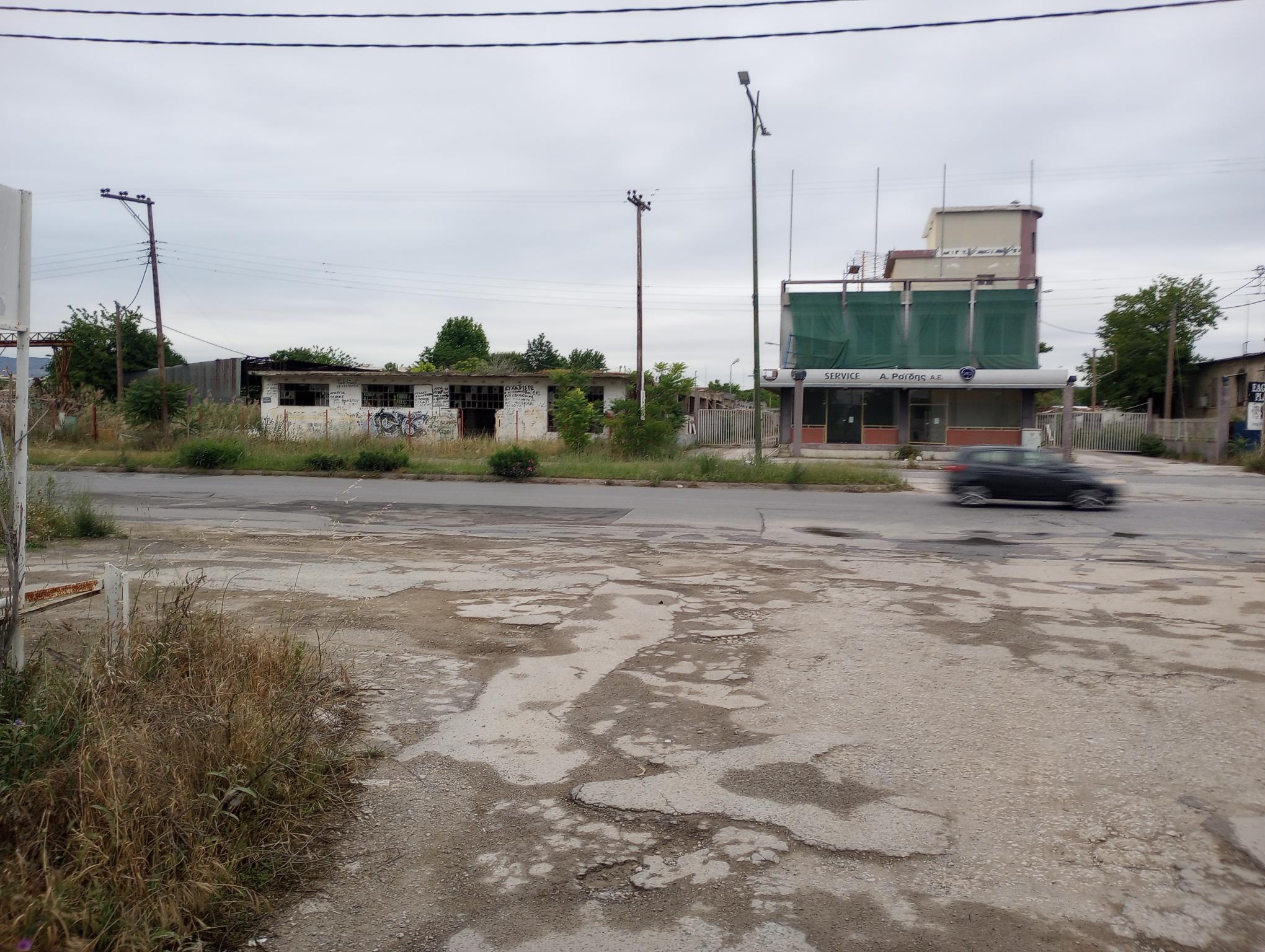
But as the European Central Bank reveals, not all of the lessons learned were about avoiding bad events. There was also the process of learning positive developments. “Many lessons have been learned on how to prevent another crisis on this scale in the future,” Papaconstantinou told the European Central Bank (2024) in the interview. “Those that stand out from a supervisor’s perspective are (i) the need to have an effective crisis management framework in place; (ii) the importance of completing the banking union by establishing its third pillar, the European deposit insurance scheme; and (iii) the significance of proactive and effective microprudential and macroprudential supervision. The common denominator is that we need more Europe. This means pushing forward with the necessary reforms during good times so as to take a proactive approach in the pursuit of our common goals. The Single Supervisory Mechanism (SSM) is an outstanding example of what we can achieve when we take bold steps in this direction.”
6.6 Greece: Contemporary Economics
As the OECD (2024) reports “Greece’s economy has been outpacing the euro area average since 2021. Support measures protected households and businesses against high inflation, while public debt declined significantly. Growing disbursements of the Recovery and Resilience Funds, continuous employment gains and disinflation, and recent structural reforms are all expected to support growth.”
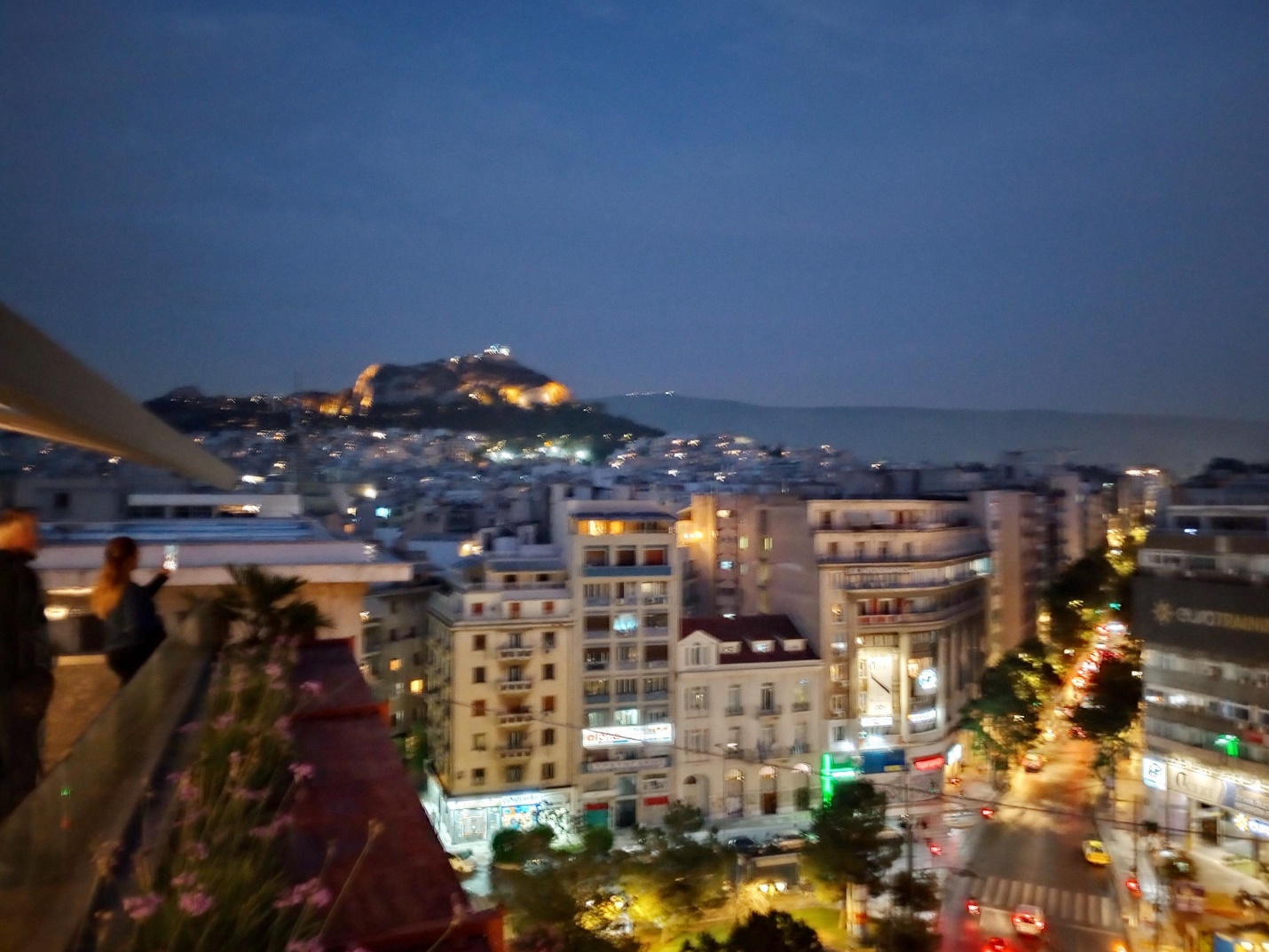
But Greece is not free and clear of its problems, as the OECD (2024) adds in its analysis. “However, significant challenges lie ahead. Sustaining primary surpluses and preserving public investment are essential to maintain the debt-to-GDP ratio on a firmly declining path. This requires shifting the structure of public spending towards investment, lowering tax expenditures and tackling tax evasion further.”
Section 7: Greece’s Foreign Relations
Overview: Greece’s history has been one of vacillating between decades of peace, and sharp conflicts with neighbors. As a result, Greece has both a heightened sense of patriotism manifested in a strong nationalism, yet also a growing recognition that the country needs international allies to avoid repeating the mistakes of the past.
7.1 Greece’s Role in International Organizations
After being overrun during World War II by the forces of fascism, despite putting up brave resistance, Greece realized they could no longer have a “go it alone” strategy when it came to international affairs, the exception being a close affinity for the British for their role in helping secure their independence in the early 1800s, and helping with Greek resistance to the Axis Powers.
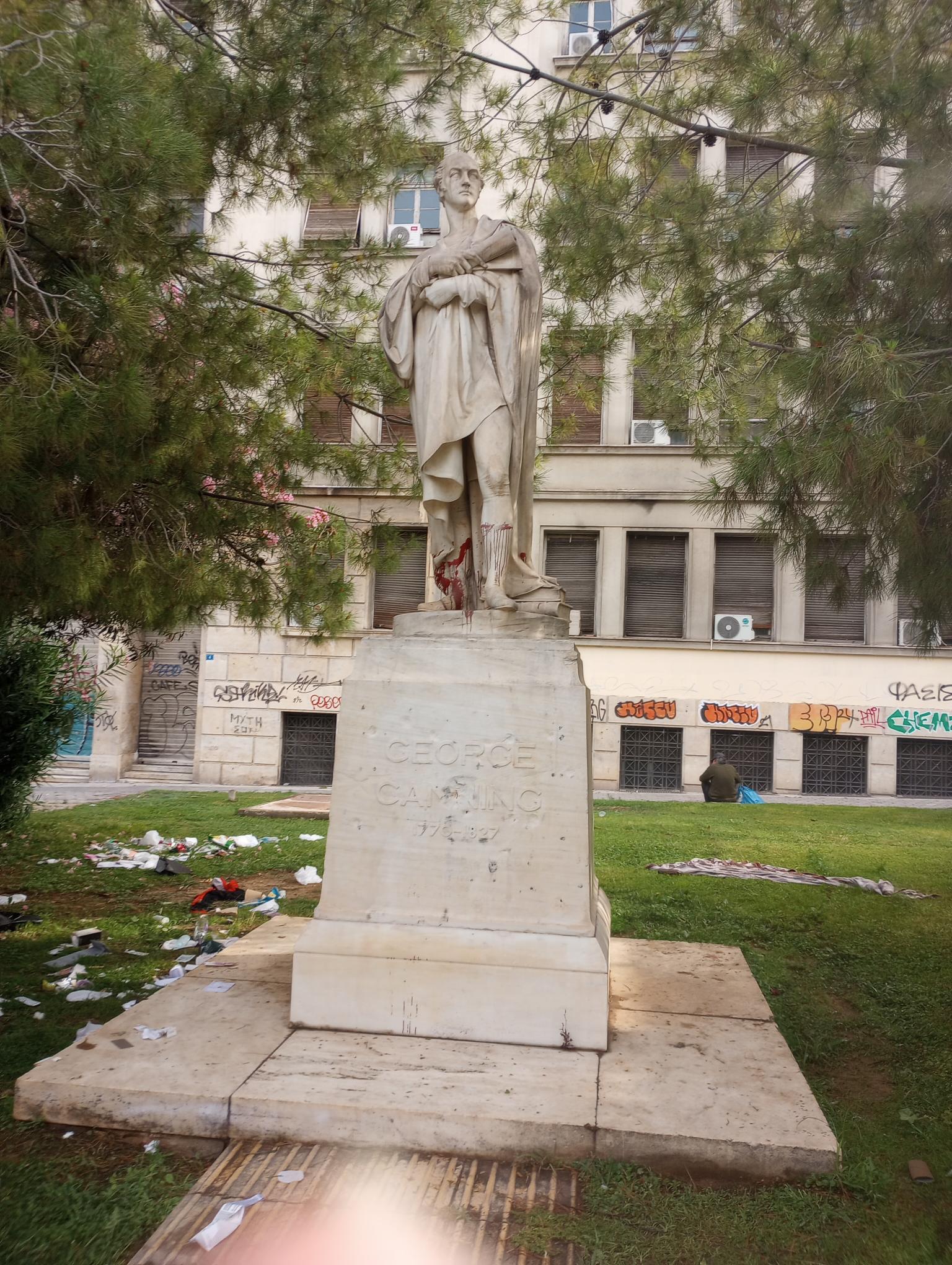
That’s why Greece became one of the 51 founding members of the United Nations. As of the writing of this chapter, Greece was also elected as a nonpermanent member of the United Nations Security Council, the group of 15 states empowered with coordinating international military and political action in defense of peace, a term that will be for 2025-2026. That election became the third time Greece was chosen for this rotating position on the UNSC; the other elections were for 1952-1953 and 2005-2006 (Permanent Mission of Greece to the United Nations 2024). Despite their struggles, Greece does participate in humanitarian assistance and development programs and responses to emergency, just as the country is publicly committed to promoting human rights (Permanent Mission of Greece to the United Nations 2024).
Greece has an even more robust role in the powerful military alliance known as the North Atlantic Treaty Organization (NATO). The country, along with Turkey. Was one of the first to join the expanded pact, becoming a member in 1952, three years after the founding of NATO. Greece is more than just a member; the country contributes several bases to the international security alliance. And the Greeks are one of the countries committing more than two percent of their GDP of their military budget to provide West and South Europe the means of protection.
As NATO documents “At a time when there was a fear of communist expansion throughout Europe and other parts of the world (for example, Soviet support of the North Korean invasion of South Korea in 1950), extending security to south-eastern Europe was strategically important. Not only did NATO membership curb communist influence in Greece – a country recovering from civil war – but it also relieved Türkiye from Soviet pressure for access to key strategic maritime routes.”
7.2 Military Assistance from Greece
When North Korea launched an illegal invasion of South Korea, Greece was one of the countries that stepped up, providing troops to help repel the attackers and their Chinese allies, critical assistance from thousands of soldiers. As Michael Rubin (2023) explains “The Greek participation was not simply symbolic. Athens initially offered a brigade, but the United States suggested a smaller deployment so Greece could keep watch on NATO’s southern flank. Greek leaders wanted to participate, though, and contributed a battalion of soldiers and the Royal Hellenic Air Force flew seven C-47 Dakota aircraft, conducted almost 3,000 missions, and provided crucial air support during the Battle of Chosin Reservoir. The Greek battalion fought under the American 1st Cavalry Division, one of the US Army’s most storied units. All told, 10,255 Greeks fought in Korea, and almost 200 died there. Many wounded Americans owe their lives to Greek pilots who evacuated them under fire.”
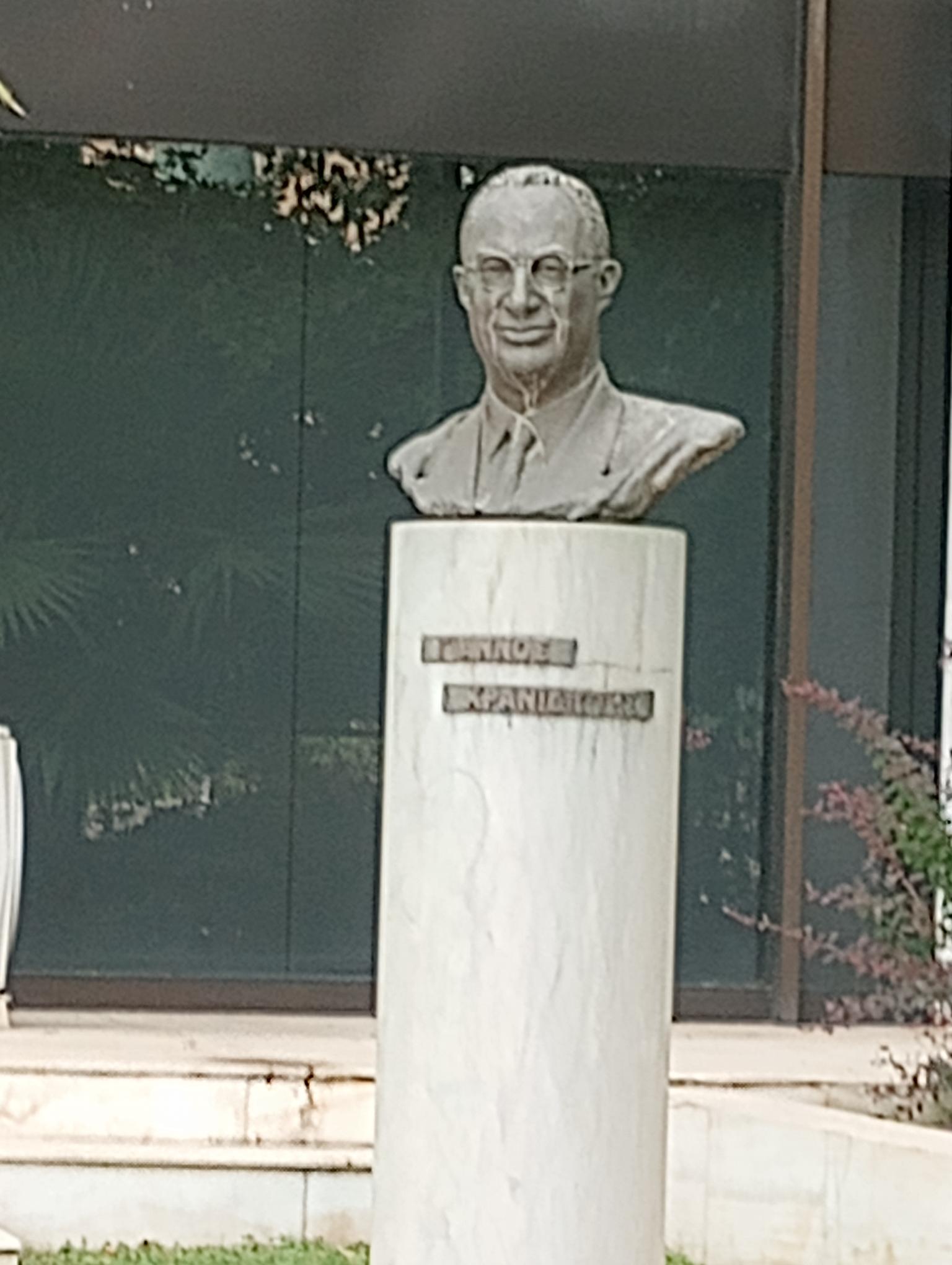
Though the participation of the Greek Expeditionary Force in Korea was the most high-profile international conflict participation, it was by no means the only one. The United Nations Peacekeeping branch (2022) recently praised the role of Greece in the United Nations peacekeeping missions like the United Nations Interim Force in Lebanon (UNIFIL), and others (Greece is among the Top 65 in providing of military and police personnel). Additionally, the U.N. has lauded Greece for the country’s role in training, bases, and other means of supporting peacekeeping besides the provision of men and women in uniform (United Nations Peacekeeping 2022).
Though Greece is hardly the largest NATO member, it has, as the British like to say “punched above their weight,” meaning the country participates more in NATO than a country its size might be expected to do. “For the Hellenic Republic, the participation in humanitarian assistance and peace support missions is a high priority. Greece has contributed to the ISAF mission, KFOR, and Operation Active Endeavor. The Hellenic Composite Battalion, manned by 120 personnel and 47 vehicles, is responsible for erecting technical support buildings at Kabul International Airport (KAIA), reinforcing camp security, training of Afghan Soldiers, and distributing of humanitarian aid. Greece has decided to increase personnel to the reconstruction of Afghanistan with a new OMLT in October 2009 and two medical teams will contribute to the ISAF operation regarding Afghanistan national elections. Greece has contributed personnel to SEEBRIG Headquarters that undertook command of the Kabul Multinational Brigade and ran the Hellenic Field Surgery Hospital that functioned operationally from within KAIA (NATO SHAPE n.d.).”
The contributions of the Greeks in operations from Afghanistan to Kosovo show the value of this Southern European country to the NATO mission beyond its borders. As NATO SHAPE (n.d.) touts “The Hellenic contingent in Kosovo conducted hundreds of reconnaissance, escorting, and control missions, but its main achievement was discovering a depot in which plenty of weapons and ammunition were hidden. Since 2001, Greece has been participating in Operation Active Endeavour by protecting high-value units and by conducting surveillance, maritime inspections, and maritime counter-terrorism operations. Greek Armed Forces also perform operations in support of the Greek population and have contributed a significant amount of resources and capabilities in search and rescue operations, disaster relief, bush fire-fighting operations, and mobile military medical units.”
Operation Active Endeavour was begun after 9/11, when one member, the United States of America was attacked. There was concern that terrorists could slip through the Mediterranean Sea using smuggling and human trafficking routes, requiring a better defense (Jontz 2006). Being on the front lines, close to Turkey, Syria, and Lebanon, and across the Sea from Egypt, Libya, and Tunisia, Greece was a natural participant in this nautical operation.
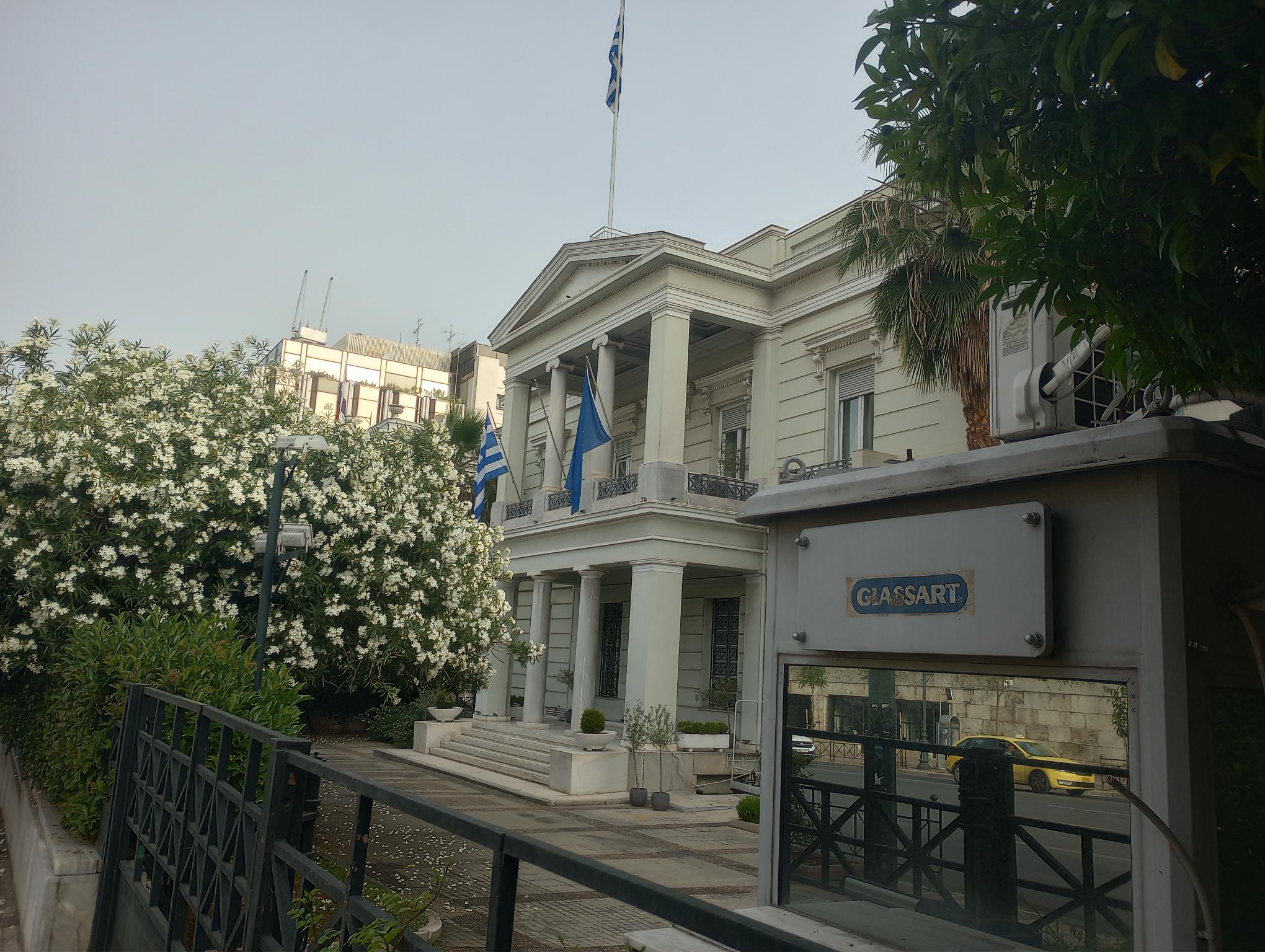
7.3 UN Assistance to Greece
Just as Greece has aided international organizations, those bodies have also come to the rescue of Greece. As noted earlier, Greece needed several bailouts from the International Monetary Fund (IMF) to avoid bankruptcy. That organization contributed billions to a rescue fund for this Southern European country. According to the BBC (2018) “Greece asked for a financial rescue by the European Union and International Monetary Fund. Bailouts – emergency loans aimed at saving sinking economies – began in 2010. Greece received three successive packages, totaling €289bn (£259bn; $330bn), but they came with the price of drastic austerity measures.”
Those economic problems did take their toll, but the worst is likely past for Greece, despite the unpopularity of these packages. “The economy is 25% smaller than when the crisis began and it will take decades to pay off its debt pile of 180% of GDP. But for the first in almost a decade, Greece is off life support (BBC 2018).”
But that’s not the only aid Greece received. The United Nations stepped in when Greece faced an unprecedented number of migrants to its islands and mainland, a lot for a country with a population under 11 million. “At the end of 2019, Greece hosted over 186,000 refugees and asylum-seekers. This included over 5000 unaccompanied children. Most persons of concern were coming from Afghanistan, the Syrian Arab Republic, the Democratic Republic of the Congo and Iran. UNHCR’s work in Greece focuses on protection needs as well as gradually transitioning the responsibility of large-scale programmes (accommodation, cash-based interventions and programmes for unaccompanied and separated children) to the Greek government. At the end of 2019, Greece was one of UNHCR’s largest operations in Europe.”
That role transitioned as the Greek government took over for the United Nations High Commission for Refugees in 2021. Yet subsequent visits by the UNHCR led international authorities to call upon Greece to do more for those who migrated to Greece (United Nations News 2023), which now include those fleeing Russia’s attacks upon Ukraine.
7.4 Regional Partners
On June 28, 1979, the Hellenic Parliament ratified what was called The Act of Accession, making them a member of the European Community on the first day of 1981 (CVCE.eu 2024). Eleven years later, the country joined The European Union. While there are debates about how well the economic bailouts affected Greece, the country was able to stave off bankruptcy. Moreover, with a common market and a common currency, Greece has closer ties to the continent than when it did the Greek military colonels ruled the country, and the people were isolated due to the regime’s behavior. Greece continued the behavior of the country pre-military rule, when the nation signed the Athens Agreement in 1961 to join the Treaty of Rome, joining the European Economic Community. Greek membership in that organization was suspended during that authoritarian rule (CVCE.eu 2024).
In addition to the EU, UN and NATO, Greece is a member of the World Trade Organization (WTO) which seeks to coordinate tariff and other trade policies (Ministry of Foreign Affairs 2024). It’s a member of the Organization for Security and Cooperation in Europe (OSCE), which seeks to create closer political ties between West and East Europe (Ministry of Foreign Affairs 2024). Among the other groups that Greece has joined, the list includes, but is not limited to, the Organization of the Black Sea Economic Cooperation (BSEC), the World Tourism Organization, the International Maritime Organization (IMO), and the International Holocaust Remembrance Alliance (Ministry of Foreign Affairs 2024). Greece is also a member of UNESCO.
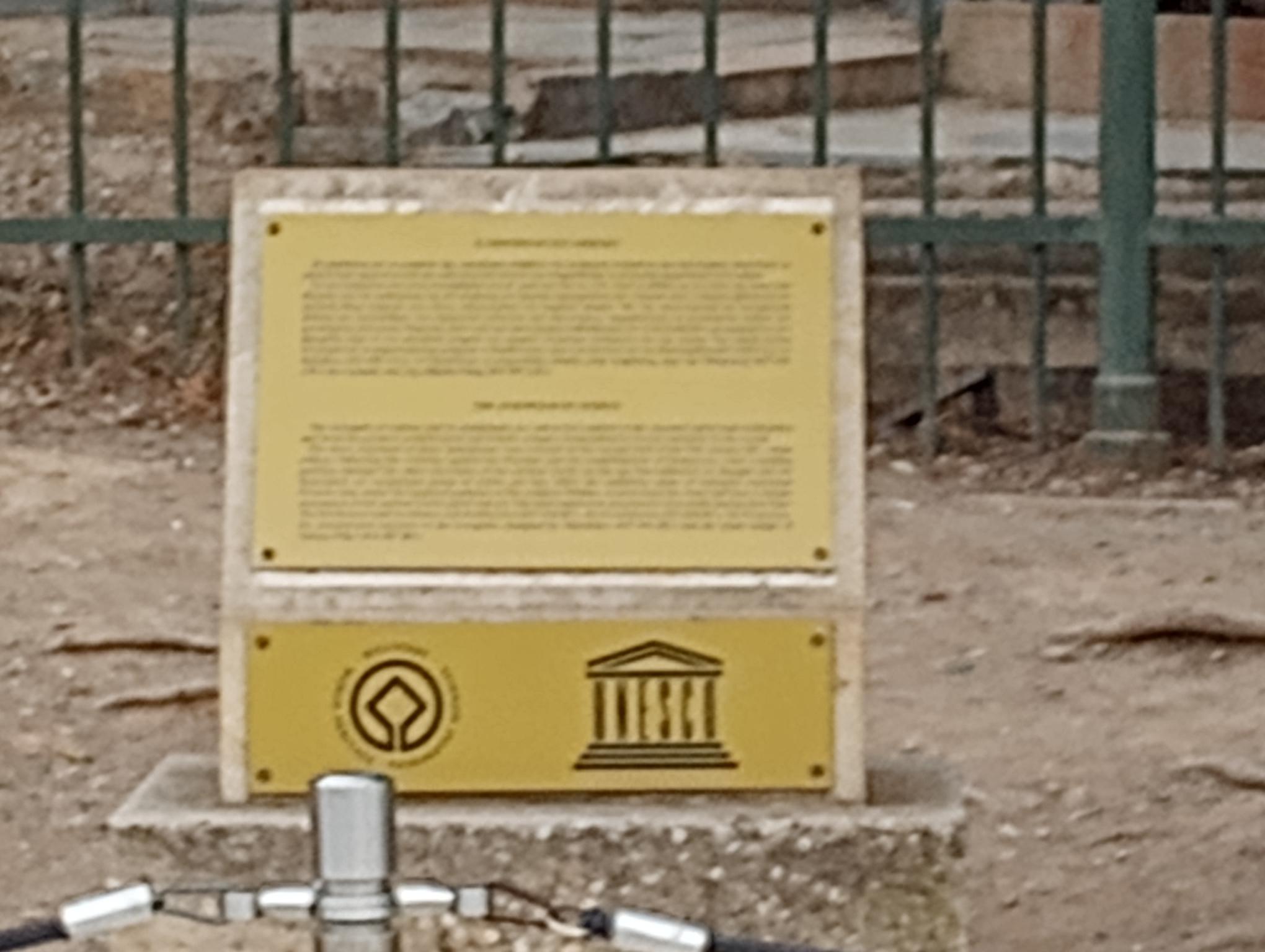
7.5 Defense
Greece has faced invasions from all of its neighbors: Macedonia before 300 B.C., from the Romans to the West, and Turks from the East. Even Italians attacked from Albania during World War II, and the country was overwhelmed by a combined attack from Adolf Hitler, Benito Mussolini, and Bulgaria, then an ally of the Nazis, from the North. The country faced a communist insurgency during the Cold War as well. Perhaps that is why the Greeks prefer to beef up their military forces more than many European countries.
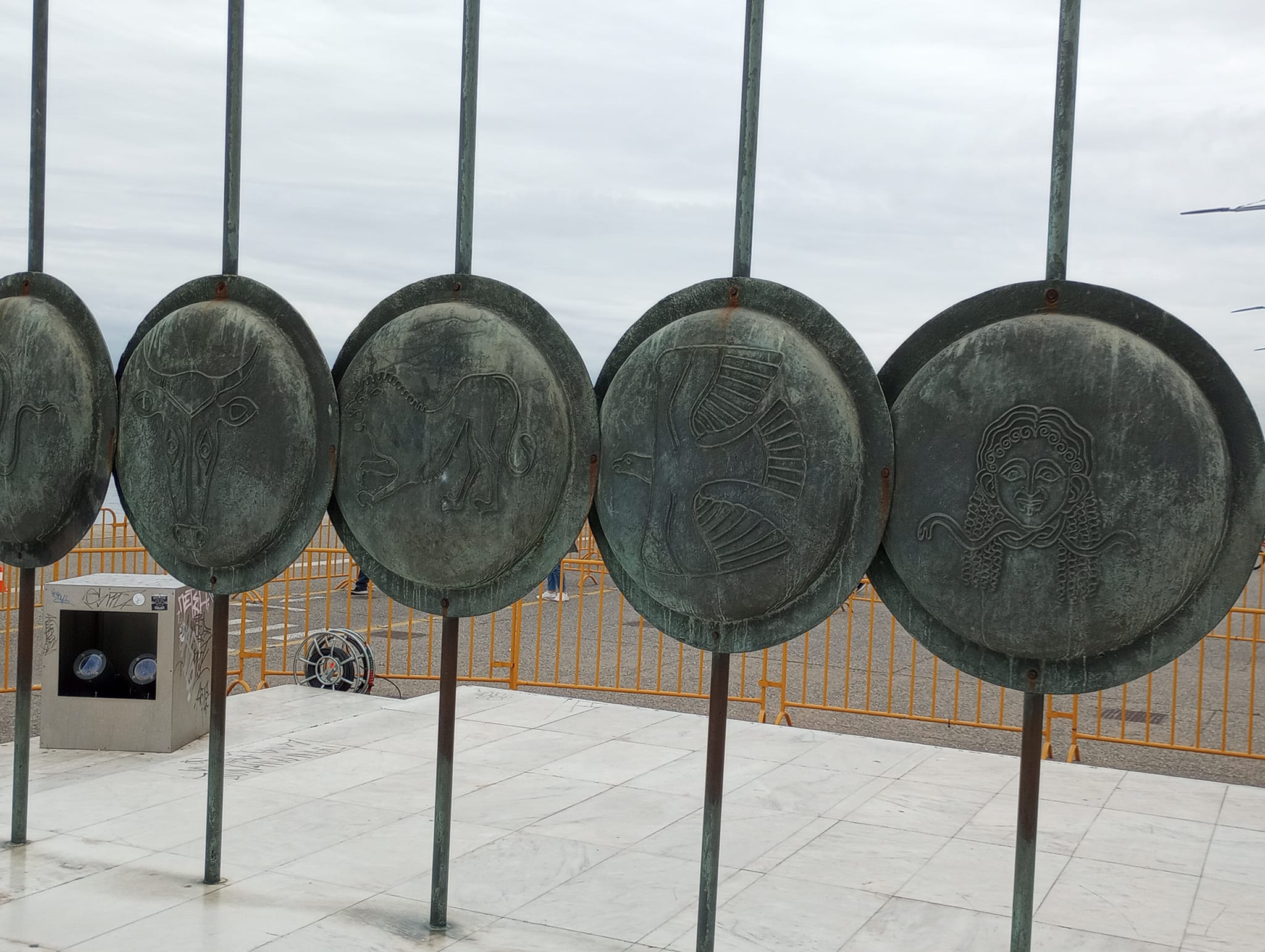
This is even reflected in contemporary defense spending (The Defense Post 2024), though Greece has not fought a war since 1974, a conflict with Turkey that took place over Cyprus. It also accounts for why the country was more willing to join the NATO alliance in standing up to the Soviet Union, Albania and Yugoslavia during the Cold War.
According to The National Interest (Atlamazoglou 2024a) “Although both countries are NATO members, Greece and Turkey share an ancient animosity stretching back to the 10th century, when nomadic Turkic tribes invaded the Byzantine Empire. More than a thousand years later, the animosity is still strong, and the two countries have clashed, directly or indirectly, several times in the past 100 years.”
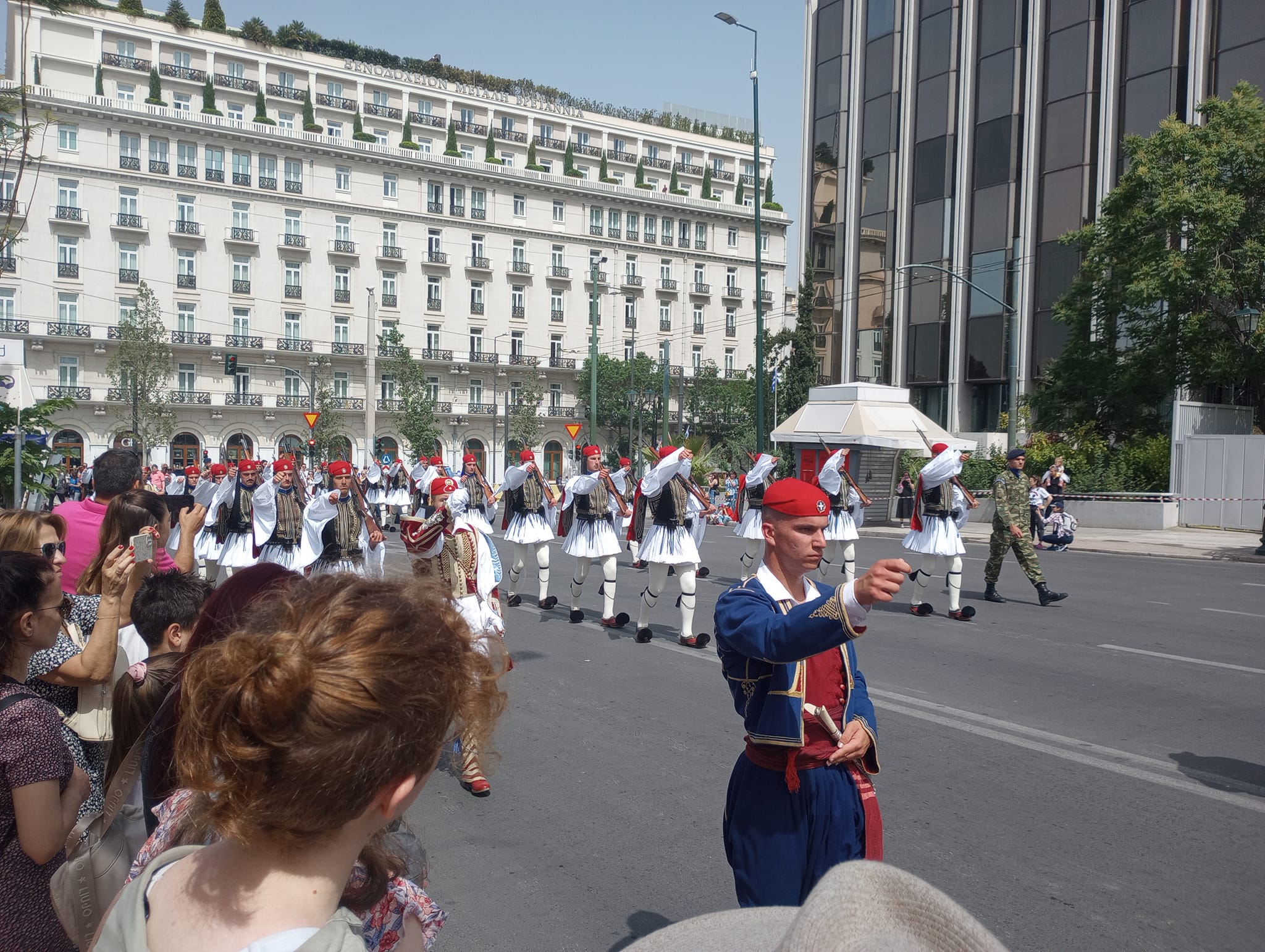
According to the Ministry of Foreign Affairs (2024b) “All male Greek citizens, aged between 19 and 45, are required to serve in the Armed Forces. Greek citizens living permanently outside of Greece have the right to postpone their conscription. They are permanently exempted from their military obligations when they reach the age of 45 years old.”
A group called “GlobalFirePower.com” (2024) rated Greece as 32 out of 145 for military strength, for a “PwrIndx” score of 0.4349, which is impressive for such a small country. This is probably because Greece has approximately 850 tanks, many of them German-made Leopards (Atlamazoglou 2024a) and over 200 fighter planes. “The Hellenic Air Force, with around 227 fighter jets, boasts one of NATO’s largest air fleets, even surpassing the UK and France individually. Greece operates a robust mix of aircraft: F-16s, including Block 70/72 “Viper” upgrades, Dassault Rafales, Mirage 2000-5s, and F-4E Phantoms (Atlamazoglou 2024b).”
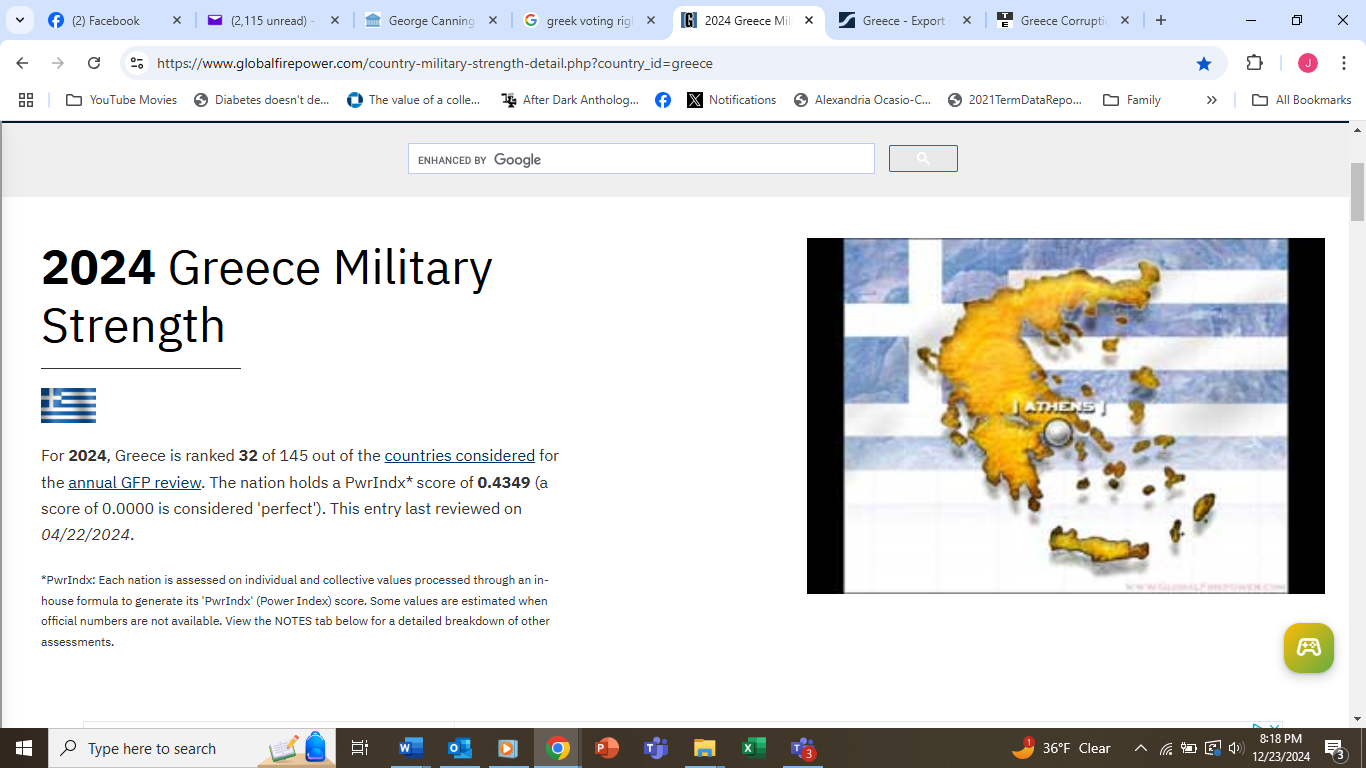
Indeed The Defense Post (2024) reports that Greece is expected to double its military budget to make up for the shortfall it experienced since the financial crisis, fearing falling behind Turkey. This has occurred, despite only recently getting out of that same economic crisis due to overspending. However, the size of the Greek military has fallen compared to earlier decades.
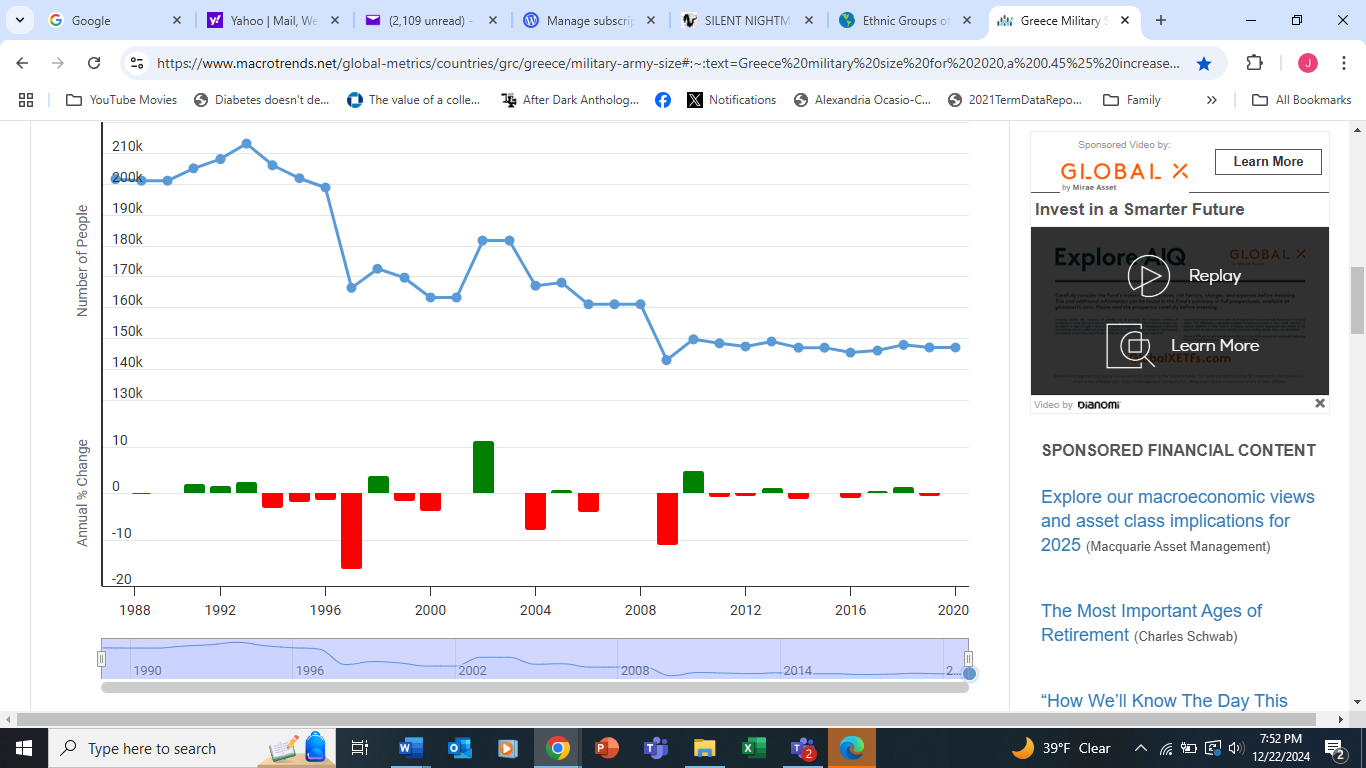
Conclusion: Poú pas Elláda? (Where Are You Going, Greece?)
In all the time spent researching Greece, I’ve learned that the Greeks have an amazing history to be proud of, creating a political system far more embraced throughout the world today in it was in their classical era. Their contributions in the arts and sciences, in history and storytelling, and so much more, show the country has influenced more abroad than arguably any other modern nation-state.
At the same time, a Greece has faced its challenges, from invasions on every border throughout their history. Some challenges are internal bordering on the intermestic, just as the post-war military coup, the economic crisis, and the immigration to Greek shores from refugees, as well as domestic clashes over what to do about each challenge. Today, the country faces simmering tensions not just with rivals abroad, but also wrestling with just who the Greeks of today are. Are the Greeks a proud independent people separate from everyone else, or members of a European community, or even citizens of the world, matching their global influence? Greece is at a pivotal moment in their history: where will the country go? Will their history offer any clues to guide the Greeks and scholars studying their culture? Or will they continue into uncharted territory, adding another unprecedent chapter in the Greek story?
References
Section 1
Barber, Tony. 2024. “France and Greece: Spot the Differences.” Financial Times, December 14. https://www.ft.com/content/6181433d-e566-4fe6-8ff6-7dda4e92a976 (accessed December 15, 2024).
Blytas, George C. 2009. The First Victory: Greece in the Second World War. River Vale, NJ: Cosmos Publishing Company and the American Hellenic Institute Foundation.
British Broadcasting Company. 2023. “Greece Country Profile.” BBC. June 28. https://www.bbc.com/news/world-europe-17372520 (accessed December 15, 2024).
Brooks, Christopher. 2020. “Chapter 6: The Classical Age of Greece.” In The Birth of Europe, Andrea Boffa, ed. CUNY PressBooks. https://pressbooks.cuny.edu/thebirthofeurope/chapter/chapter-6-the-classical-age-of-greece/ (accessed December 15, 2024).
Byington, Quinn, William McClelland and Zachary Quint. 2021. “‘That Greece Might Still Be Free’: Commemorating the Bicentennial of the Greek War of Independence from an International Perspective.” University of Michigan Library Online Exhibits. https://apps.lib.umich.edu/online-exhibits/exhibits/show/200th-anniversary-greek-war (accessed December 15, 2024).
Charanis, Peter. 1963. “How Greek Was The Byzantine Empire?” The Bucknell Review. Vol. 11, Issue 3 (May 1): 101 https://www.proquest.com/openview/1ea675e582fd3e673724f336db622768/1?pq-origsite=gscholar&cbl=1821557 (accessed December 15, 2024).
Davis, Paul K. 2001. Pydna 22 June 168 B.C. In 100 Decisive Battles: From Ancient Times To The Present, Paul K. Davis, ed. Oxford University Press. https://academic.oup.com/book/47298/chapter-abstract/422416668?login=false (accessed December 15, 2024).
Davison, Phil. 2010. “Brigadier General Dimitrios Ioannidis: Soldier Who Served Life Imprisonment After Leading Coups In Greece And Cyprus.” The Independent. August 18. https://www.independent.co.uk/news/obituaries/brigadier-general-dimitrios-ioannidis-soldier-who-served-life-imprisonment-after-leading-coups-in-greece-and-cyprus-2055147.html
(accessed December 15, 2024).
DeWitte, Mellisa. 2024. “What The Ancient Greeks Can Teach Us About Democracy.” Stanford Report. March 31. https://news.stanford.edu/stories/2024/03/learning-about-democracy-in-ancient-greece (accessed December 23, 2024).
Dietrich, B. C. 1970. “Some Evidence of Religious Continuity in the Greek Dark Age.” Bulletin of the Institute of Classical Studies. No. 17. Pp. 16-31. https://www.jstor.org/stable/43646246 (accessed December 15, 2024).
Encyclopedia Britannica.2024. “Mycenaean.” Editors of Encyclopedia Britannica. https://www.britannica.com/topic/Greek-mythology/Types-of-myths-in-Greek-culture (accessed December 15, 2024).
History Channel. 2023. “Iron Age.” History.com Editors. June 13. https://www.history.com/topics/pre-history/iron-age (accessed December 15, 2024).
Holocaust Encyclopedia. n.d. “Greece” Holocaust Encyclopedia. https://encyclopedia.ushmm.org/content/en/article/greece (accessed December 15, 2024).
Iatrides, John O. and Nicholas X. Rizopoulos. 2000. “The International Dimension of the Greek Civil War.” World Policy Journal. Vol. 17, Issue 1 (Spring): 87-104. https://web.p.ebscohost.com/ehost/pdfviewer/pdfviewer?vid=8&sid=86130942-0d84-43f6-8186-ab2ea634a6ee%40redis (accessed December 15, 2024).
Kassimeris, Christos. 2006, “Causes of the 1967 Greek Coup.” Democracy and Security. Vol 2, No. 1 (January-June): 61-72. https://www.jstor.org/stable/48602566 (accessed December 15, 2024).
Lengel, Edward G. “Postwar Agony in Greece.” HistoryNet. March 27 https://www.historynet.com/postwar-agony-in-greece/#:~:text=Communist%20bands%20became%20infamous%20for,troops%20plus%20about%2050%2C000%20militia. (accessed December 15, 2024).
Morris, Ian. 2008. “Early Iron Age Greece” from “Part II – Early Mediterranean Economies and the Near East.” In The Cambridge Economic History of the Greco-Roman World, Walter Scheidel, Walter, Ian Morris and Richard P. Saller, eds. Cambridge University Press. https://www.cambridge.org/core/books/the-cambridge-economic-history-of-the-greco-roman-world/7A157C8790C4006FAF5D7E385C671A13 (accessed December 15, 2024).
National Geographic. “Philip II of Macedon.” National Geographic Encyclopedia.
https://education.nationalgeographic.org/resource/philip-ii-macedon/ (accessed December 15, 2024).
National Geographic. “Alexander the Great.” National Geographic Encyclopedia. https://education.nationalgeographic.org/resource/alexander-great/ (accessed December 15, 2024).
New World Encyclopedia. n.d. “George I of Greece.” New World Encyclopedia. https://www.newworldencyclopedia.org/entry/George_I_of_Greece (accessed December 15, 2024).
Petsalis-Diomidis, Nicholas. 1978. Greece at the Paris Peace Conference (1919).” Institute for Balkan Studies, The University of Michigan. https://www.google.com/books/edition/Greece_at_the_Paris_Peace_Conference_191/aF4DAAAAMAAJ?hl=en (accessed December 15, 2024).
Swaddling, Judith. 1988. “Olympics B.C.” Natural History. Vol. 97, Issue 9. 8-10. https://search.ebscohost.com/login.aspx?direct=true&AuthType=ip,shib&db=a9h&AN=8800007008&site=ehost-live&scope=site&custid=lag1 (accessed December 15, 2024).
Worthington, Ian. 2020. “Chapter 7: Enter Rome, Exit Macedonia.” In Athens After Empire: Alexander the Great to Emperor Hadrian. Oxford University Press. https://academic.oup.com/book/36146/chapter-abstract/314407778?redirectedFrom=fulltext (accessed December 15, 2024).
Section 2
Abshire, David M. 1959. “The Naval Batle of Navarino, 1827.” U.S. Naval Institute Vol.75, No. 1 (January): 671. https://www.usni.org/magazines/proceedings/1959/january/naval-battle-navarino-1827. (accessed December 16, 2024).
Atlamazoglou. Stavros. 2022. “How The US Defused A Deadly Showdown Between 2 NATO Allies’ Special-Operations Forces.” Business Insider. May 8. https://www.businessinsider.com/imia-kardak-island-dispute-between-greece-turkey-almost-sparked-war-2022-5 (accessed December 16, 2024).
Burckhardt, Jacob. 1997. “Chapter 1: The Greeks And Their Mythology.” In The Greeks and Greek Civilization. St. Martin’s Press. Reprinted in The New York Times. https://archive.nytimes.com/www.nytimes.com/books/first/b/burckhardt-greeks.html?scp=10&sq=Dodona&st=cse#:~:text=How%20the%20Hellenes%20proper%20then,contrasting%20customs%2C%20thought%20and%20language (accessed December 16, 2024).
CIA World Factbook. 2015. “Greece.” https://www.cia.gov/the-world-factbook/countries/greece/ (accessed December 16, 2024).
Chepkemoi, Joyce. 2019. “Ethnic Groups Of Greece.” World Atlas: Society. August 14. https://www.worldatlas.com/articles/minority-ethnic-groups-in-greece.html (accessed December 16, 2024).
Encyclopedia Britannica. n.d. “Greek Language.” Editors of the Encyclopedia Britannica.
https://www.britannica.com/summary/Greek-language (accessed December 23, 2024).
Greek Orthodox Archdiocese. 2023. “Introduction: What Is The Greek Orthodox Church?”
https://www.goarch.org/-/introduction-what-is-the-greek-orthodox-church- (accessed December 16, 2024).
Jenkins, David. 2024. “Inside the Hellenic Collections: The Greek War of Independence.” Ancient, Byzantine and Modern Greek Collections, Resources for Hellenic Studies at Princeton University, Princeton University Library. https://dpul.princeton.edu/greek-collections/feature/inside-the-hellenic-collections-the-greek-war-of-independence (accessed December 16, 2024).
Kinley, Christopher. 2019. “The Greco-Turkish War.” Origins: Current Events in Historical Perspective, The Ohio State University. May. https://origins.osu.edu/milestones/may-2019-greco-turkish-war-smyrna-sakarya-kemal-ottoman (accessed December 16, 2024).
Kuiper, Kathleen. n.d. “Koine Language.” Encyclopedia Britannica. https://www.britannica.com/topic/Koine-Greek-language (accessed December 16, 2024).
The Latin Library. n.d.. “Aeolians, Dorians, Ionians.” https://www.thelatinlibrary.com/historians/notes/aeolians.html (accessed December 16, 2024).
Lefteris, Christoforou. 2020. “The Need For EU Recognition Of The Genocide Of The Pontic Greeks.” European Parliament. Question For Written Answer E-003033/2020 to the European Commission, Rule 138. https://www.europarl.europa.eu/doceo/document/E-9-2020-003033_EN.html (accessed December 16, 2024).
Papadakis, Aristeides. 1996. “History of the Orthodox Church.” Greek Orthodox Archdiocese. https://www.greekorthodoxchurch.org/history.html (accessed December 16, 2024).
Section 3
Al-Jazeera. 2023. “‘Very Worrying’: Three Far-Right Parties Enter Greek Government.” June 30.
https://www.aljazeera.com/news/2023/6/30/very-worrying-three-far-right-parties-enter-greek-parliament (accessed December 17, 2024).
Amnesty International. 2024. “Greece.” Amnesty International Secretariat Office. https://www.amnesty.org/en/location/europe-and-central-asia/western-central-and-south-eastern-europe/greece/ (accessed December 17, 2024).
Botetzagias, Iosif and Eirini Koutiva. 2015. “Chapter 8: When Best Is Not Enough: Greek Environmental NGOs And Their Donors Amidst The Economic Crisis.” In Austerity And The Third Sector In Greece: 125-145. https://www.researchgate.net/profile/Iosif-Botetzagias/publication/316455695_When_best_is_not_enough_Greek_environmental_NGOs_and_their_donors_amidst_the_economic_crisis/links/58ff320caca2725bd71e42ea/When-best-is-not-enough-Greek-environmental-NGOs-and-their-donors-amidst-the-economic-crisis.pdf (accessed December 17, 2024).
Freedom House. 2024. “Countries: Greece.” Freedom House.
https://freedomhouse.org/country/greece (accessed December 17, 2024).
Fulbright Foundation Greece. 2024. “Diverse Communities in Greece.”
https://www.fulbright.gr/en/study-in-greece/diverse-communities-in-greece (accessed December 17, 2024).
Georgiou, Myria. 2004. “Mapping Minorities And Their Media: The National Context – Greece.” London School Of Economics. November. https://www.lse.ac.uk/media@lse/research/EMTEL/Minorities/papers/greekreport.pdf
(accessed December 17, 2024).
Global Call to Action Against Poverty. n.d. “Platform for Development.” GCAP. https://gcap.global/coalition/greece/#:~:text=%CE%95%CE%9B%CE%9B%CE%97%CE%9D%CE%99%CE%9A%CE%97%20%CE%A0%CE%9B%CE%91%CE%A4%CE%A6%CE%9F%CE%A1%CE%9C%CE%91%20%CE%93%CE%99%CE%91%20%CE%A4%CE%97%CE%9D%20%CE%91%CE%9D%CE%91%CE%A0%CE%A4%CE%A5%CE%9E%CE%97,and%20the%20Sustainable%20Development%20Goals. (accessed December 17, 2024).
Harvard Law School. 2022. “Non-Governmental Organizations.” Harvard University.
https://hls.harvard.edu/bernard-koteen-office-of-public-interest-advising/about-opia/what-is-public-interest-law/public-service-practice-settings/international-public-interest-law-practice-setting/nongovernmental-organizations-ngos/ (accessed December 17, 2024).
Ingram, George. 2020. “Civil Society: An Essential Ingredient Of Development.” Brookings. April 6. https://www.brookings.edu/articles/civil-society-an-essential-ingredient-of-development/
(accessed December 17, 2024).
Politico. 2024. “Greece—European Election 2024 Results.” Poll of Polls. https://www.politico.eu/europe-poll-of-polls/greece/ (accessed December 17, 2024).
Roberts, Steven V.. 1974. “Greeks Reject Monarchy By Wide Margin Of Votes.” The New York Times. https://www.nytimes.com/1974/12/09/archives/greeks-reject-monarchy-by-wide-margin-of-votes-voters-in-greece.html (accessed December 17, 2024).
Perrier, Fabien. 2024. “The Greek Far-Right Is Advancing Under The Radar.” VorEurop. May 22. https://voxeurop.eu/en/greek-far-right-advancing-under-radar/ (accessed December 17, 2024).
Simiti, Marilena. 2015. “‘Social Need’ Or ‘Choice’? Greek Civil Society During The Economic Crisis.” GreeSE Paper No. 95: Hellenic Observatory Papers on Greece and Southeast Europe. November. https://eprints.lse.ac.uk/64665/1/__lse.ac.uk_storage_LIBRARY_Secondary_libfile_shared_repository_Content_Hellenic%20Observatory%20(inc.%20GreeSE%20Papers)_GreeSE%20Papers_GreeSE-No95.pdf (accessed December 17, 2024).
Skleparis, Dimitris and Ionnis Armakolas. 2016. “The Refugee Crisis And The Role Of NGOs, Civil Society, And Media In Greece.” Balkan Human Corridor: Essays On The Refugee And Migrant Crisis From Scholars And Opinion Leaders In Southeast Europe. Columbia University Press https://scholar.google.com/citations?view_op=view_citation&hl=en&user=maVRXXsAAAAJ&citation_for_view=maVRXXsAAAAJ:rmuvC79q63oC and https://d1wqtxts1xzle7.cloudfront.net/46861248/Skleparis_and_Armakolas_2016-libre.pdf?1467130760=&response-content-disposition=inline%3B+filename%3DThe_refugee_crisis_and_the_role_of_NGOs.pdf&Expires=1734443857&Signature=ThBdOrdbVURYl~KuV6XDd19aPGBw9gxZdCDMLQNfd0nRPWq11–jyOfU-mo2Ah5dYwxcaxy1CDYAa9RhGVP2zGqx4kEIDipta-PZ~YlTG3S3kBkWgZiTxjyvbAOBsx7n3yqeZKoO2~bvRqHdGzjHEA1ad8foHm2qWKiN75H84kTcoLyBH4Ru2ekHyQhFz-SG2EncpzG6uSL~uwmGXs3~4zz0-UBHvMolY9zgc1~tINYfc4hgVgDiHObqeCwQku-iCOKnZZD-qB-X8fYGAUBMpSw9~gMHx7enpixalEMQ8YvfiCF6C2iFQRwfRhdVqgaTIM52SnGr64zM3LvxhjD4Dg__&Key-Pair-Id=APKAJLOHF5GGSLRBV4ZA (accessed December 17, 2024).
Sotiropoulos, Dimitri A. 2004. “Formal Weakness and Informal Strength: Civil Society in Contemporary Greece, Discussion Paper No. 16.” The Hellenic Observatory. The European Institute. London School of Economics and Political Science, February. https://www.lse.ac.uk/Hellenic-Observatory/Assets/Documents/Publications/Past-Discussion-Papers/DiscussionPaper16.pdf (accessed December 17, 2024).
Traynor, Ian, John Hooper and Helena Smith. 2015. “Greek Referendum No Vote Signals Huge Challenge To Eurozone Leaders.” Guardian. July 5. https://www.theguardian.com/business/2015/jul/05/greek-referendum-no-vote-signals-huge-challenge-to-eurozone-leaders (accessed December 17, 2024).
Tsakatika, Myrto and Costas Eleftheriou. 2013. “The Radical Left’s Turn Towards Civil Society In Greece: One Strategy, Two Paths.” Southern European Society and Politics. 18,1: 81-99.
https://www.tandfonline.com/doi/pdf/10.1080/13608746.2012.757455 (accessed December 17, 2024).
Tzifakis, Nikolaos, Sotiris Petropoulos and Asteris Huliares. 2017. “The Economic Crises on NGOs: The Case of Greece.” Voluntas. 28: 2176-2199.
https://link.springer.com/content/pdf/10.1007/s11266-017-9851-3.pdf (accessed December 17, 2024).
Section 4
Bythimitris, Giorgos. 2021. “The Situation Of Trade Unions In Greece.” Friedrich Ebert Stiftung. September. https://library.fes.de/pdf-files/bueros/athen/18276.pdf (accessed December 18, 2024).
Britannica. n.d. “Panhellenic Socialist Movement.” Editors of Britannica.
https://www.britannica.com/topic/Panhellenic-Socialist-Movement (accessed December 18, 2024).
Chryssogelos, Angelos. 2024. “New Democracy And Centre-Right Dominate Greece: A New Normal?” Southeast European And Black Sea Studies. September.
https://www.tandfonline.com/doi/full/10.1080/14683857.2024.2407415?src=
(accessed December 18, 2024).
Clogg, Richard. 1982. “The Greek Elections of 1981.” Electoral Studies. Vol. 1, Issue 1 (April): 95-99. https://www.sciencedirect.com/science/article/abs/pii/0261379482901329?via%3Dihub (accessed December 18, 2024).
Dimitrovski, Tomi. 2023. “SYRIZA: The Rise And Fall Of The Cult Left Wing Party In Europe: Reflections On The Right Wing.” The International Institute for Middle East and Balkan Studies (IFIMES). December. https://www.ifimes.org/en/researches/syriza-the-rise-and-fall-of-the-cult-left-wing-party-in-europe-reflections-on-the-right-wing/5255 (accessed December 18, 2024).
Efstathiou, Niko. 2024. “Is Greece Heading Towards Record Low Voter Turnout.” Ekathimerini.com 6/9. https://www.ekathimerini.com/in-depth/analysis/1240886/is-greece-heading-towards-record-low-voter-turnout/ (accessed December 18, 2024).
Efthyvoulou, Georgios, Pantelis Kammas, and Vassilis Sarantides. 2020. “Gender Voting Gap In The Dawn Of Urbanization: Evidence From A Quasi-Experiment With Greek Special Elections.” GreeSE Paper No. 146. Hellenic Observatory Papers On Greece And Southeast Europe. London School Of Economics And Political Science. https://eprints.lse.ac.uk/104469/1/GreeSE_No146.pdf (accessed December 18, 2024).
Hellenic Republic, Ministry of Foreign Affairs.. 2022. “Enterprise Greece: Invest & Trade.”
https://www.enterprisegreece.gov.gr/en/trade/consult-us/useful-links/associations-chambers (accessed December 18, 2024).
Fakiolas, Rossetos. 1987. “Interest Groups: An Overview.” In Political Change In Greece, First Edition. Routledge. https://www.taylorfrancis.com/chapters/edit/10.4324/9781003457954-12/interest-groups-overview-rossetos-fakiolas (accessed December 18, 2024).
Hellenic Federation Of Enterprises. n.d. “Business Associations.”
https://en.sev.org.gr/sev-business-priorities/business-associations/ (accessed December 18, 2024).
Hellenic Parliament. n.d. “Elections.” Parliament: The Political System.
https://www.hellenicparliament.gr/en/Vouli-ton-Ellinon/To-Politevma/Ekloges/ (accessed December 18, 2024).
Kalogiannidis, Stavros, Simeon Karafolas and Fotios Chatzitheodoridis. 2024. “The Key Role Of Cooperatives In Sustainable Agriculture And Agrifood Security: Evidence From Greece.” Sustainability. 16, 16: 7202.
Manifava, Dimitra. 2024. “Greece’s Agricultural Sector Is Suffering.” Ekathimerini.com 2/21. https://www.ekathimerini.com/economy/1232220/greeces-agricultural-sector-is-suffering/ (accessed December 18, 2024).
Papageorge-Limberes, Yota. 1988. “Convention Political Involvement Of Greek Women.” Journal of Political & Military Sociology. Vol. 16, No. 1 (Spring): 31-41. https://www.jstor.org/stable/pdf/45293463.pdf?casa_token=eDbjI9dAvOAAAAAA:lhwJoEevALPgwHE0pw-bc0dbiHDpj9YmUrjktHI0gYJVsWMra4Z8wkCxqGp8XNF71CbSdkrNs3L8QpzdlziZmmb2uwXVtEHMYeCcm8YFBkGNKpP-TPk (accessed December 18, 2024).
Patronis, Vassilis and Konstantinos Mavreas. 2004. “Agricultural Cooperative Organizations In Greece Throughout The 20th Century: A Critical Overview.” Journal Of Rural Cooperation. Vol. 32, Issue 1: 51-62. https://ageconsearch.umn.edu/record/60040/?v=pdf (accessed December 18, 2024).
Politico. 2024. “Greece—European Election 2024 Result.” https://www.politico.eu/europe-poll-of-polls/greece/ (accessed December 18, 2024).
Reuters. 2023. “Explainer: Greece’s Election On Sunday: How The System Works.” June 22.
https://www.reuters.com/world/europe/greeces-election-sunday-how-system-works-2023-06-22/ (accessed December 18, 2024).
Reuters. 2024. “Greece’s Socialist PASOK Becomes Main Opposition After Leftist Collapse.” Thomason/Reuters. November 21. https://www.reuters.com/world/europe/greeces-socialist-pasok-becomes-main-opposition-after-leftist-party-collapse-2024-11-21/ (accessed December 18, 2024).
Simitis, Marilena. 2002. “New Social Movements In Greece: Aspects Of The Feminist And Ecological Projects.” London School Of Economics And Political Science, Proquest Dissertations & Theses.
Smith, Patrick. 2023. “Far-Right Victories In Greece Highlight Trend Across Europe.” NBC News. June 27. https://www.nbcnews.com/news/world/election-greece-right-wing-spartans-trend-europe-italy-lepen-vox-rcna91094 (accessed December 18, 2024).
Sophocleous, Harry, Sofia Anastasiadou, Andreas Masouras, and Sotiris Apostolopoulos. 2023.“Motives And Perceptions Of Greek Voters In National Elections Of 2023.”Strategic Innovative Marketing And Tourism, Androniki Kavoura, Teresa Borges-Tiago and Flavio Tiago, eds. Springer Proceedings In Business And Economics. https://library.oapen.org/bitstream/handle/20.500.12657/90880/1/978-3-031-51038-0.pdf#page=430 (accessed December 18, 2024).
Stamouli, Nektaria. 2023. “Greek Election Looks Set To Strengthen Mitsotakis’ Power.” Politico. June 23. https://www.politico.eu/article/greek-election-kyriakos-mitsotakis-looks-set-to-strengthen-pm-power/ (accessed December 18, 2024).
Statista. 2024. “Results Of The 2023 Greek Legislative Seats Won Per Party.”
https://www.statista.com/statistics/1395438/greece-election-results-parliament/ (accessed December 18, 2024).
Themelis, Spyros. 2015. “From Mainstream Politics To Social Movements: Greece In Between Austerity And Hope.” Discover Society. December 1. https://archive.discoversociety.org/2015/12/01/from-mainstream-politics-to-social-movements-greece-in-between-austerity-and-hope/ (accessed December 18, 2024).
Tsakas, Christos. 2018. “Europeanisation under authoritarian rule: Greek business and the hoped-for transition to electoral politics, 1967–1974 ” Business History. Vol. 62, Issue 4 (September).
https://cadmus.eui.eu/bitstream/handle/1814/59227/Greek_Business_revised_2018.pdf?sequence=2&isAllowed=y (accessed December 18, 2024).
Graphics
http://archive.ipu.org/parline-e/reports/arc/GREECE_1981_E.PDF
https://www.statista.com/statistics/1395438/greece-election-parliament/
Section 5
Associated Press. 2024. “Greece’s Conservative Government Survives A No-Confidence Motion Call Over Deadly Rail Disaster.” March 28. https://apnews.com/article/greece-athens-train-disaster-no-confidence-motion-2665ddb32571c4816f8932baa3e05fc1 (accessed December 20, 2024).
Beake, Nick and Kostas Kallergis. 2024. “Greek Court Throws Out Shipwreck Trial Against Nine Men.” BBC. May 21. https://www.bbc.com/news/articles/c255njzzx2lo (accessed December 20, 2024).
Cartledge, Paul. 2011. “The Democratic Experiment.” BBC History. February 17. https://www.bbc.co.uk/history/ancient/greeks/greekdemocracy_01.shtml (accessed December 19, 2024).
The Hellenic Parliament. 2019. “Government and Politics.”
https://www.hellenicparliament.gr/en/ (accessed December 20, 2024).
International Foundation for Electoral Studies (IFES). 2024. “Election Guide: Greece.” May 21 2023. https://www.electionguide.org/elections/id/3514/ (accessed December 20, 2024).
Kouras, Bill. 2024. “Greece Ranks Among Top 20 Best Democracies In The World, Economist Reports.” Greek City Times. February 15. https://greekcitytimes.com/2024/02/15/greece-ranks-among-top-20-best-democracies-in-the-world-economist-reports/ (accessed December 19, 2024).
Liakos, Chris. 2023. “Greek President Appoints Judge As Caretaker PM Ahead Of New Elections.” CNN. May 24. https://www.cnn.com/2023/05/24/europe/greece-new-elections-judge-caretaker-intl/index.html (accessed December 20, 2024).
Little, Becky. 2024. “How Democracy Developed In Ancient Greece.” The History Channel. October 28. https://www.history.com/news/ancient-greece-democracy-origins (accessed December 19, 2024).
Michalopoulos, Sarantis. 2024. Euractiv. “Greece Passes New Budget, Increases Defence Spending.” https://www.euractiv.com/section/politics/news/greece-passes-new-budget-reassures-defence-spending/ (accessed December 20, 2024).
Ministry of Foreign Affairs. 2024. “Judicial Power.” Hellenic Republic: Greece In The World. December 20. https://www.mfa.gr/missionsabroad/en/about-greece/government-and-politics/judicial-power.html (accessed December 20, 2024).
Newsroom. 2024. “Politics: Full List Of Greece’s New Cabinet.” Ekathimerini.com. https://www.ekathimerini.com/politics/1241522/full-list-of-greeces-new-cabinet-2/ (accessed December 20, 2024).
Reuters. 2024. “Greek Parliament Approves Private Foreign Universities, Bucking Protests.” March 9 https://www.reuters.com/world/europe/greek-parliament-approves-private-foreign-universities-bucking-protests-2024-03-09/ (accessed December 20, 2024).
Section 6
The Bank of Greece. 2024. “Drachma: Banknotes.” The Bank of Greece Eurosystem.
https://www.bankofgreece.gr/en/the-bank/history/drachma/drachma-banknotes (accessed December 20, 2024).
Council on Foreign Relations. 2024. “Greece’s Debt Crisis: 1974-2018.”
CFR. https://www.cfr.org/timeline/greeces-debt-crisis-timeline (accessed December 20, 2024).
European Central Bank. 2024. May 15. “Interview: ‘We Need More Europe.’” Banking Supervision. https://www.bankingsupervision.europa.eu/press/interviews/date/2024/html/ssm.in240515~d24b8d2379.en.html (accessed December 20, 2024).
Hayes, Adam. 2024. “Greek Drachma: Meaning, Overview, History, FAQs.” Investopedia. April 23. https://www.investopedia.com/terms/g/greek-drachma.asp (accessed December 20, 2024).
National Bank of Greece. 2024. NBG.
https://www.nbg.gr/en/individuals (accessed December 20, 2024).
OECD. 2024. “OECD Economic Surveys: Greece 2024.” OECD.
https://www.oecd.org/en/topics/sub-issues/economic-surveys/greece-economic-snapshot.html (accessed December 20, 2024).
O’Neill, Aaron. 2024. “Main Export Partners For Greece 2022.” Statista. August 29. https://www.statista.com/statistics/276397/main-export-partners-for-greece/
(accessed December 20, 2024).
Peterson Institute for International Economics (PIIE). 2020. “The Greek Debt: No Easy Way Out.” PIIE. https://www.piie.com/microsites/greek-debt-crisis-no-easy-way-out (accessed December 20, 2024).
Sullivan, Arthur. 2018. “The Greek Debt Crisis: A Timeline.” DW. August 17.
https://www.dw.com/en/a-timeline-of-greeces-long-road-to-recovery/a-45118014 (accessed December 20, 2024).
Trading Economics. 2024. “Greece Exports.” Tradingeconomics.com. https://tradingeconomics.com/greece/exports (accessed December 20, 2024).
Workman, Daniel. 2024. “Greece’s Top Trading Partners.” World’s Top Exports. https://www.worldstopexports.com/greeces-top-import-partners/ (accessed December 20, 2024).
Section 7
Atlamazoglou, Stavros. 2024a. “Question: Why Does Greece Have So Many Tanks?” The National Interest. September 2. https://nationalinterest.org/blog/buzz/question-why-does-greece-have-so-many-tanks-212461 (accessed December 21, 2024).
Atlamazoglou, Stavros. 2024b. “Greece Has A Massive Fleet Of Fighter Jets Because Of 1 Word.” November 2. https://nationalinterest.org/blog/buzz/greece-has-massive-fleet-fighter-jets-because-1-word-212639 (accessed December 21, 2024).
BBC 2018. “Greek Bailout Crisis In 300 Words” August 20. https://www.bbc.com/news/world-europe-45245969 (accessed December 21, 2024).
CVCE.eu. 2024. “Second Enlargement: Greece.” Luxembourg Centre for Contemporary and Digital History. https://www.cvce.eu/en/recherche/unit-content/-/unit/02bb76df-d066-4c08-a58a-d4686a3e68ff/4a6854b3-62e2-4e41-aba6-9ccf2cf5a859 (accessed December 21, 2024).
Defense Post. 2024. “Greece Adopts Budget Almost Doubling Defense Spending.” AFP Staff Writer. December 16. https://thedefensepost.com/2024/12/16/greece-doubling-defense-spend/. (accessed December 21, 2024).
Global Firepower.com. 2024. “2024 Greece Military Strength.” GFP.com April 22. https://www.globalfirepower.com/country-military-strength-detail.php?country_id=greece (accessed December 21, 2024).
Jontz, Sandra. 2006. “NATO’s Longest-Running Anti-Terrorism Operation Marks Five Years.” Stars and Stripes. October 31. https://www.stripes.com/migration/nato-s-longest-running-anti-terrorism-operation-marks-five-years-1.56141 (accessed December 21, 2024).
Ministry of Foreign Affairs. 2024a. “Greece in International Organizations” Hellenic Republic. https://www.mfa.gr/en/foreign-policy/greece-in-international-organizations/ (accessed December 21, 2024).
Ministry of Foreign Affairs. 2024b. “National Service Information.” Hellenic Republic. December 21. https://www.mfa.gr/usa/en/services/services-for-greeks/national-service-information.html (accessed December 21, 2024).
NATO 2024. “The Accession of Greece and Turkiye.” NATO Member Countries.
https://www.nato.int/cps/en/natohq/topics_52044.htm#gre-tur (accessed December 21, 2024).
Permanent Mission of Greece to the United Nations. 2024. “Permanent Mission of Greece to the U.N.” Hellenic Republic. https://www.mfa.gr/missionsabroad/en/un-en (accessed December 21, 2024).
Rubin, Michael. 2023. “Greece Must Promote Its Korean War Legacy.” American Enterprise Institute. November 13. https://www.aei.org/op-eds/greece-must-promote-its-korean-war-legacy/ (accessed December 21, 2024).
United Nations High Commission for Refugees. 2020. “Greece.” UNHCR: The UN Refugee Agency. https://www.unhcr.org/us/countries/greece (accessed December 21, 2024).
United Nations News. 2023. “During Visit To Greece, UN Official Calls For Enhanced Refugee Protection.” UN News: Global Perspective Human Stories. July 28. https://news.un.org/en/story/2023/07/1139242 (accessed December 21, 2024).
United Nations Peacekeeping. 2022. “United Nations Thanks Greece For Its Contribution To Peacekeeping.” U.N. November 16. https://peacekeeping.un.org/en/united-nations-thanks-greece-its-contribution-to-peacekeeping (accessed December 21, 2024).



